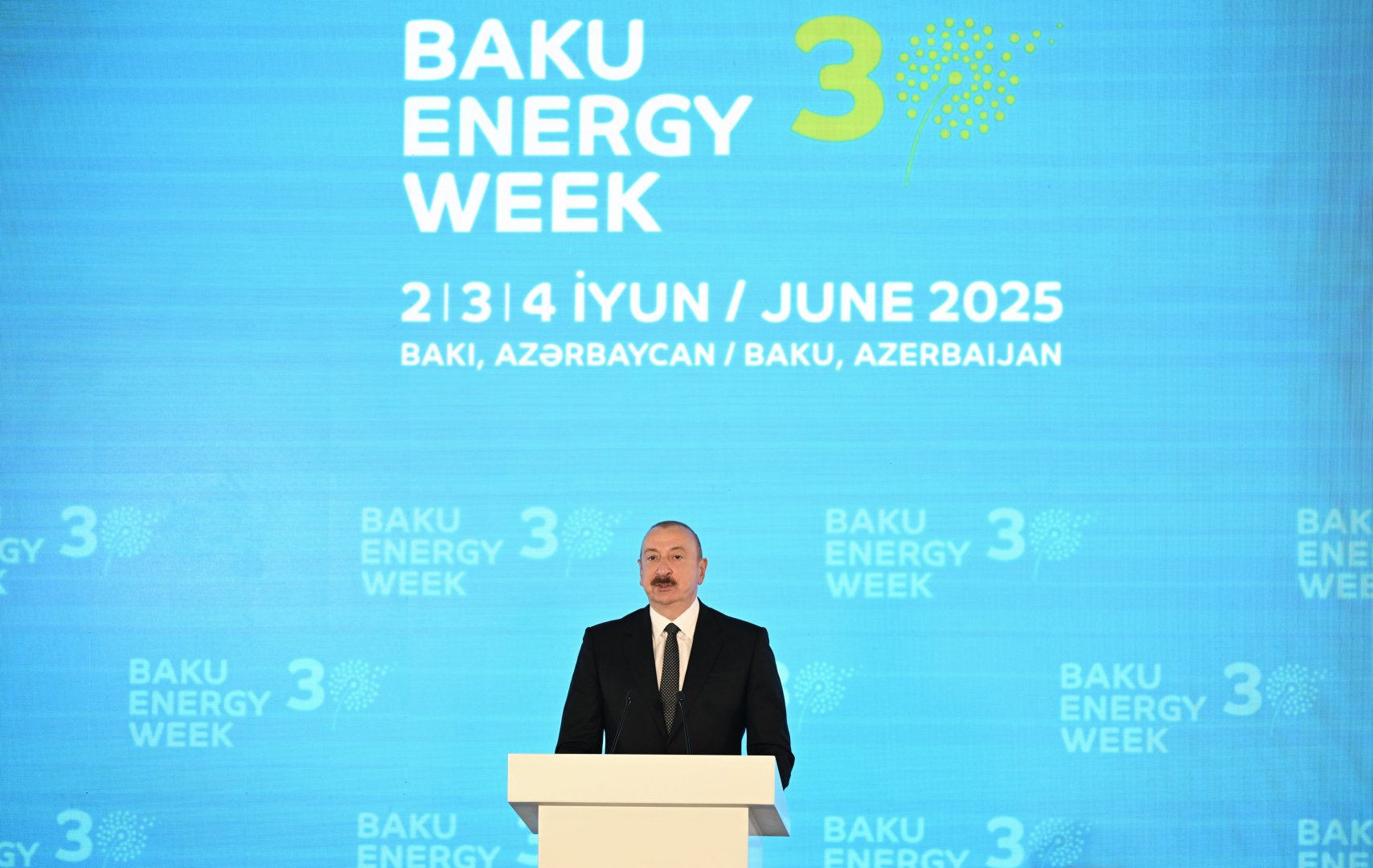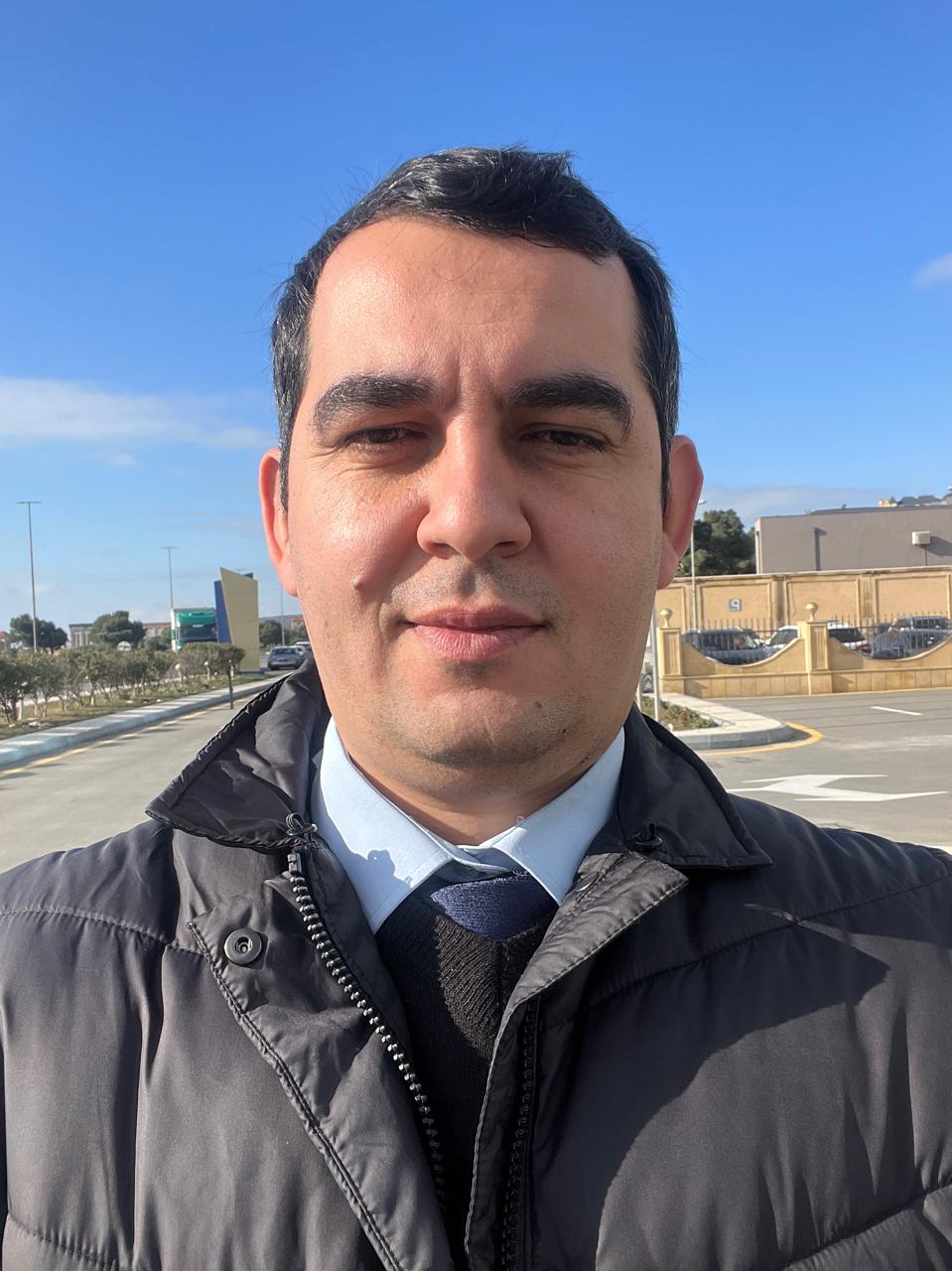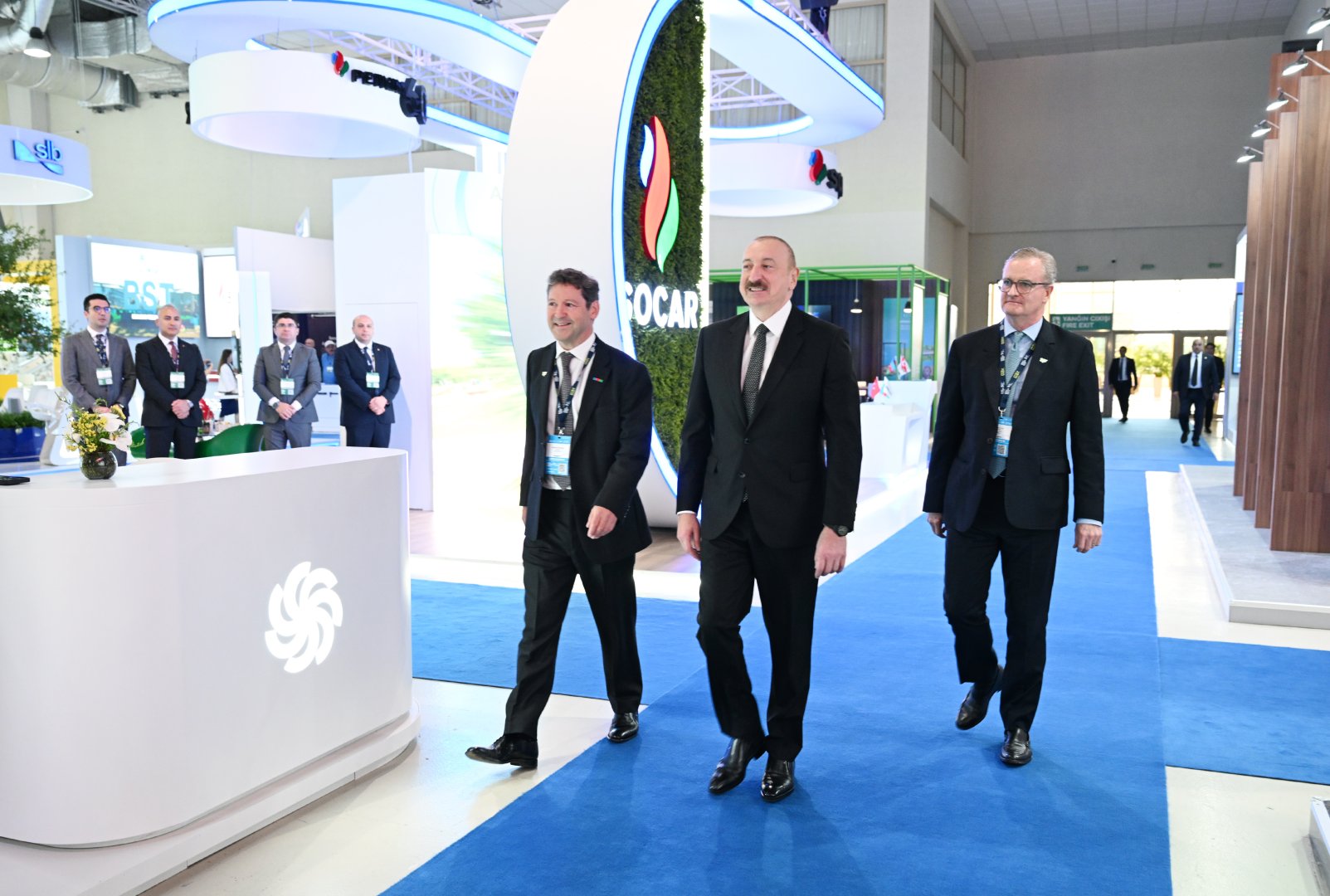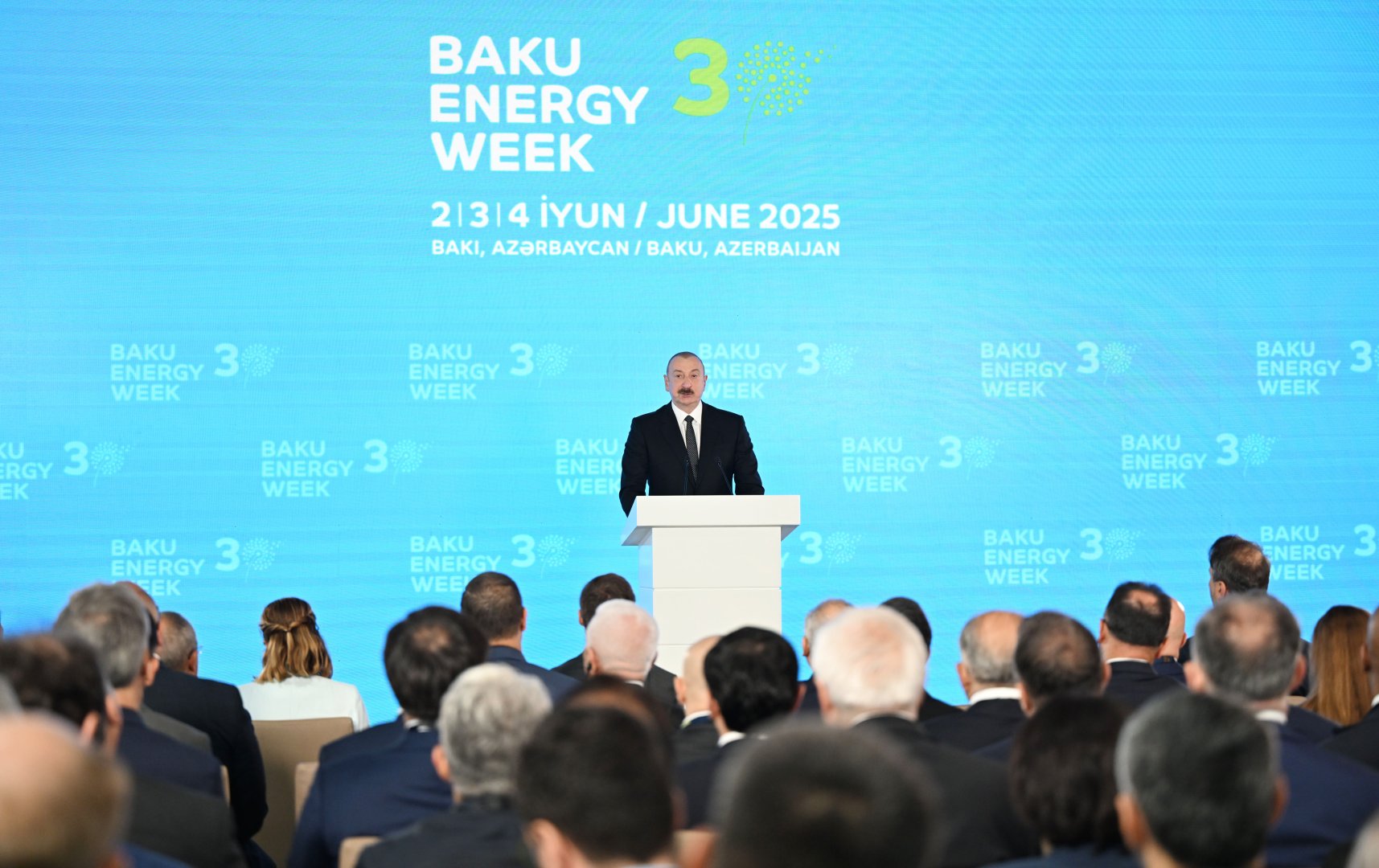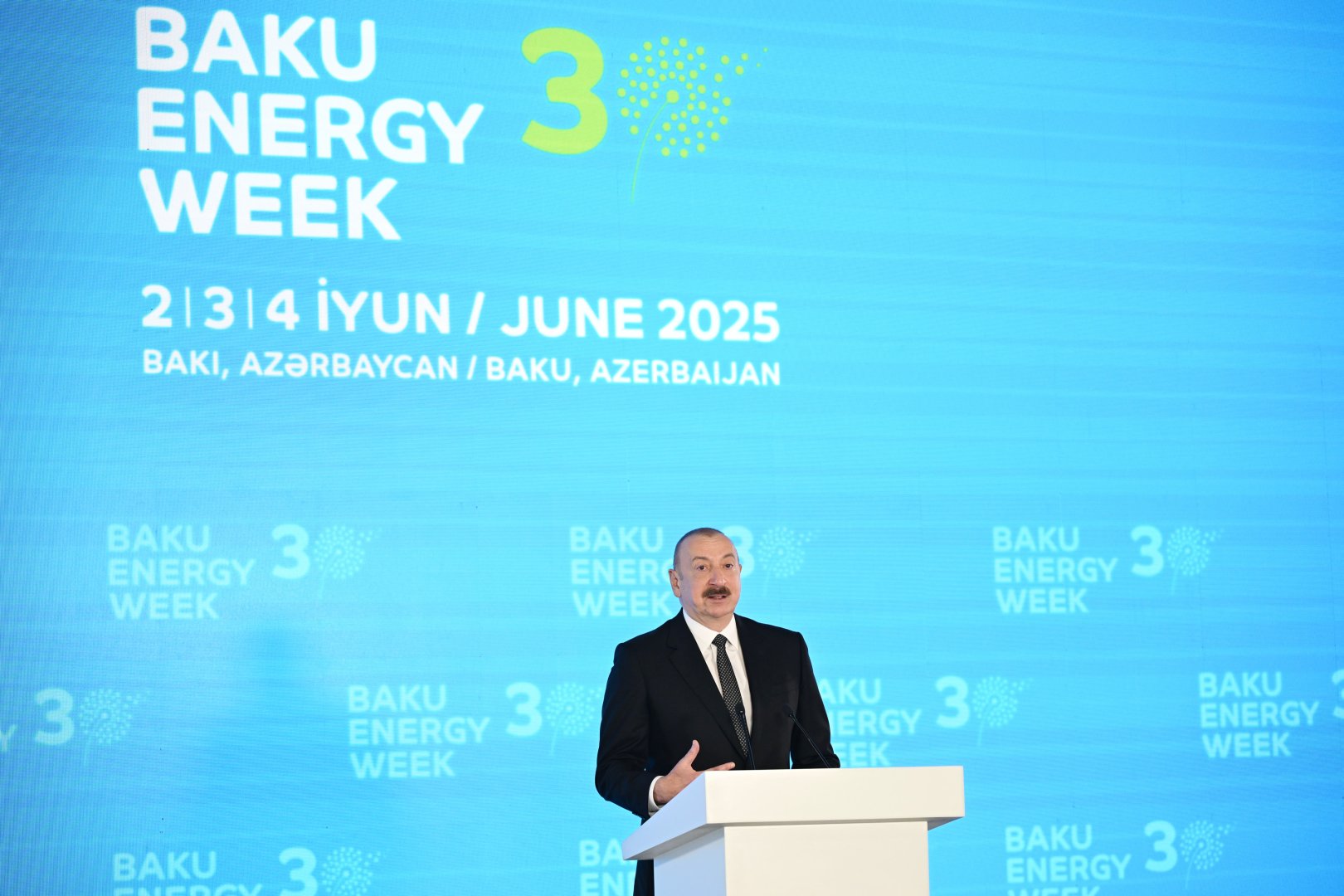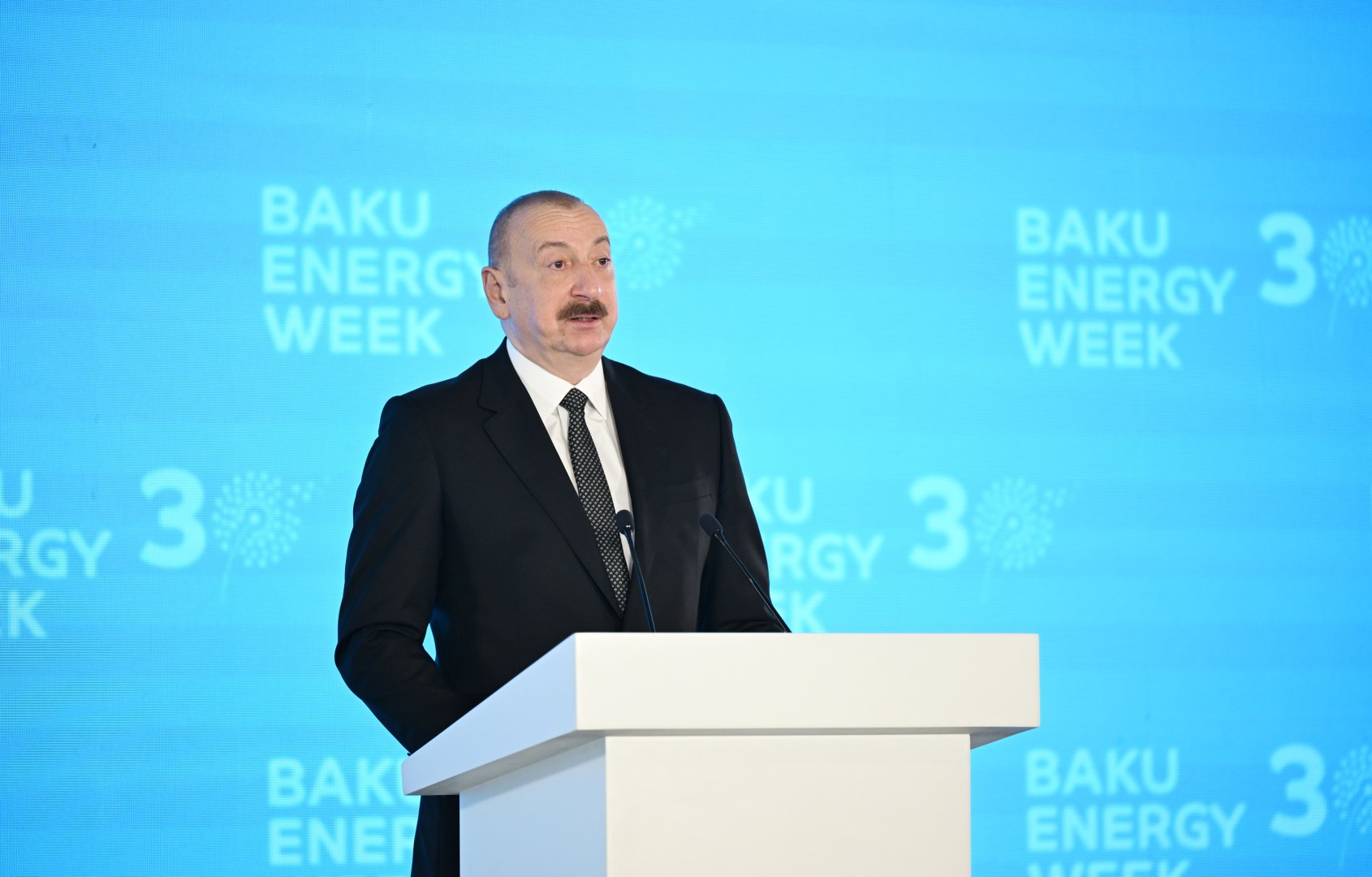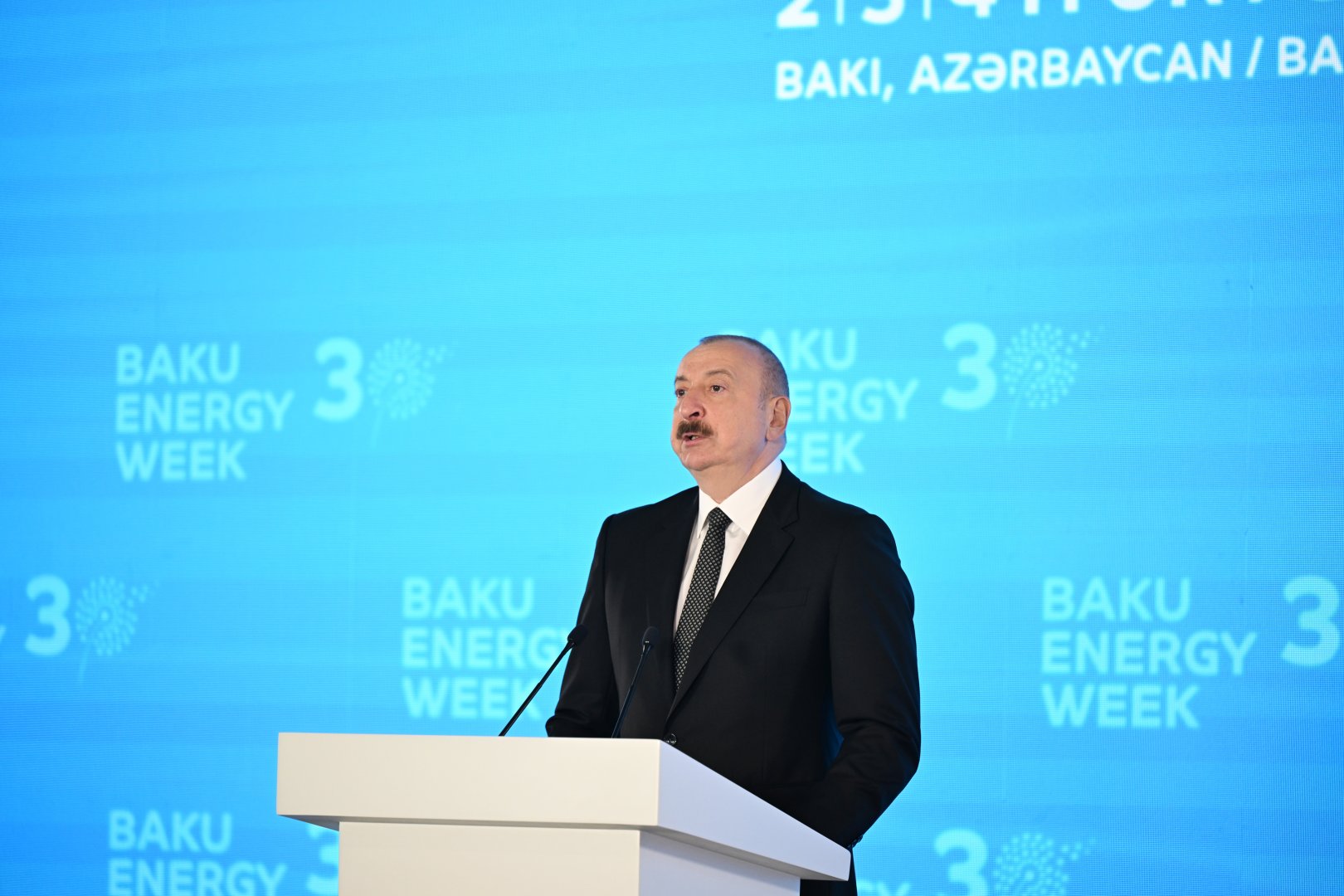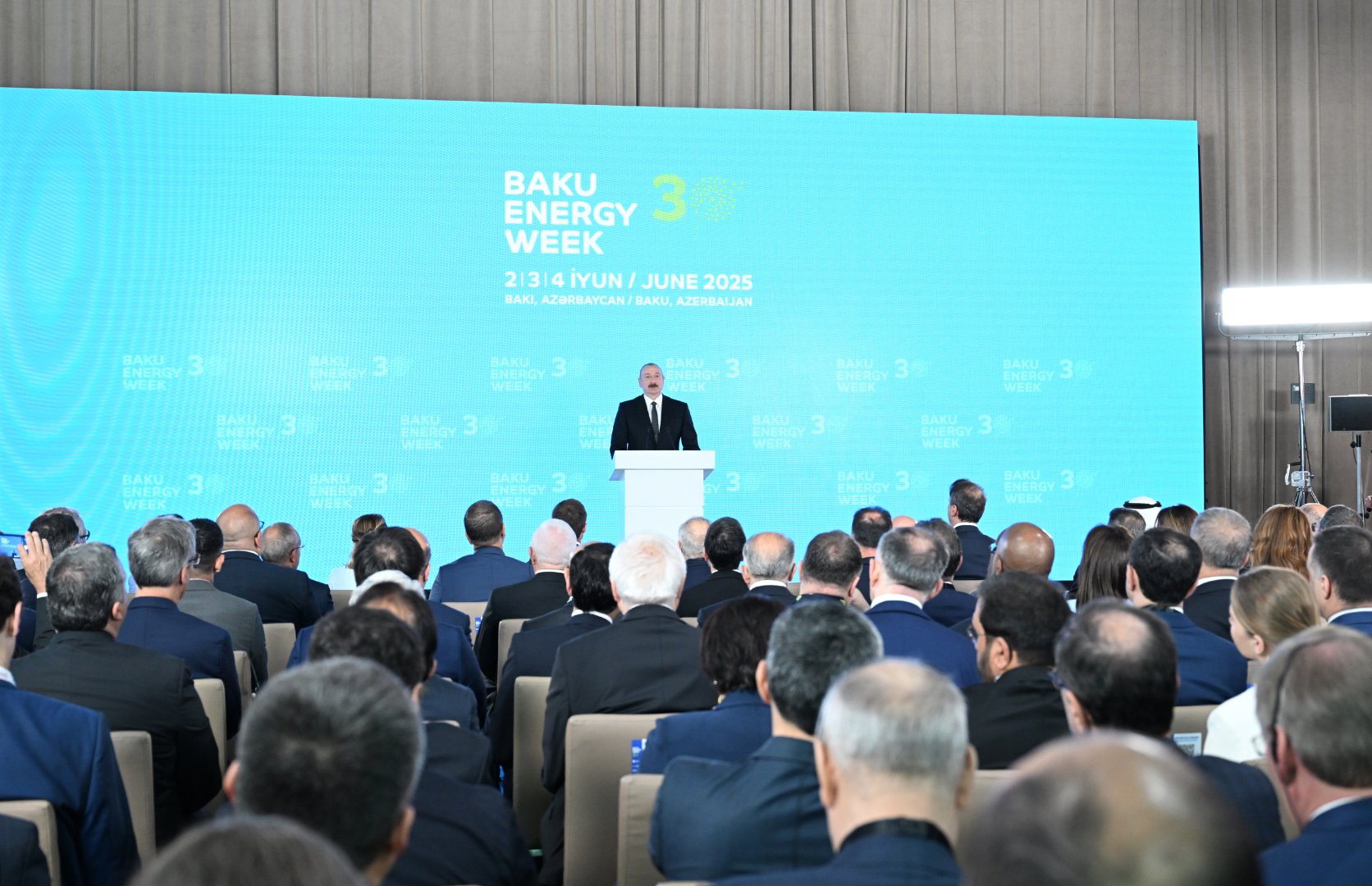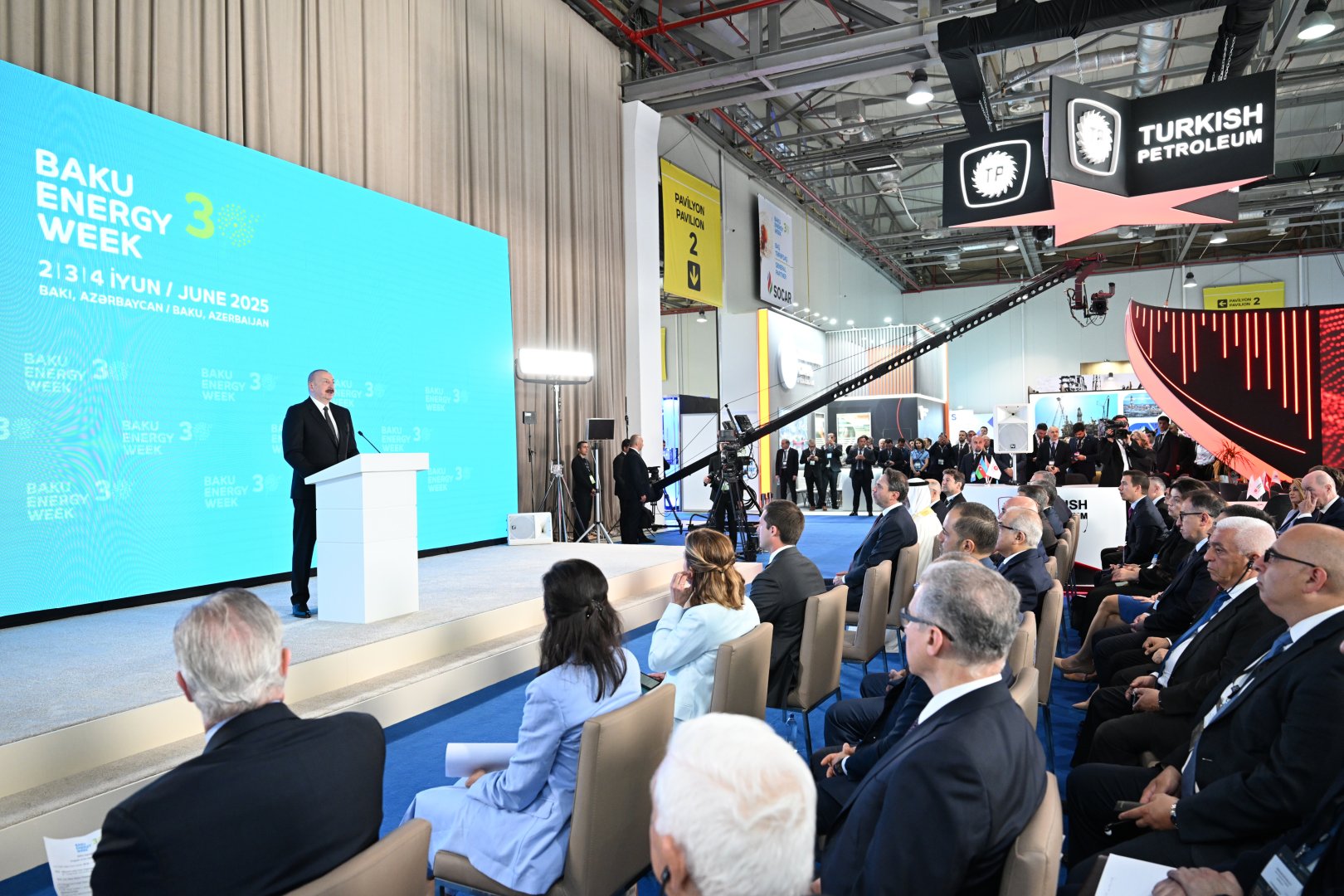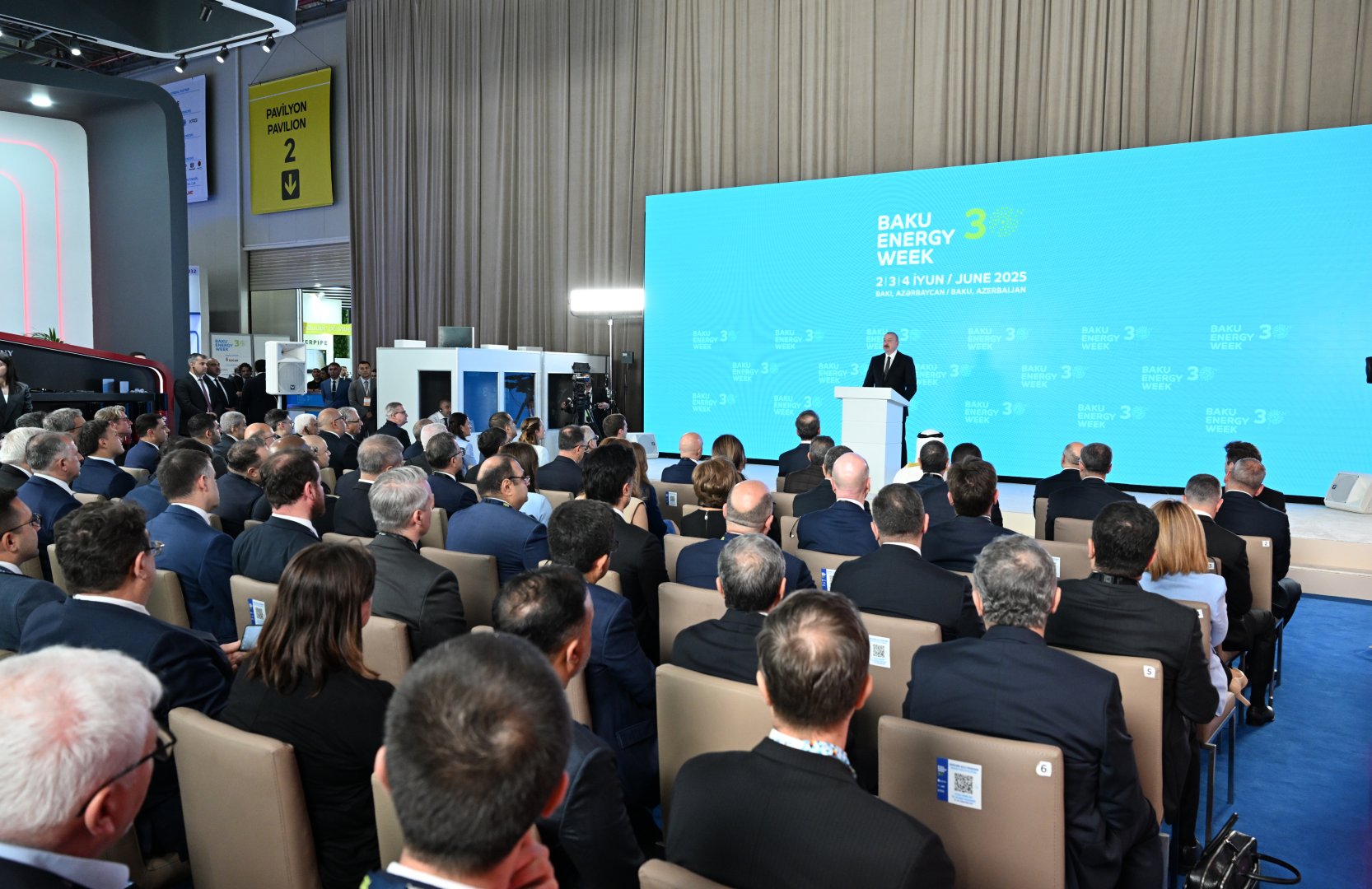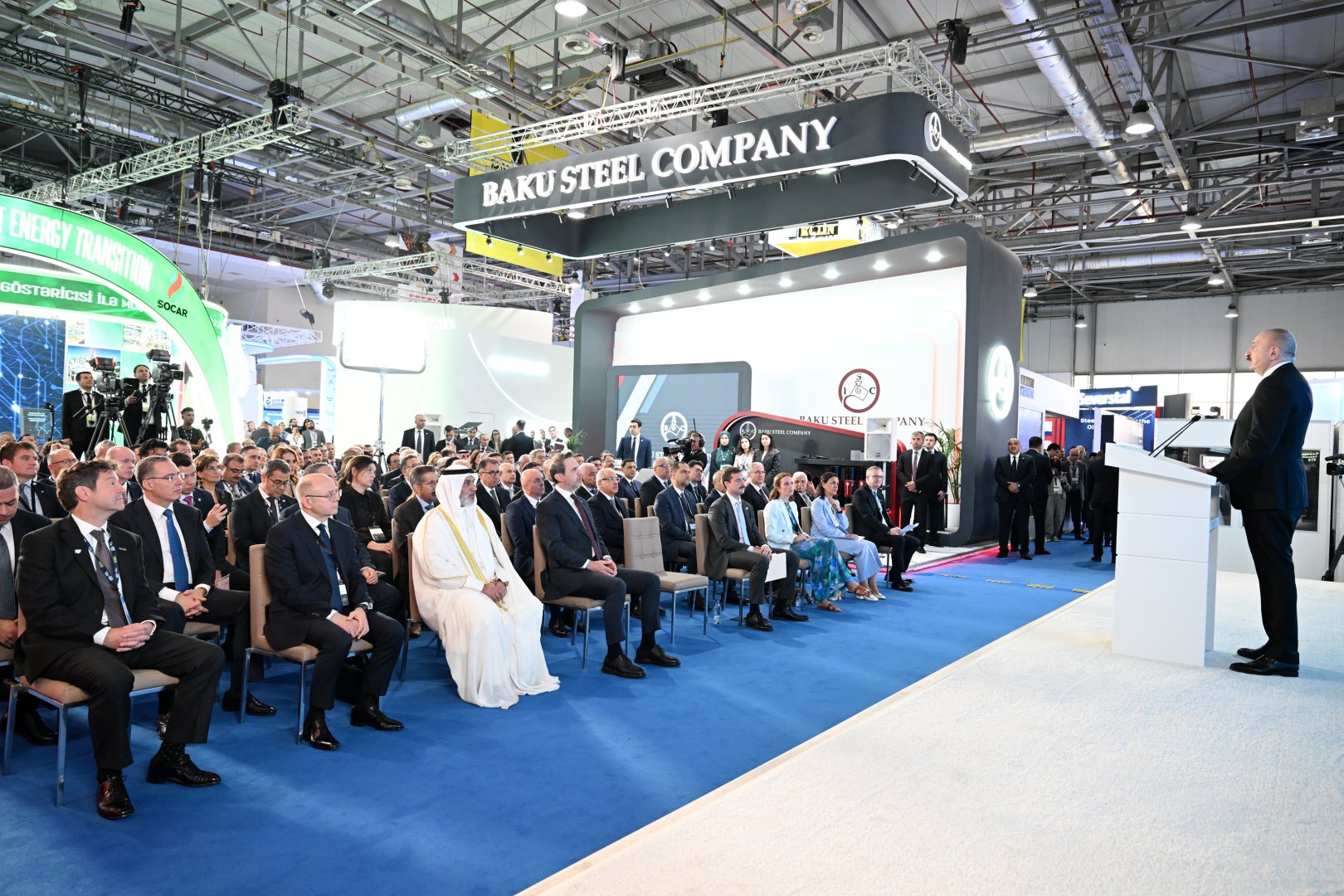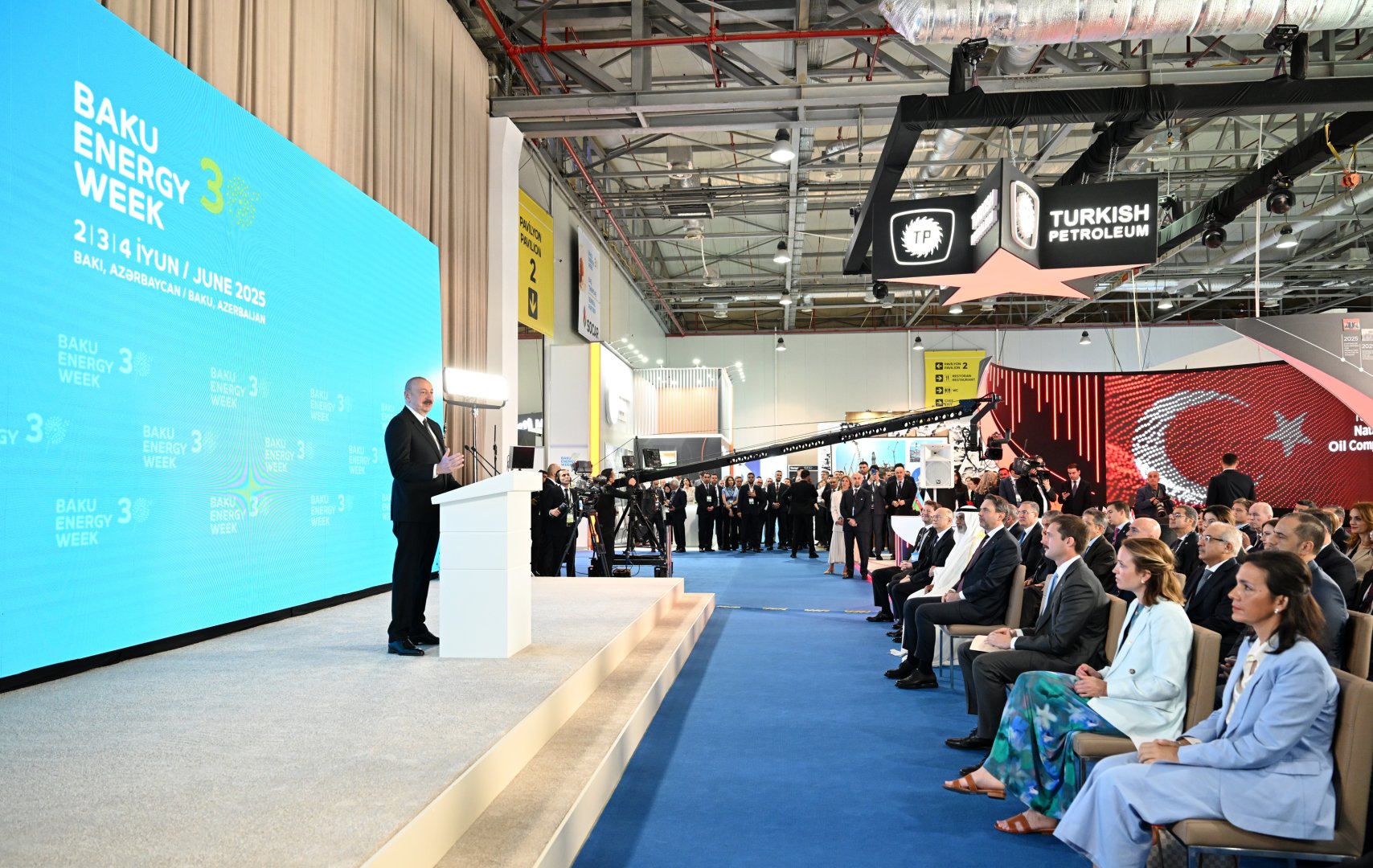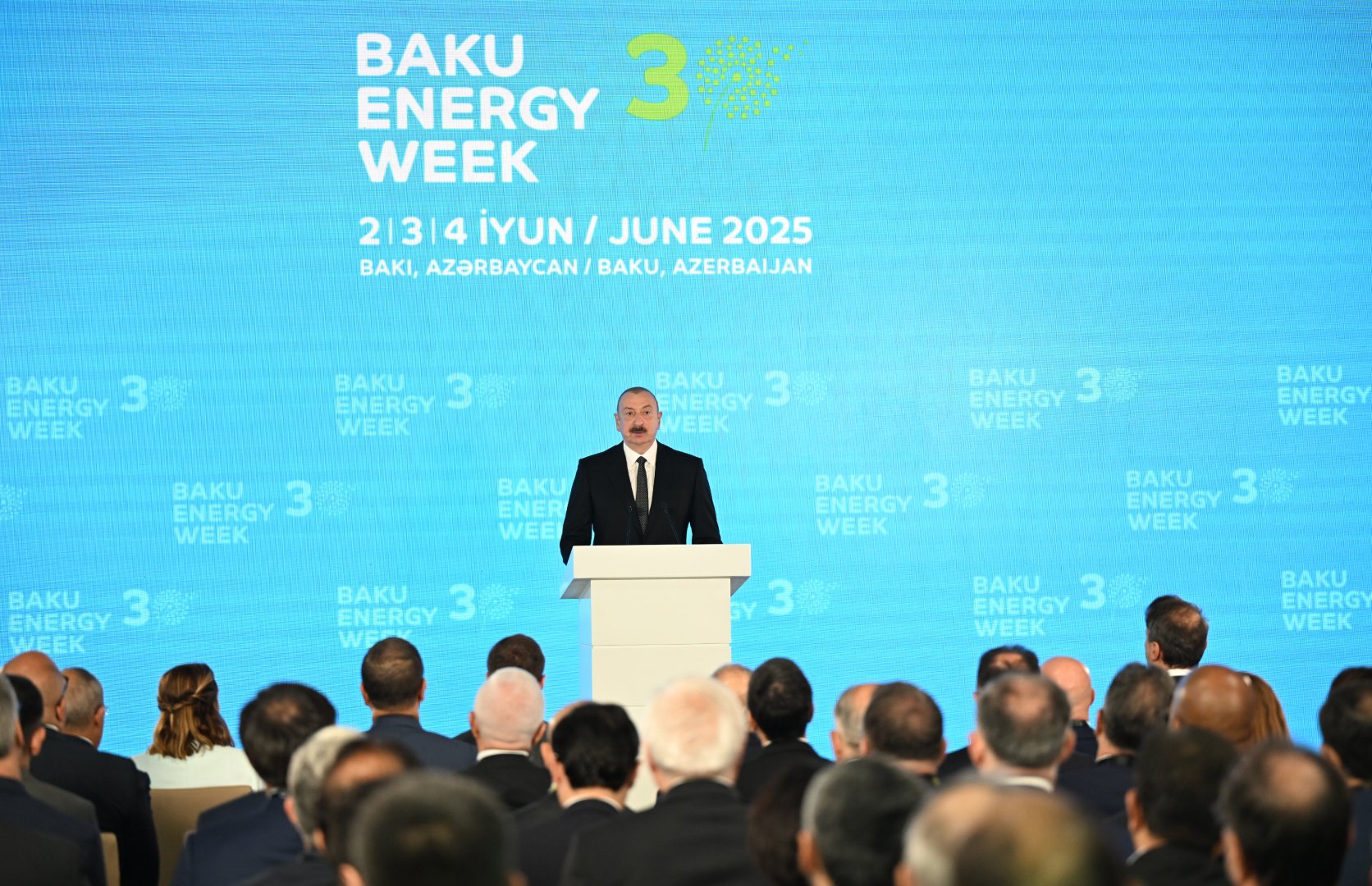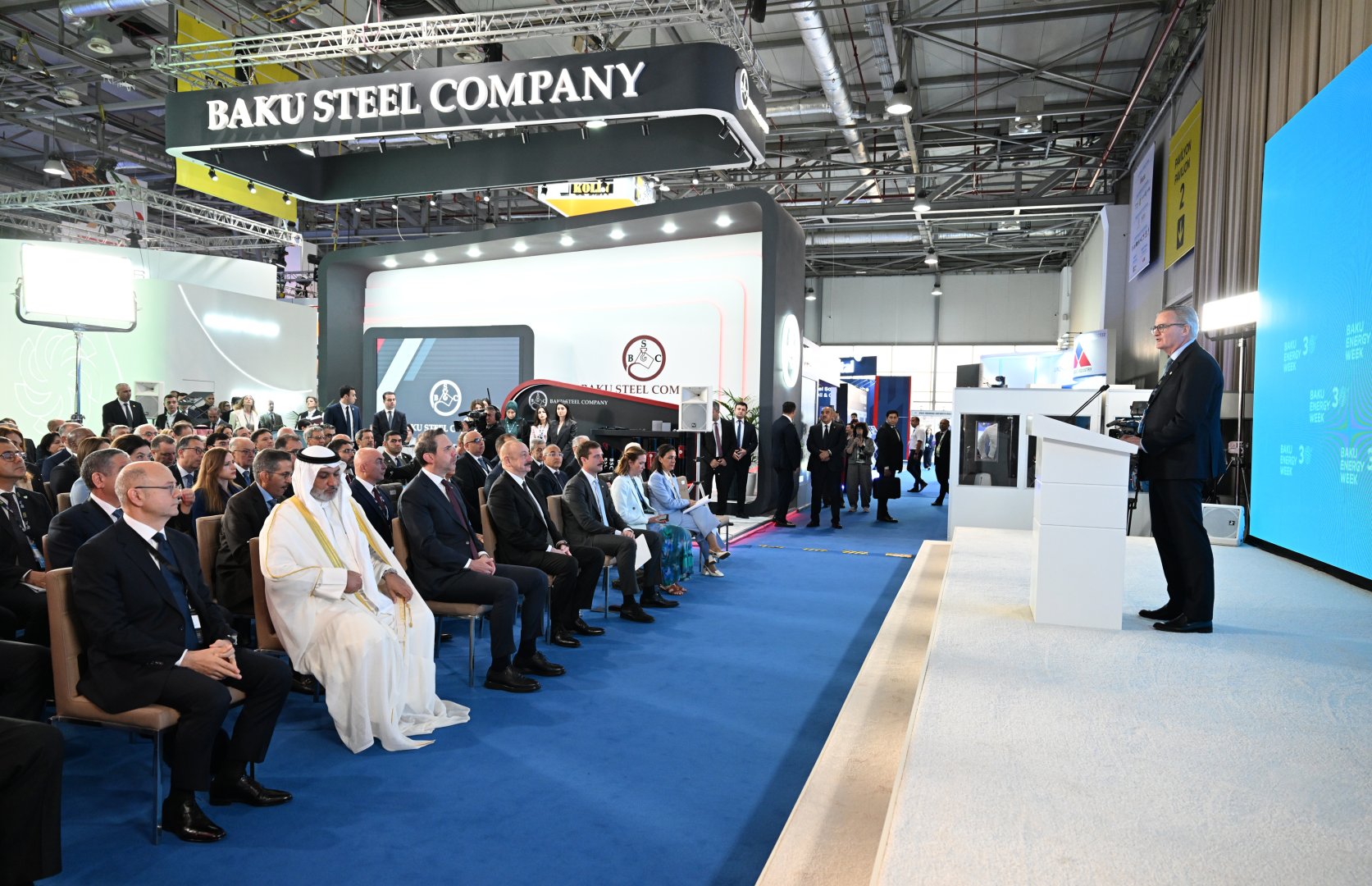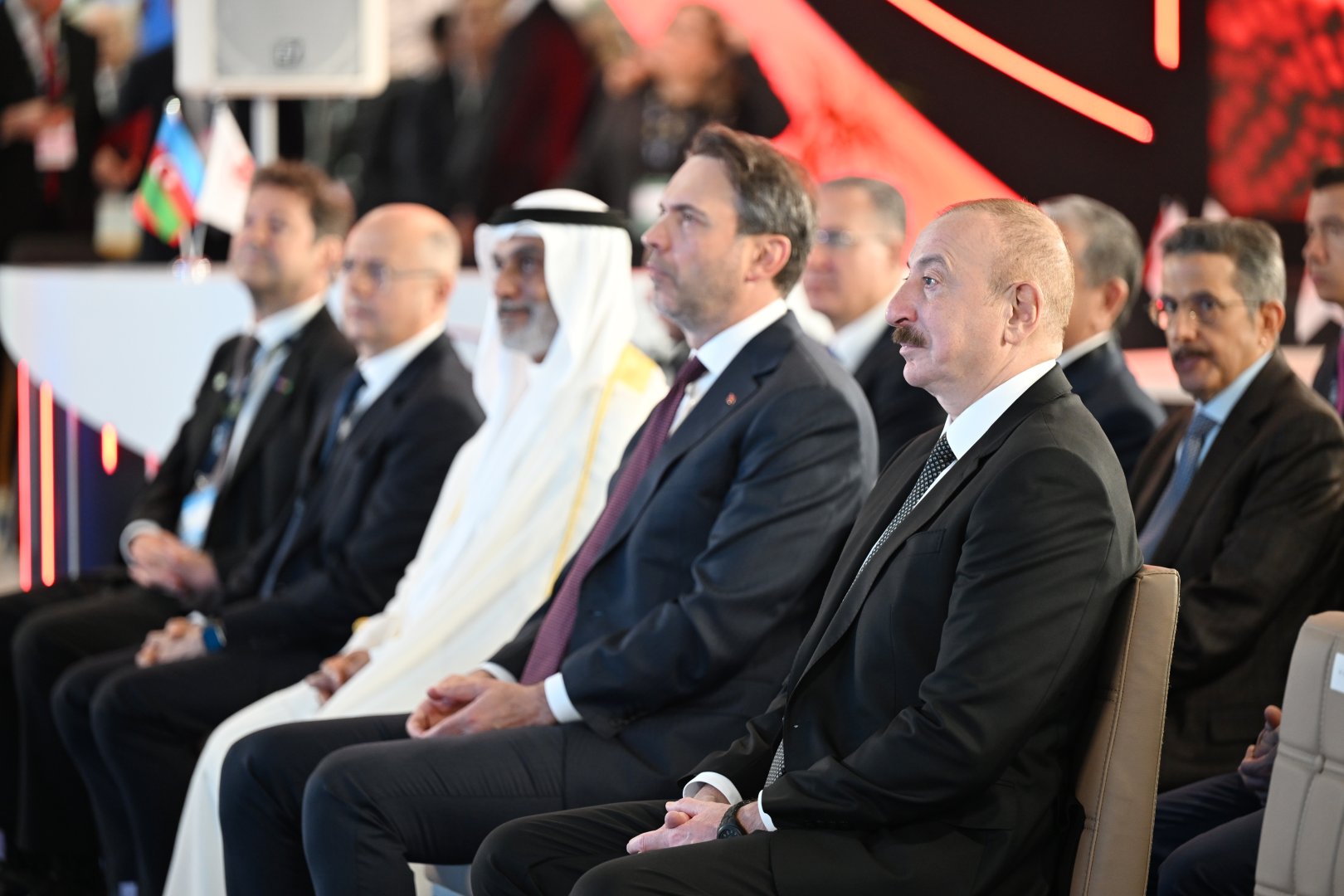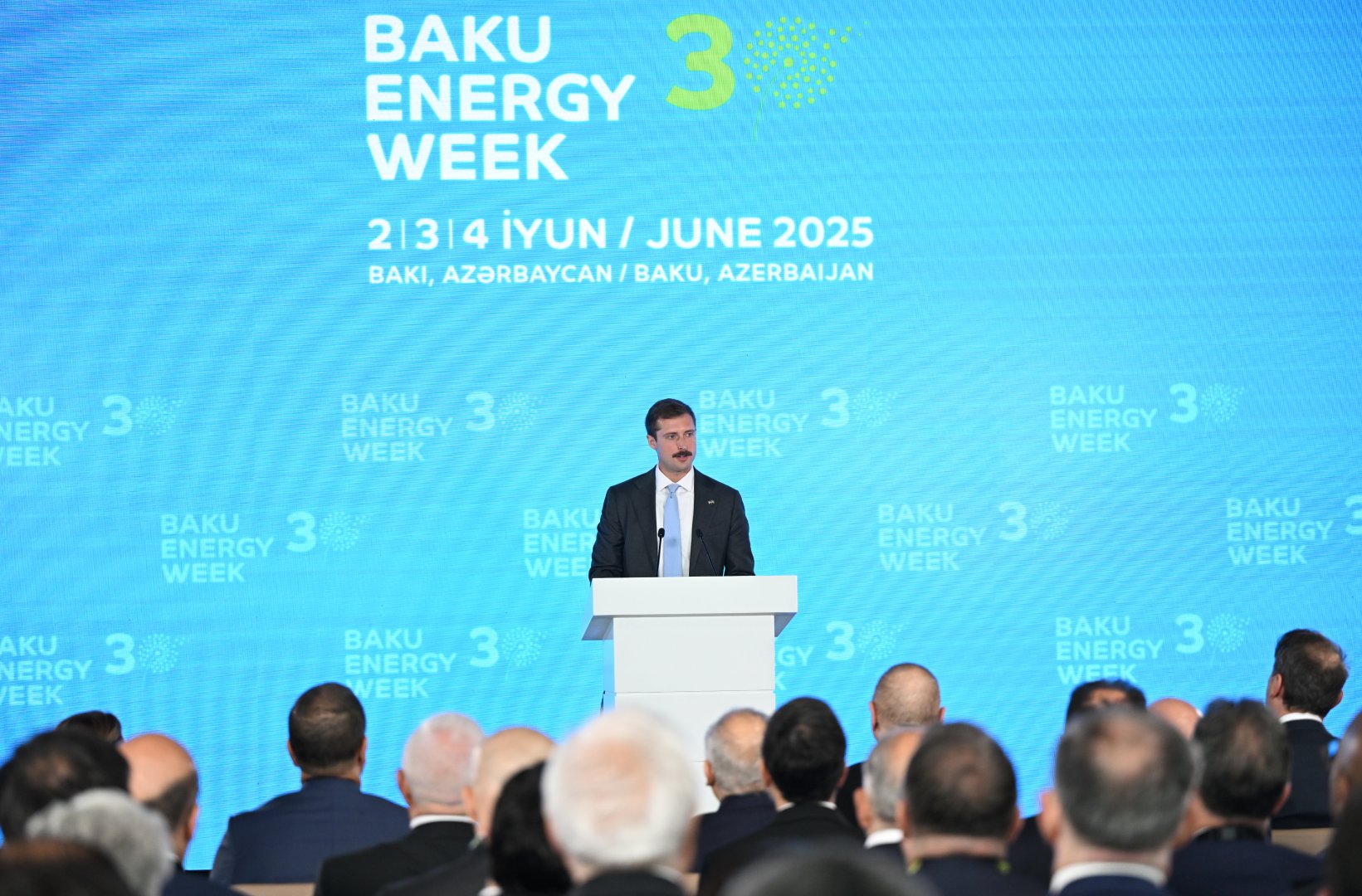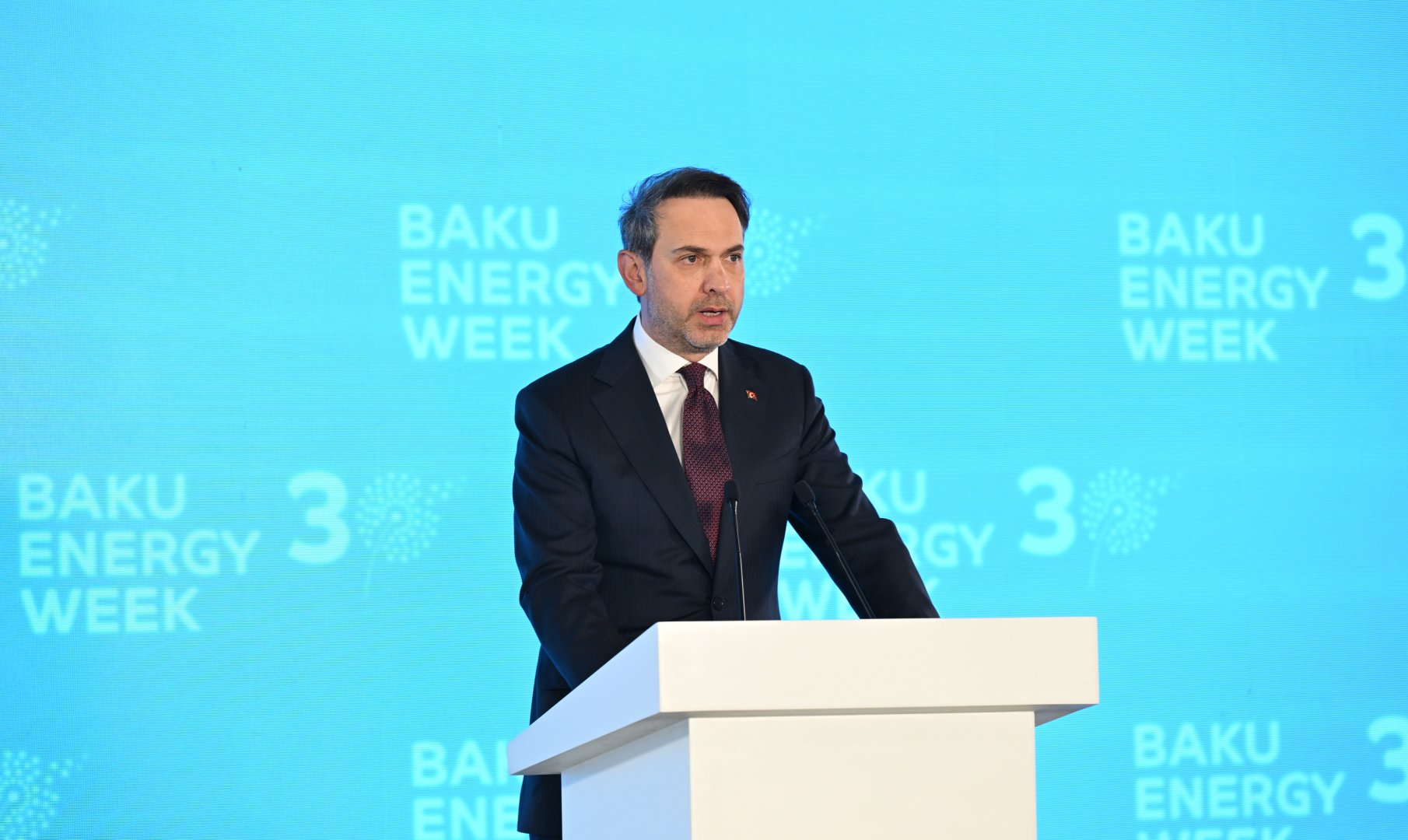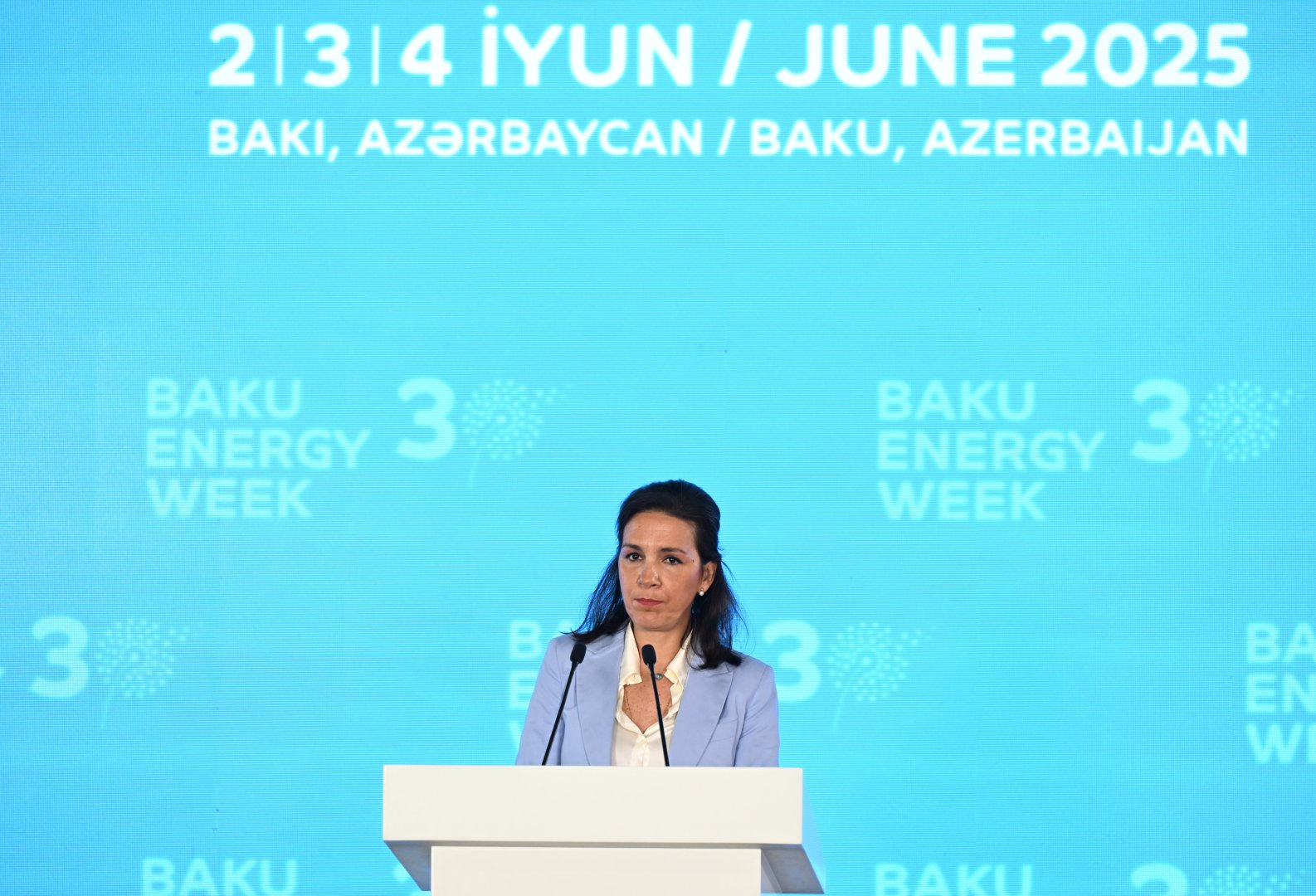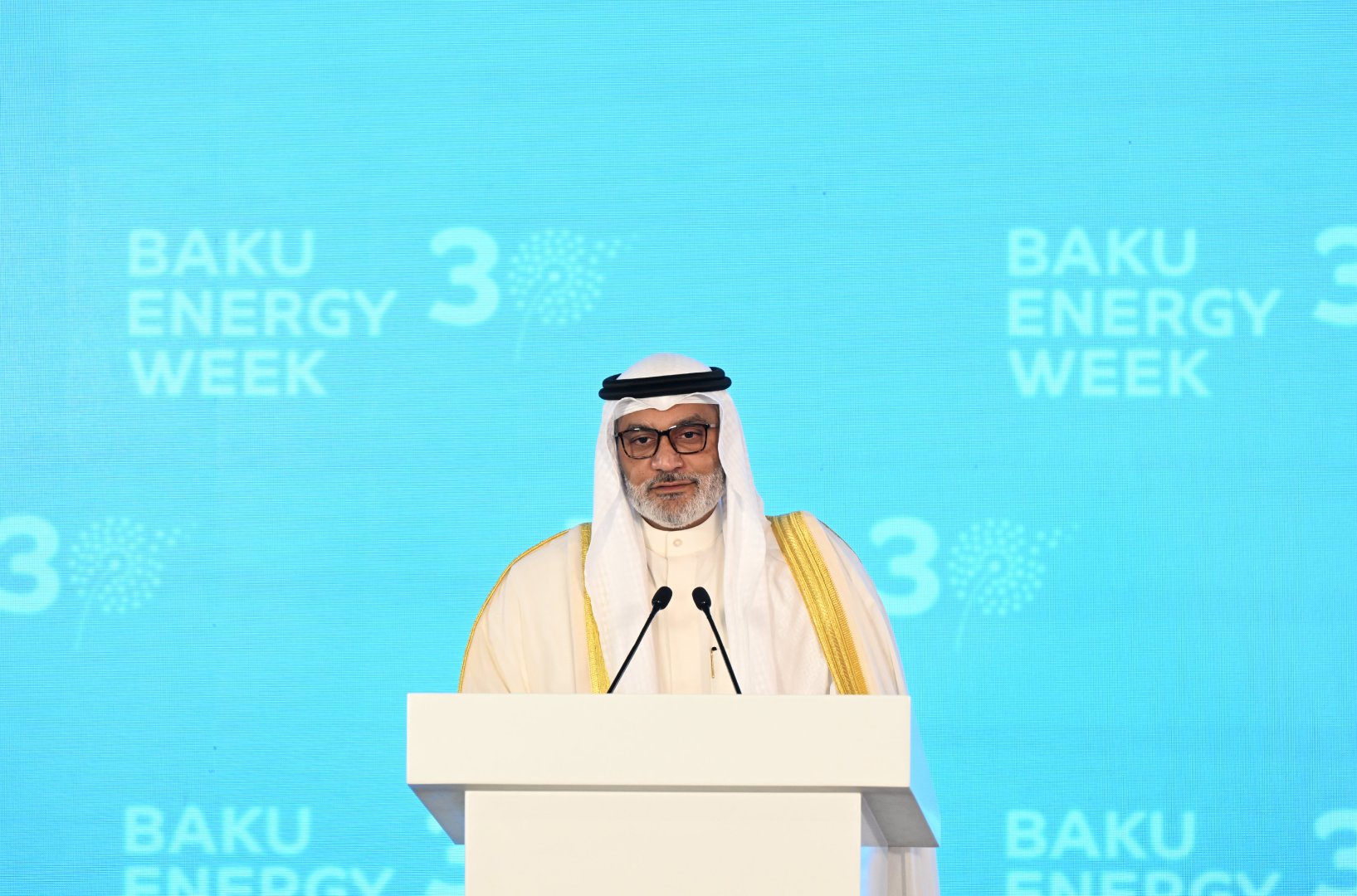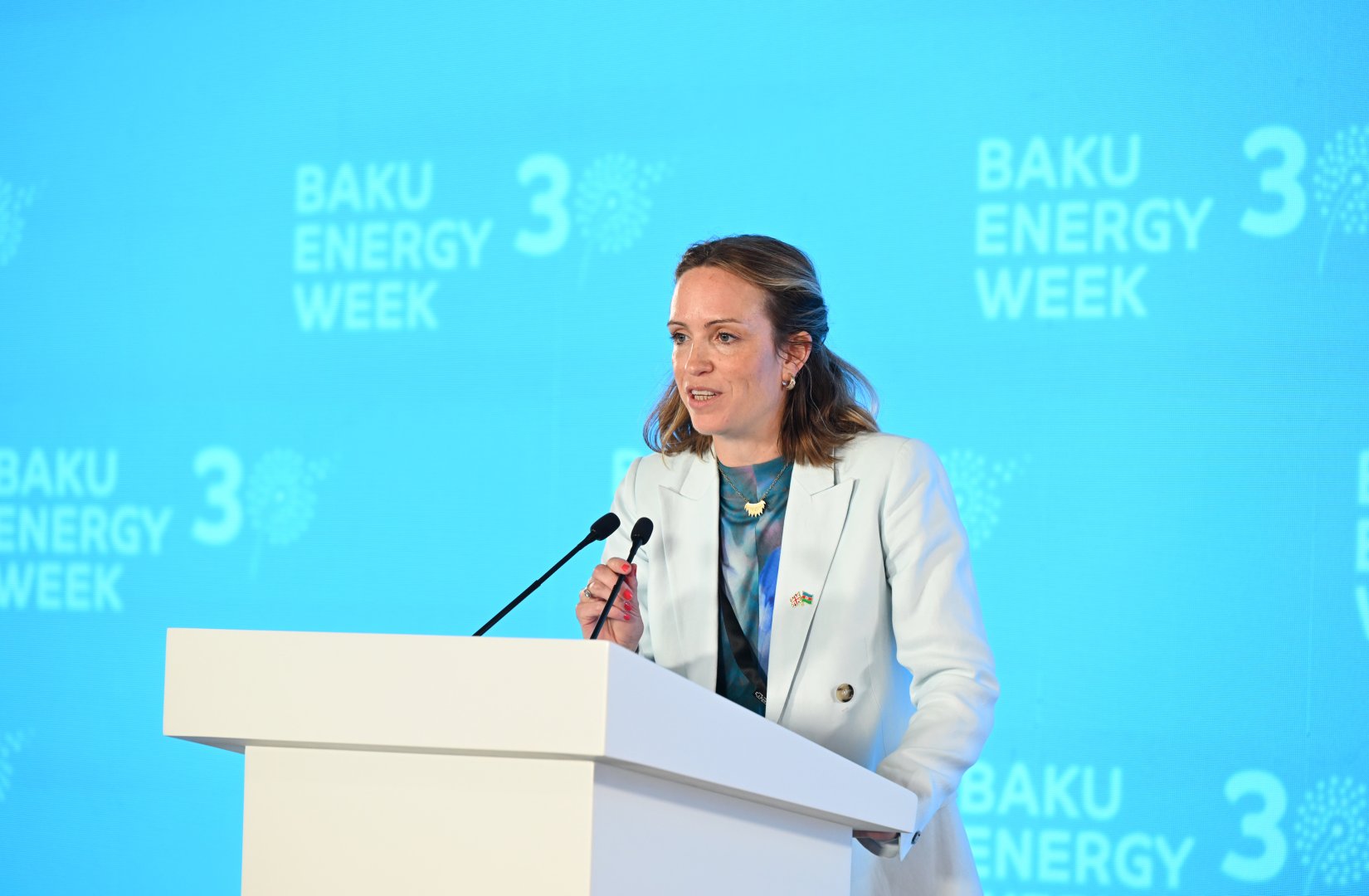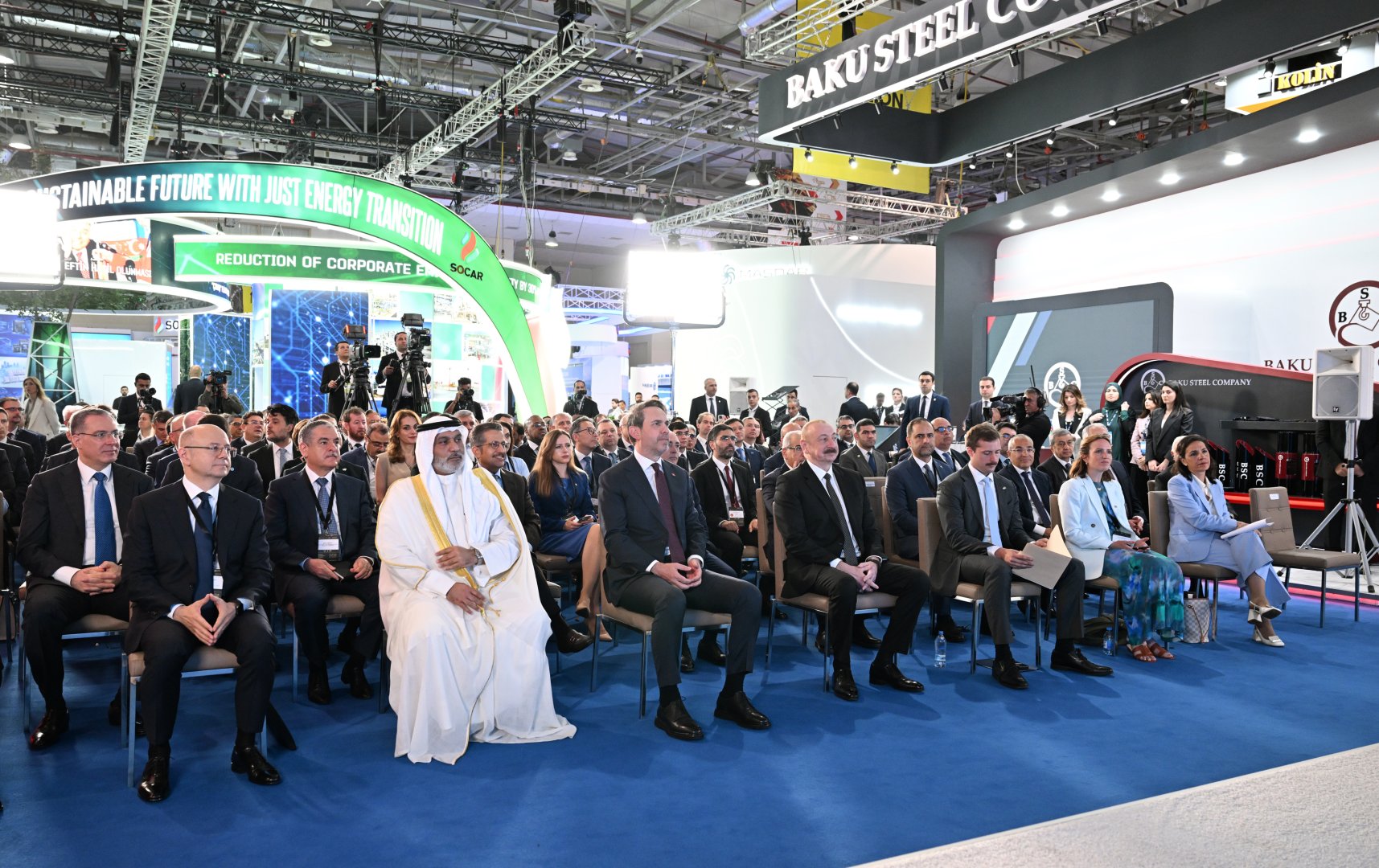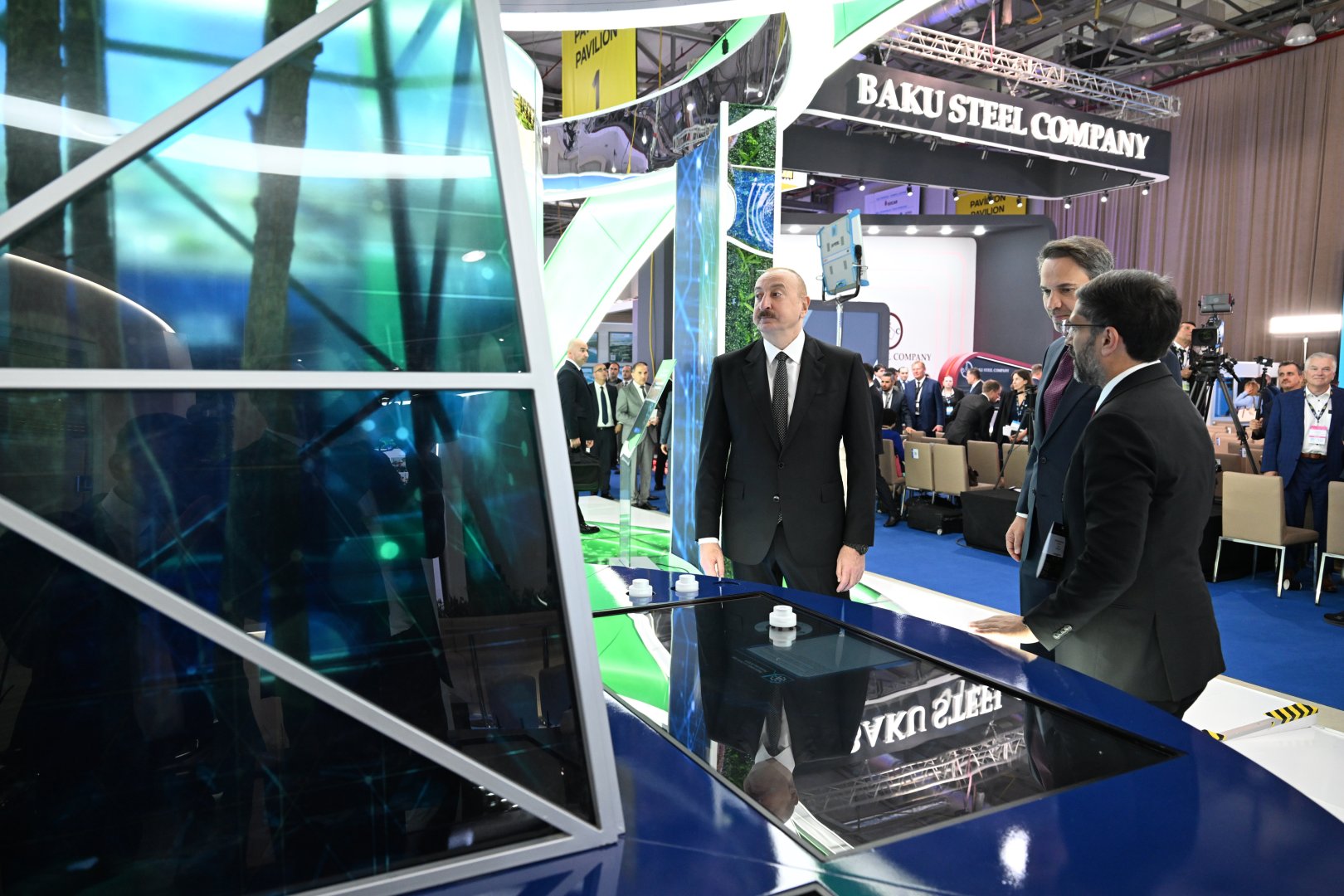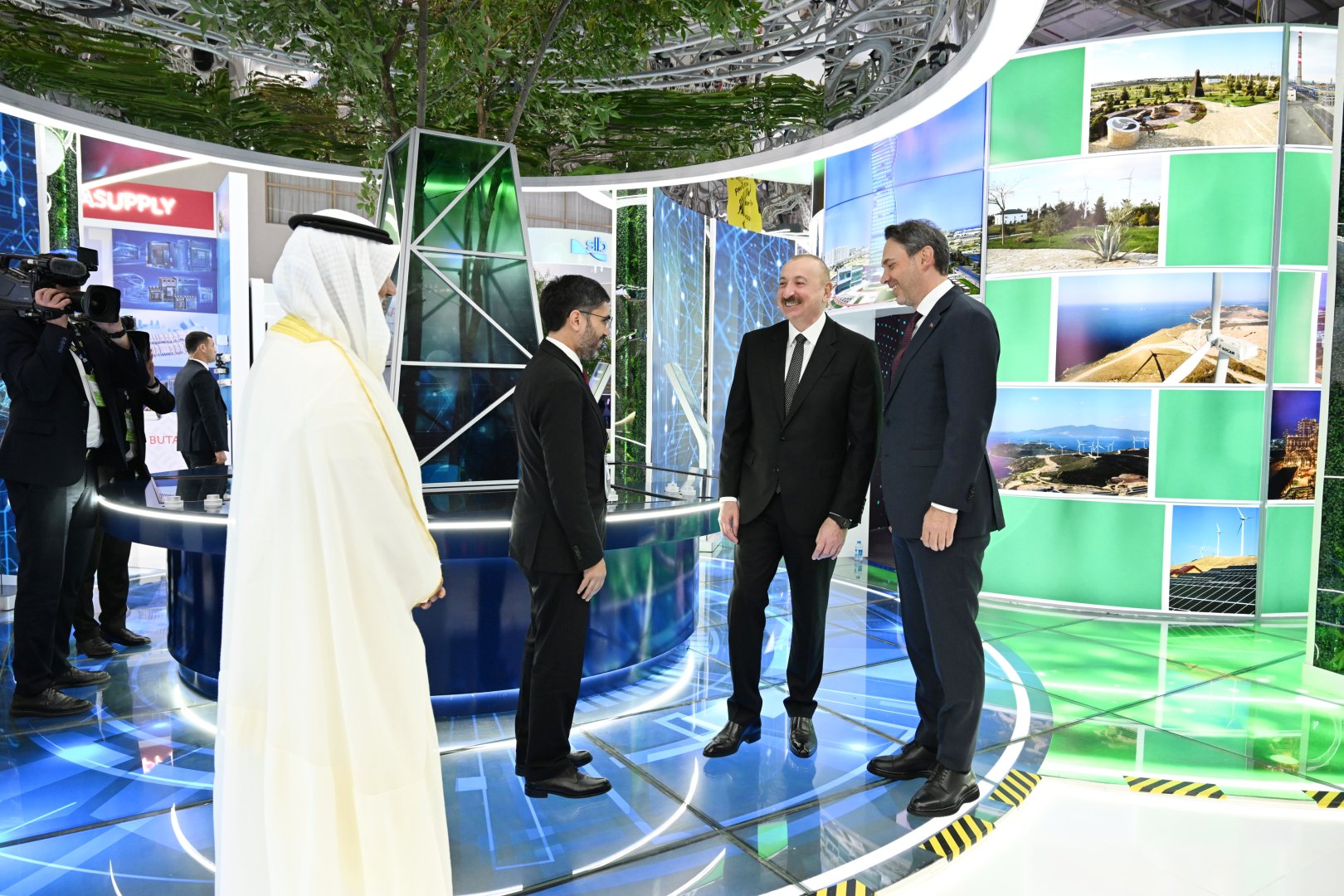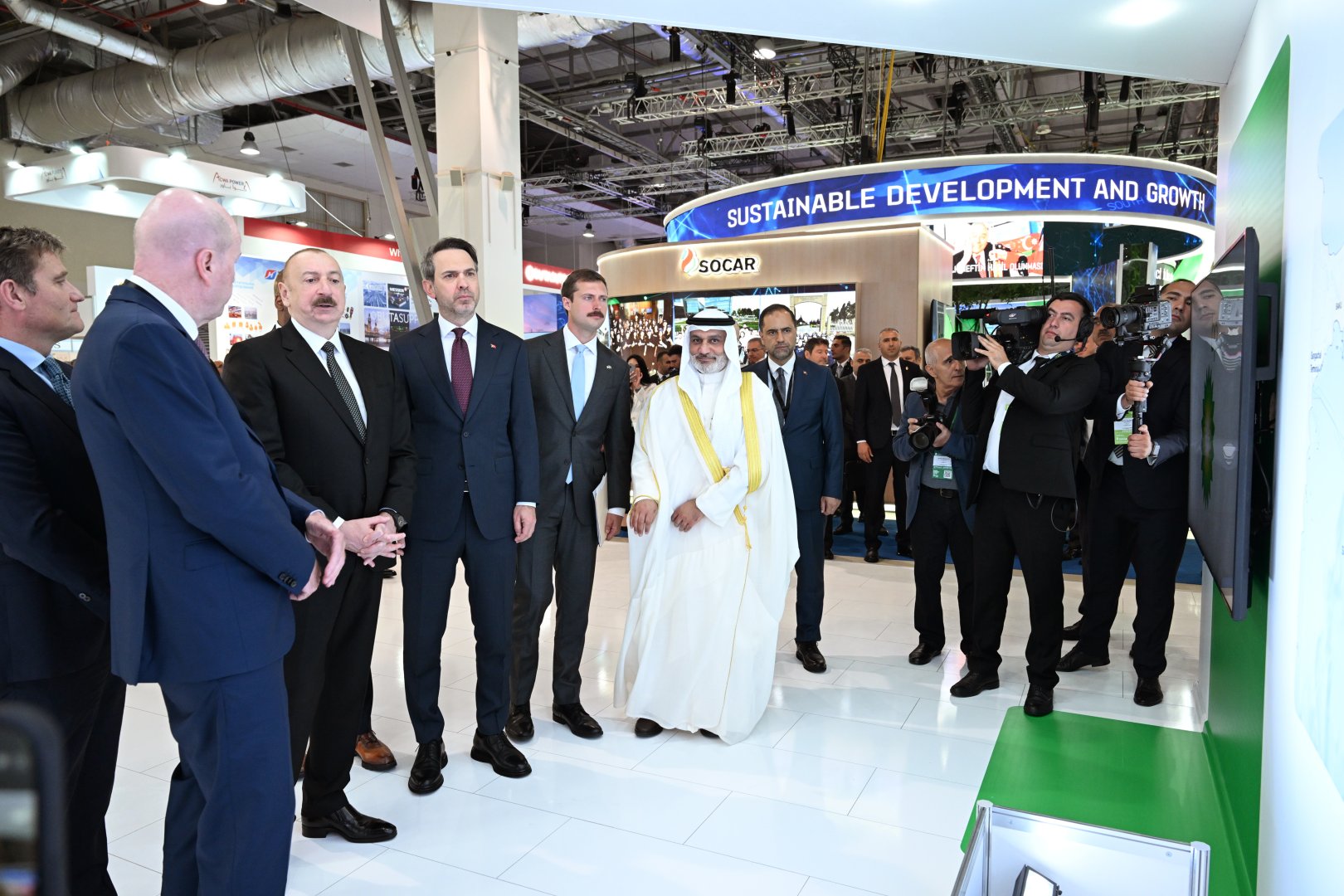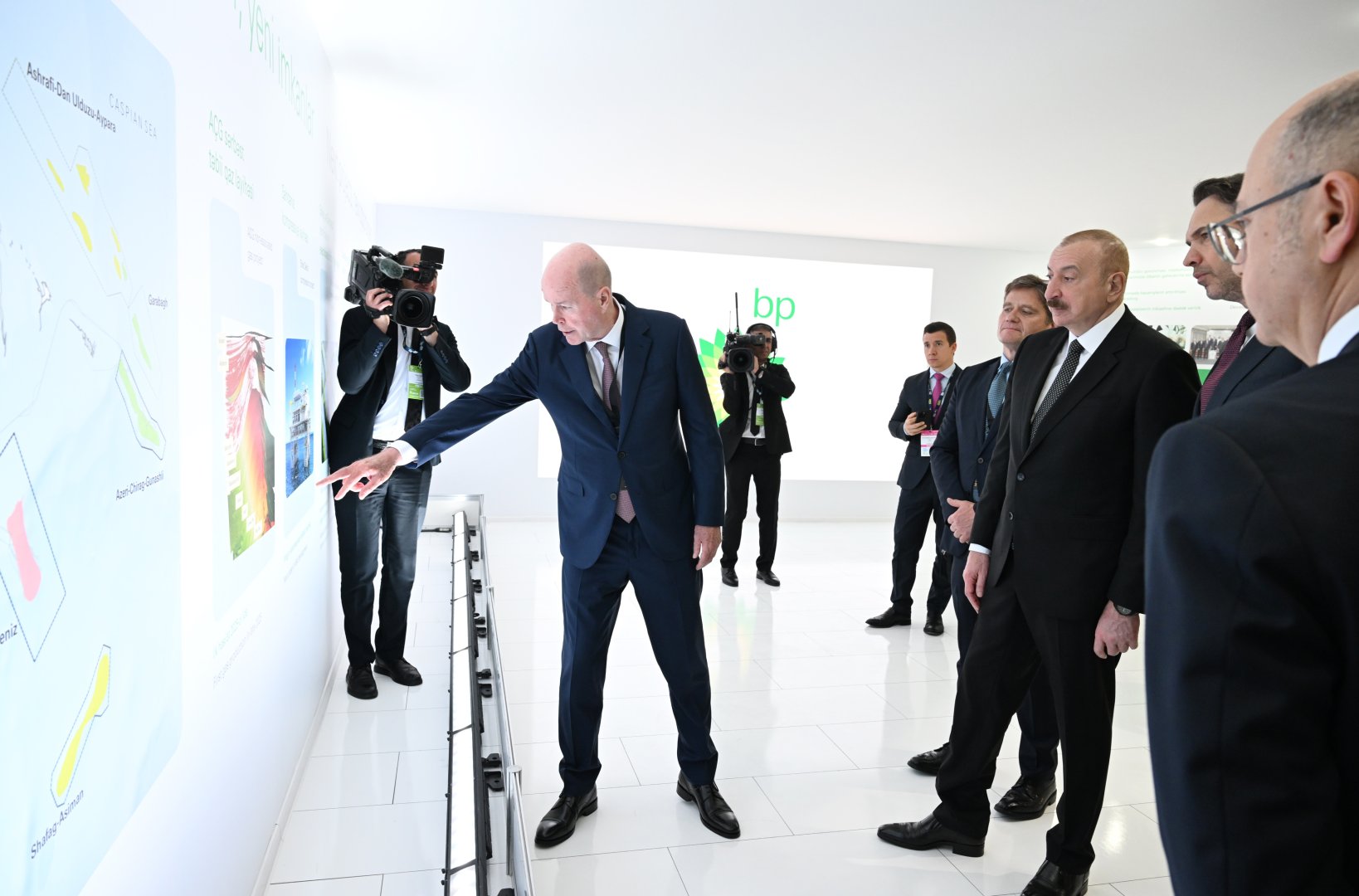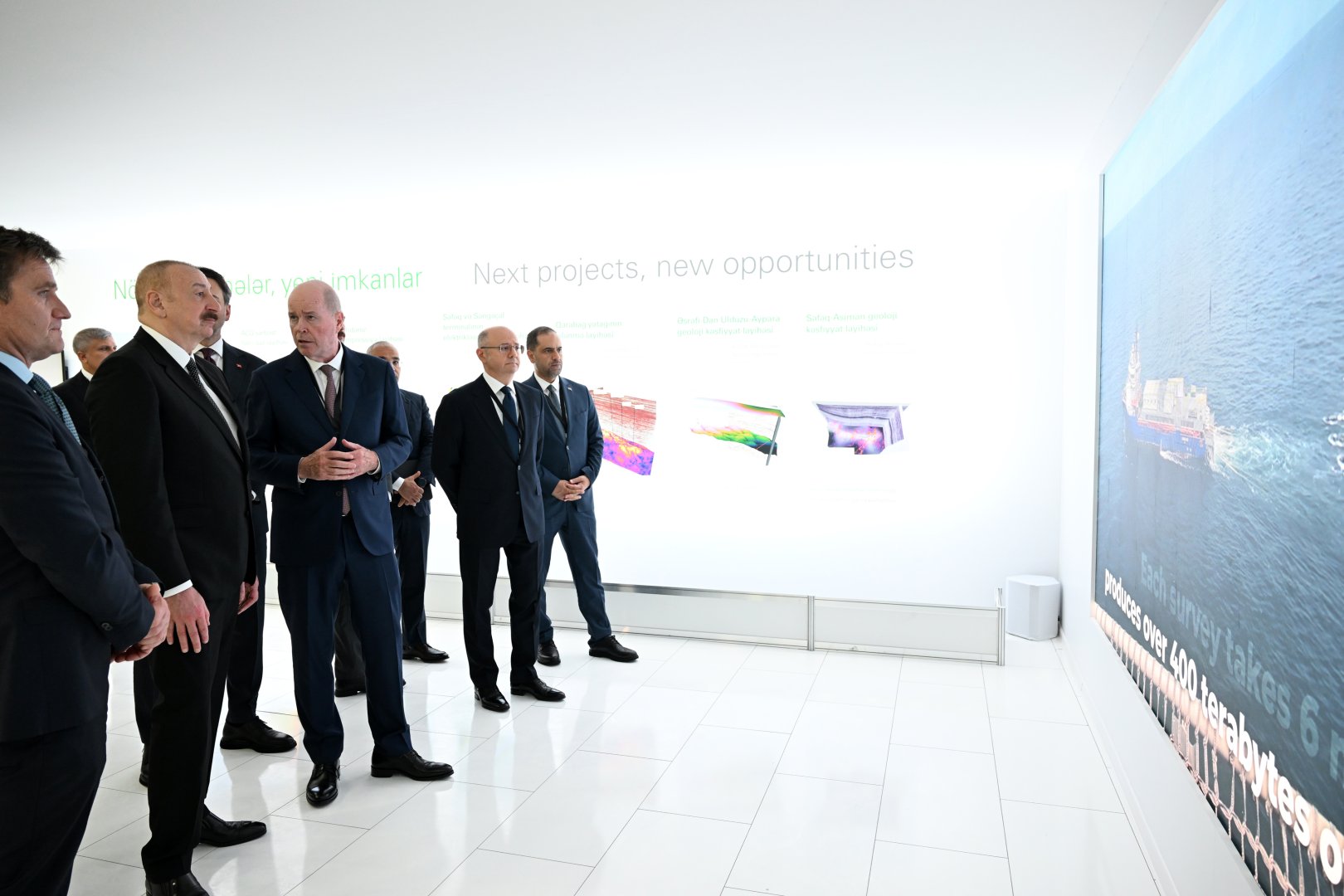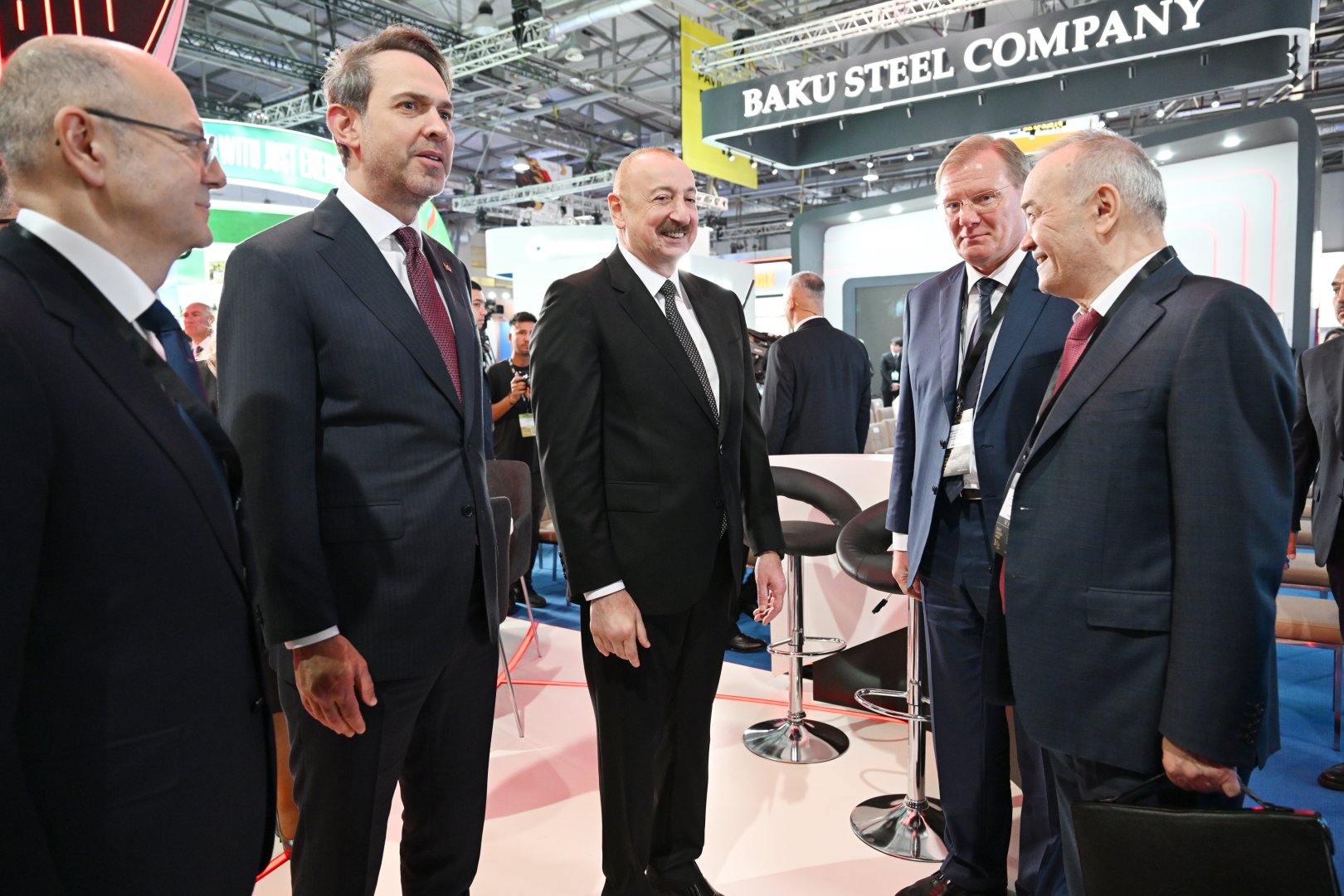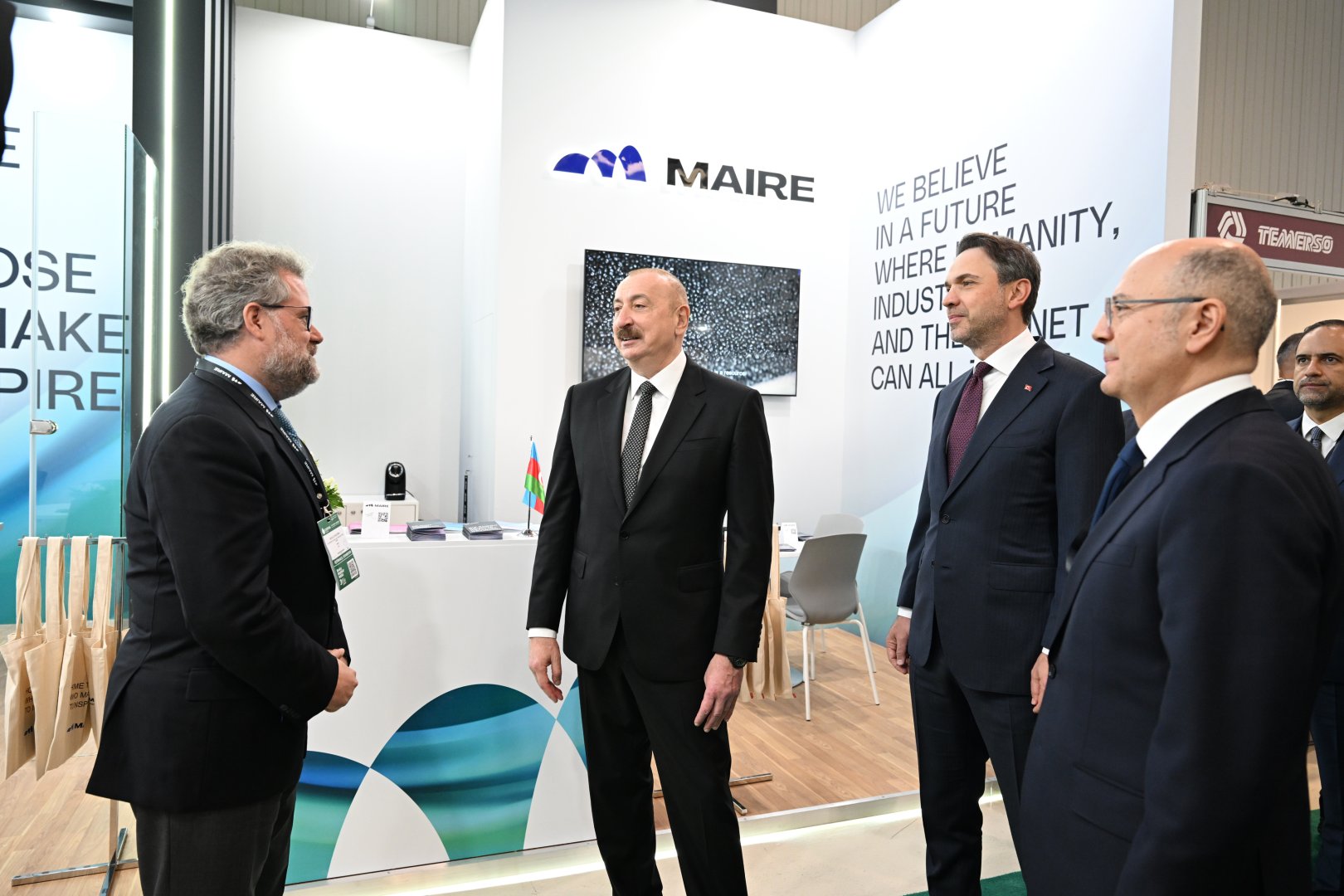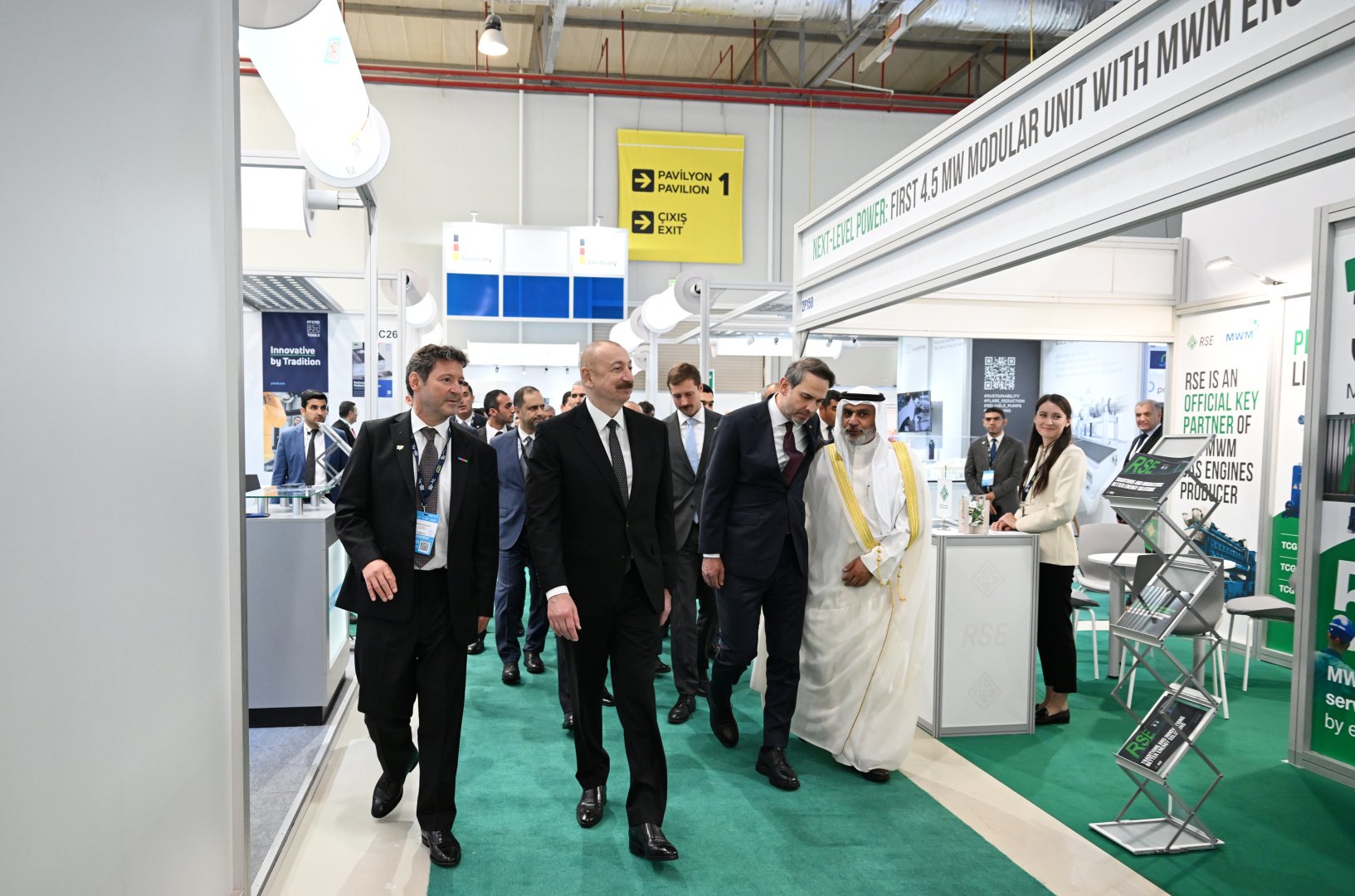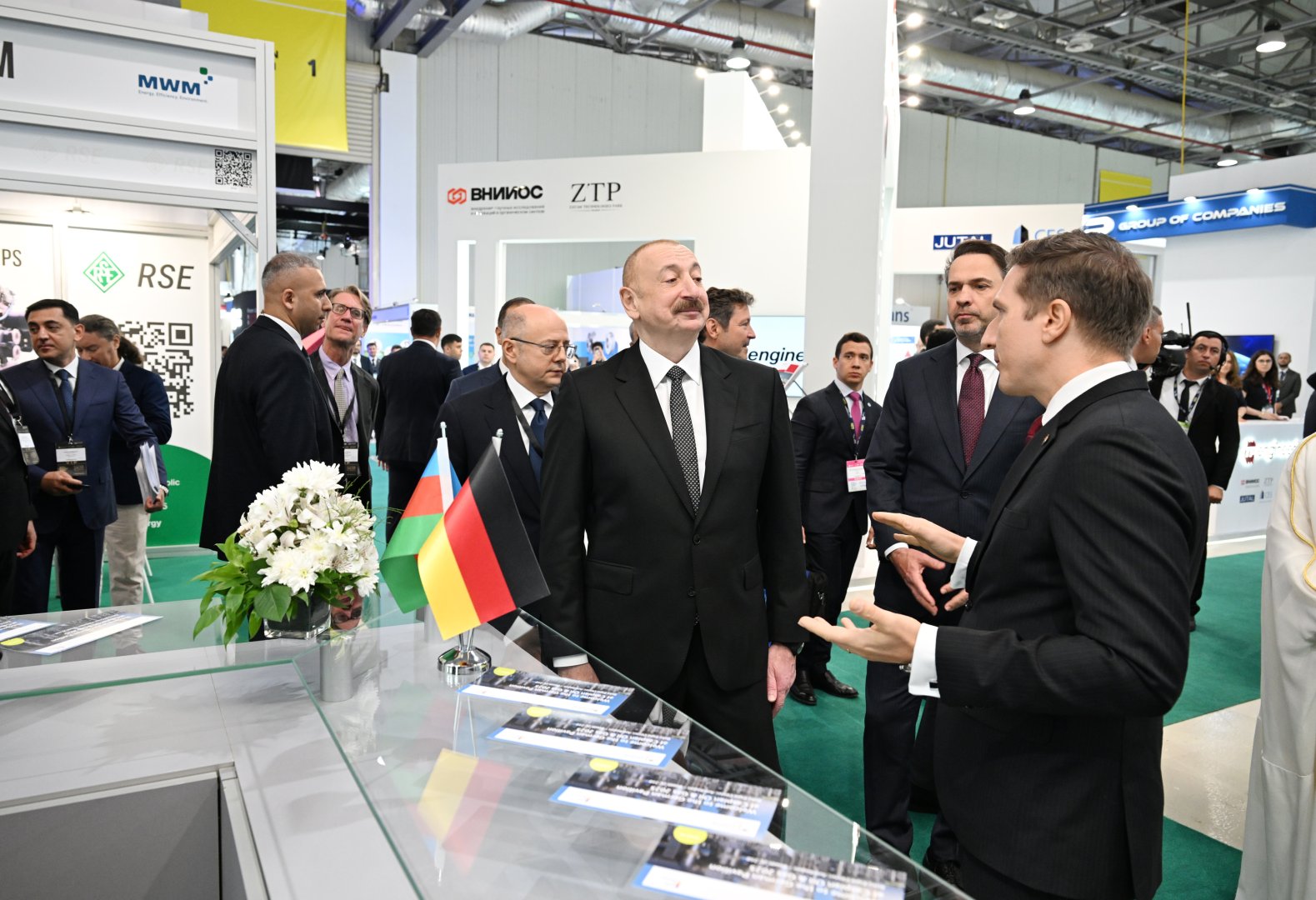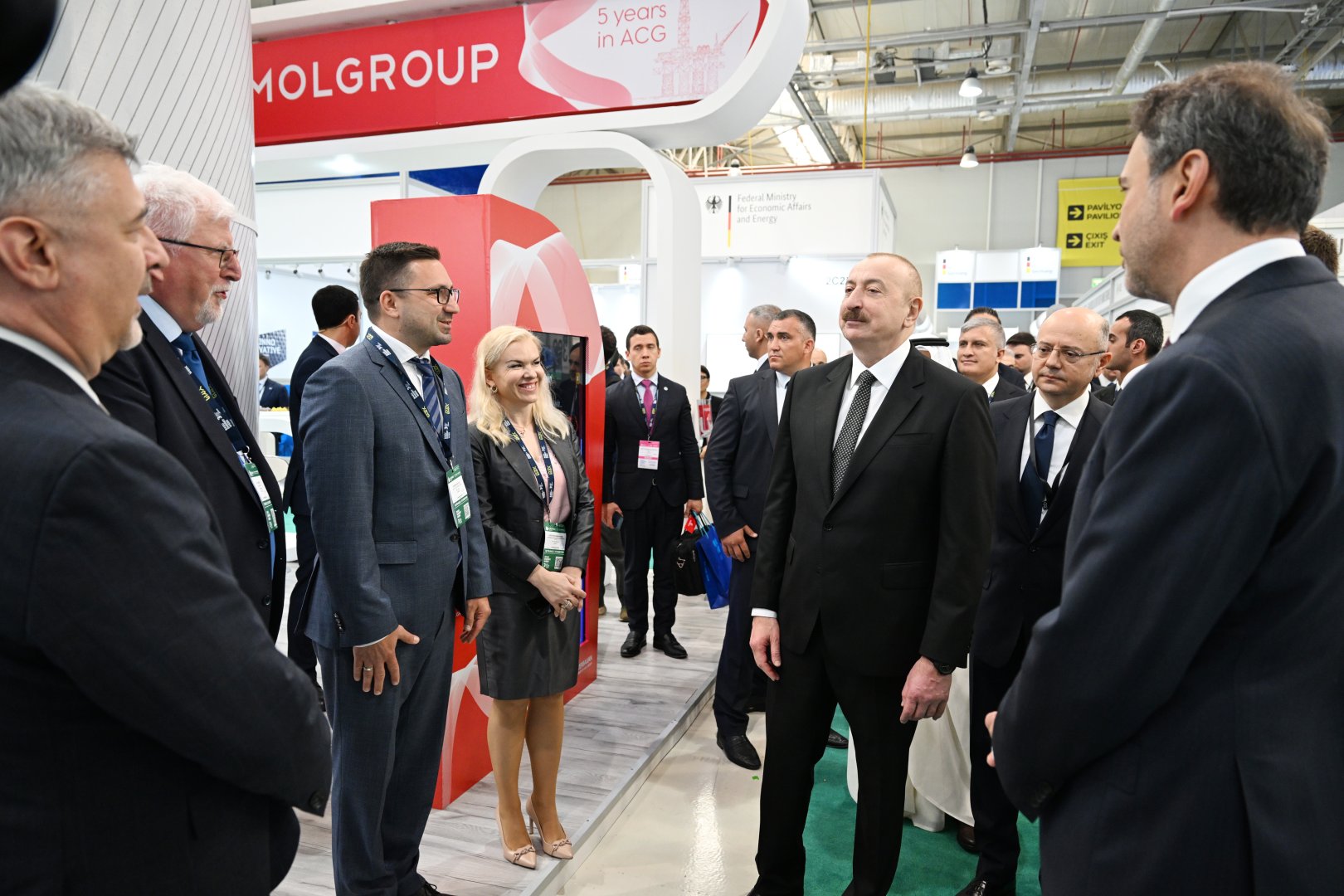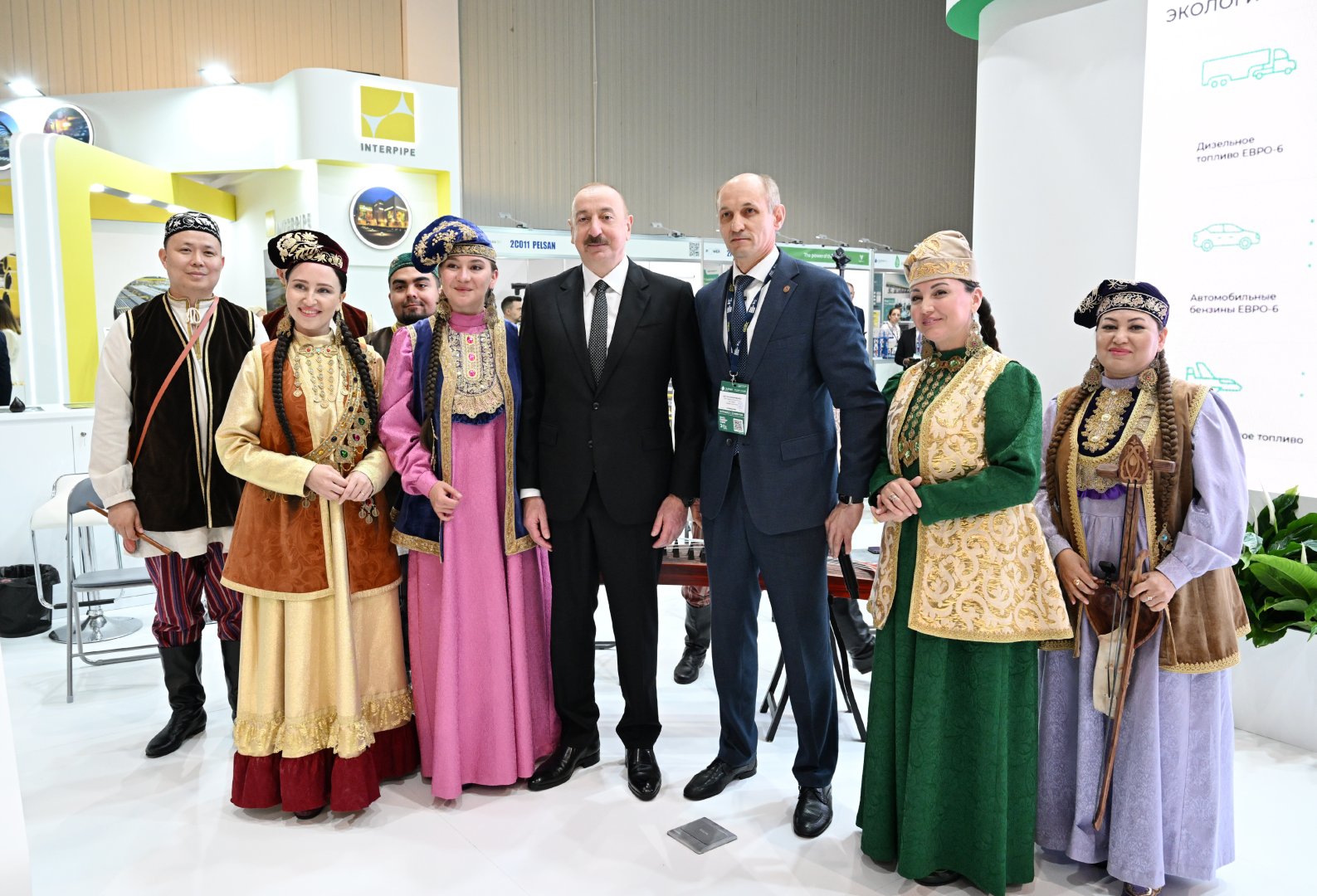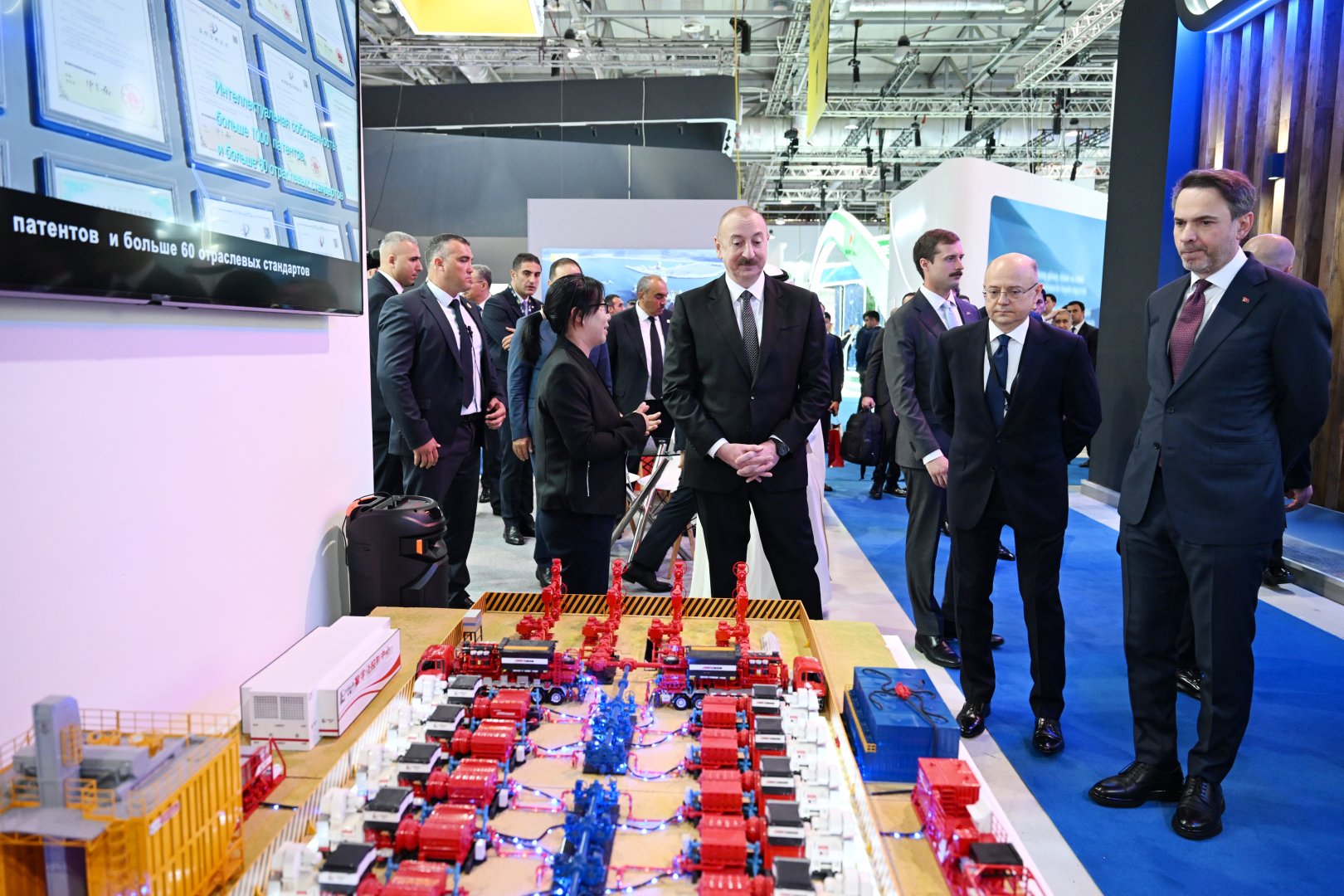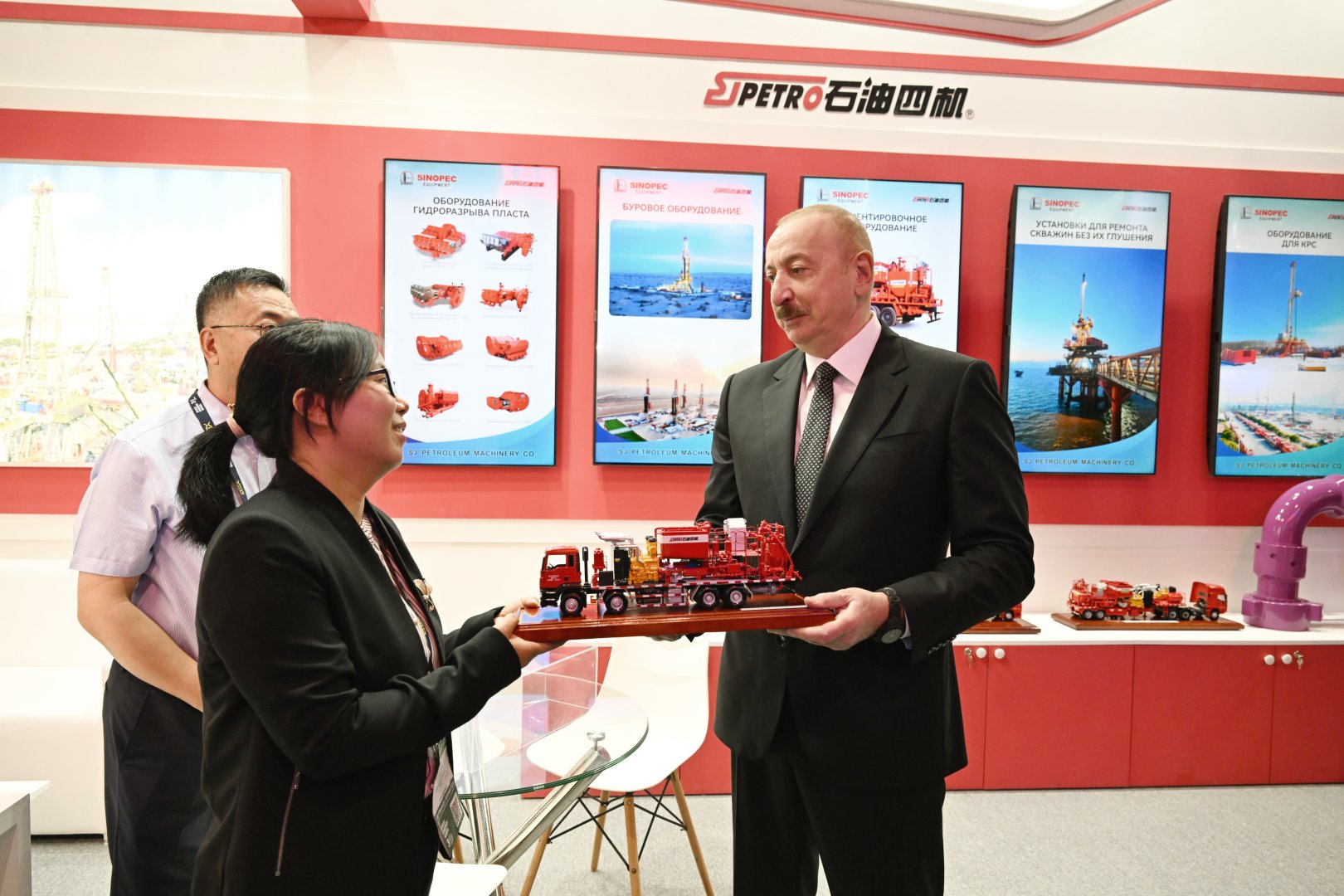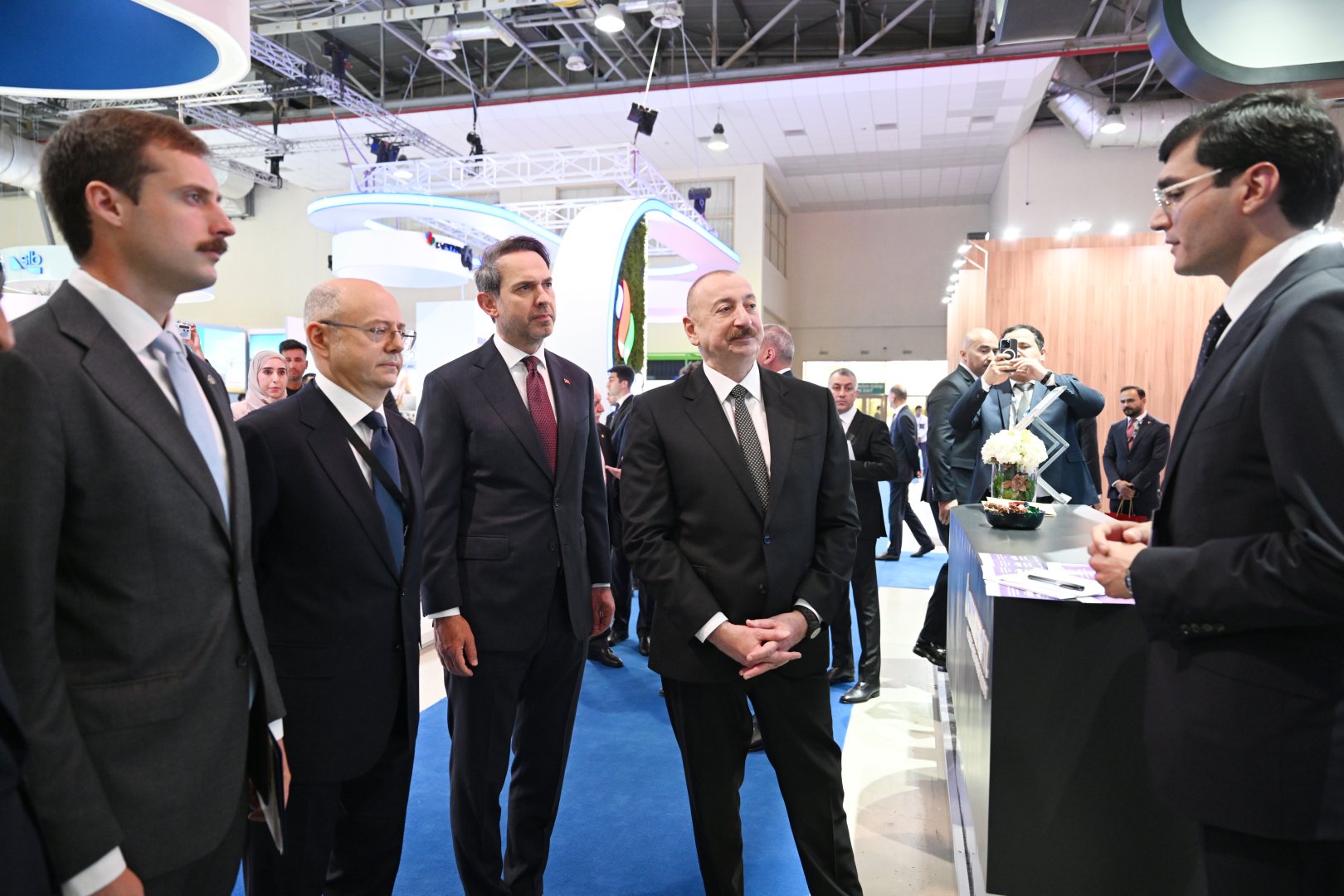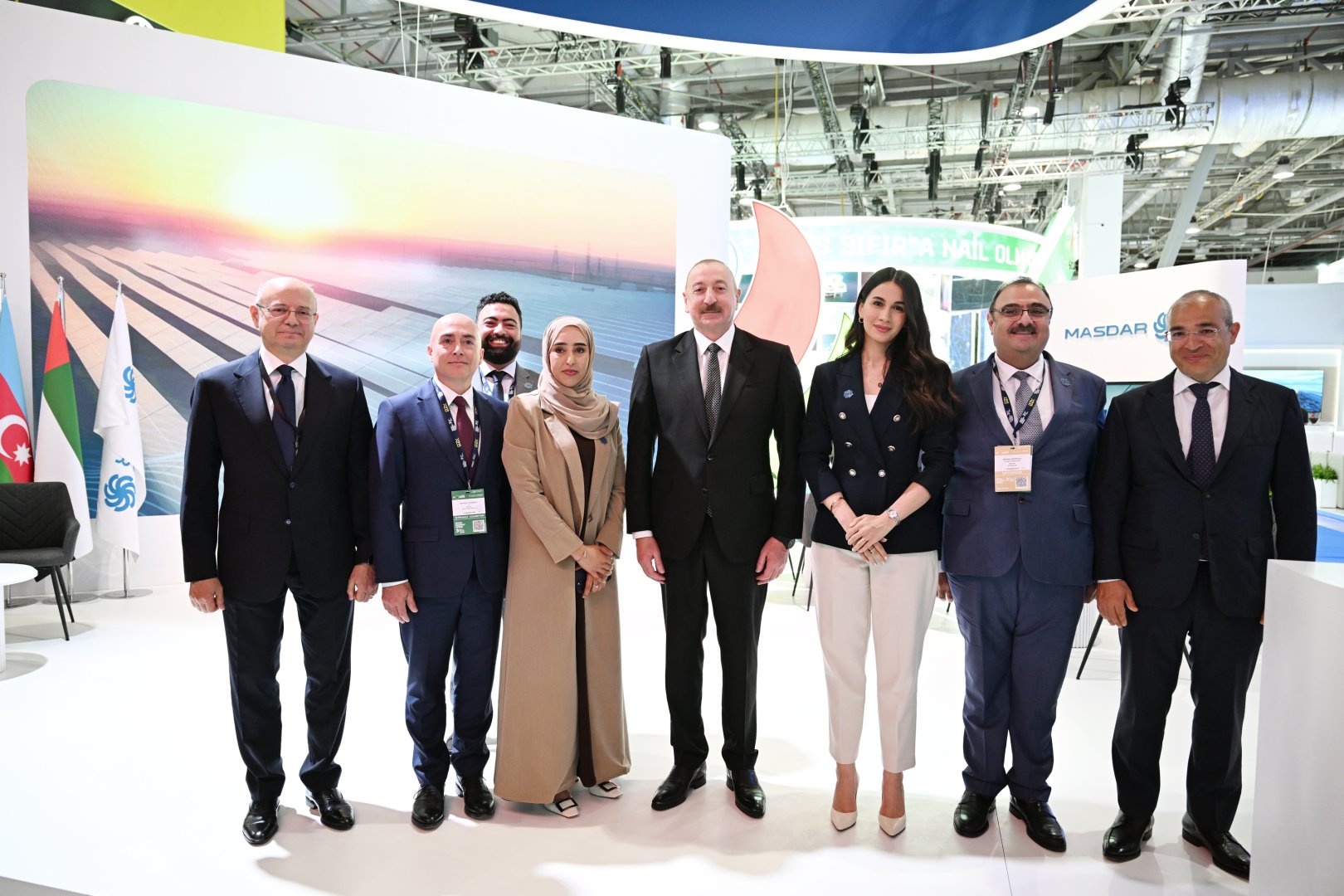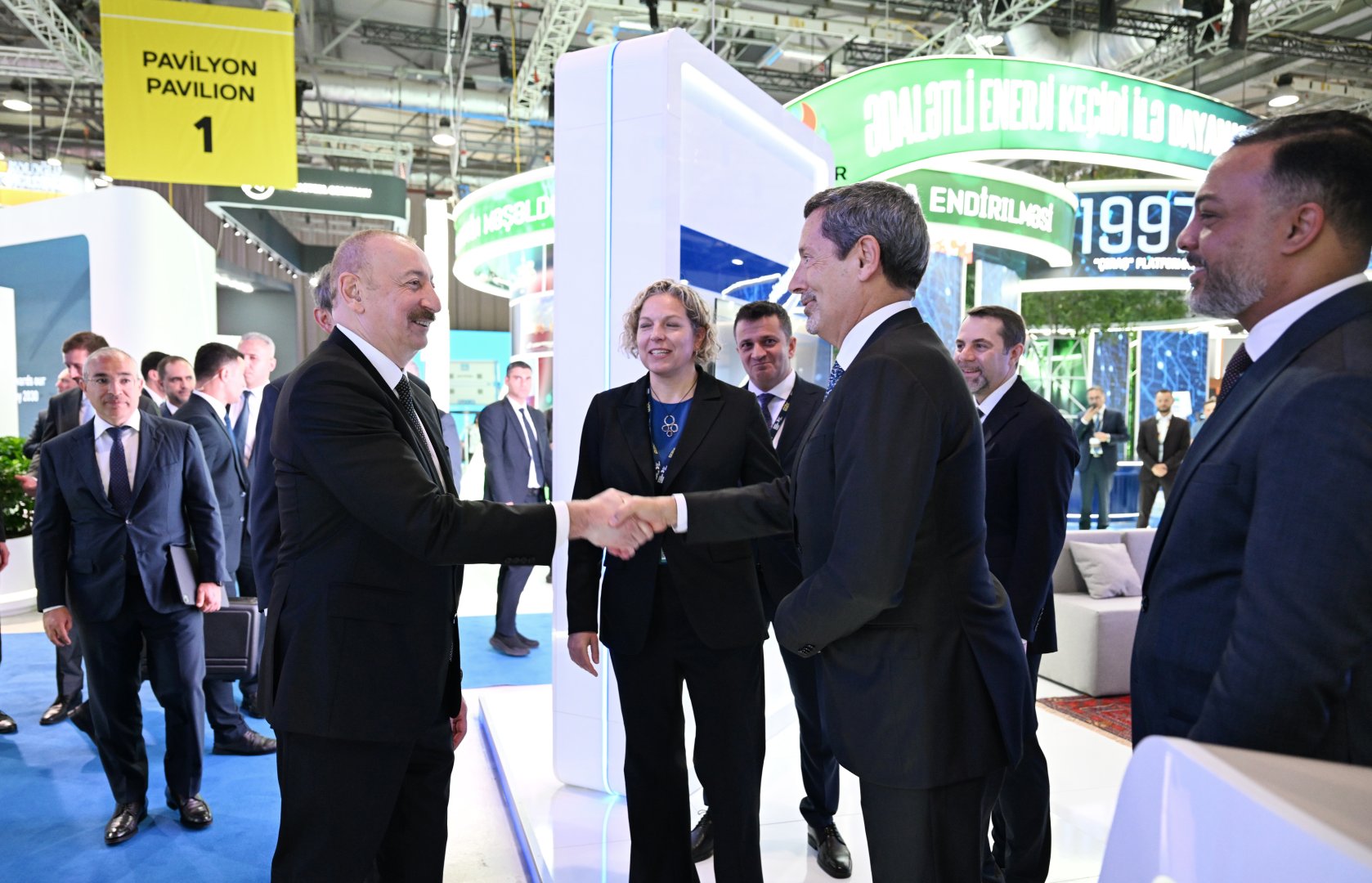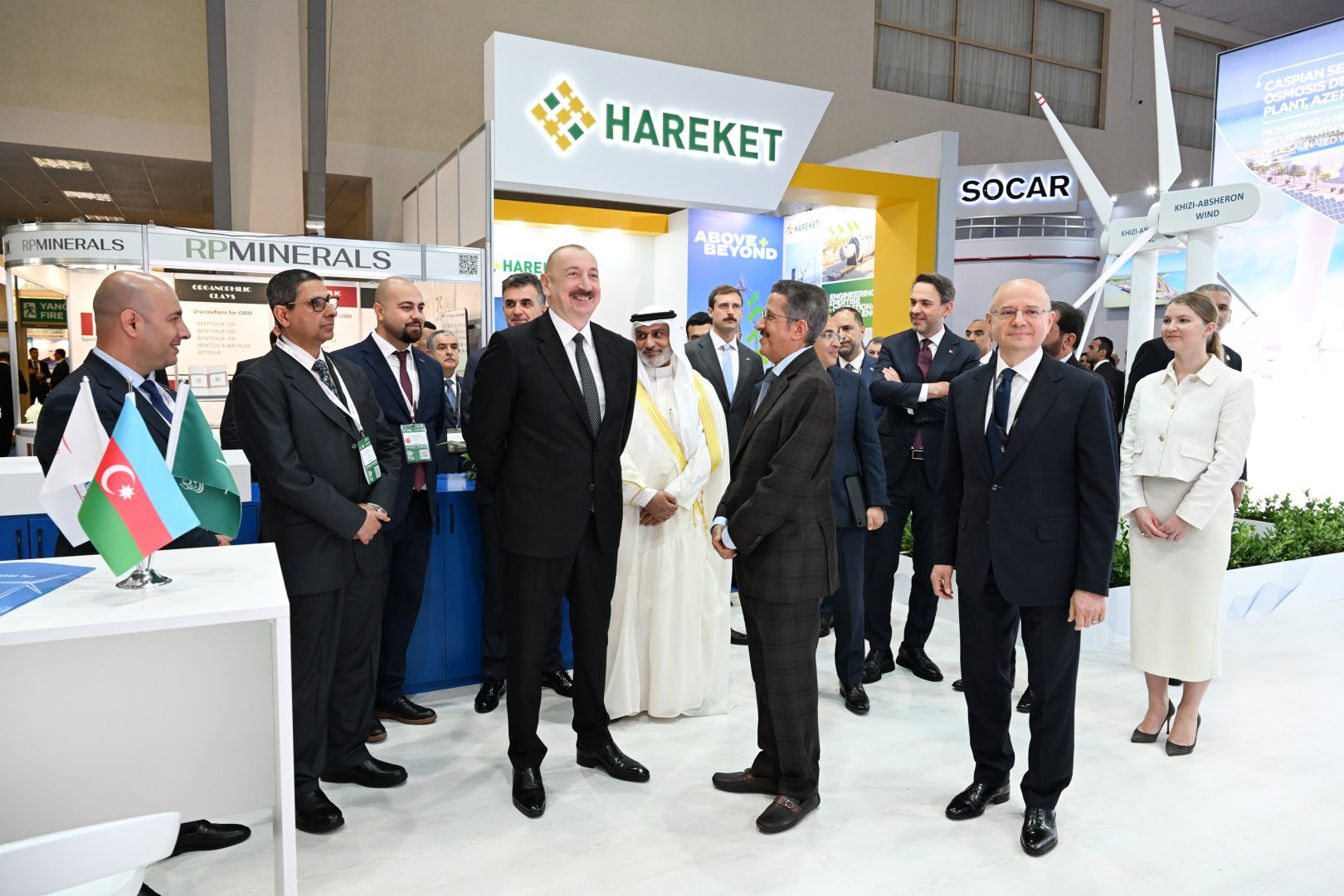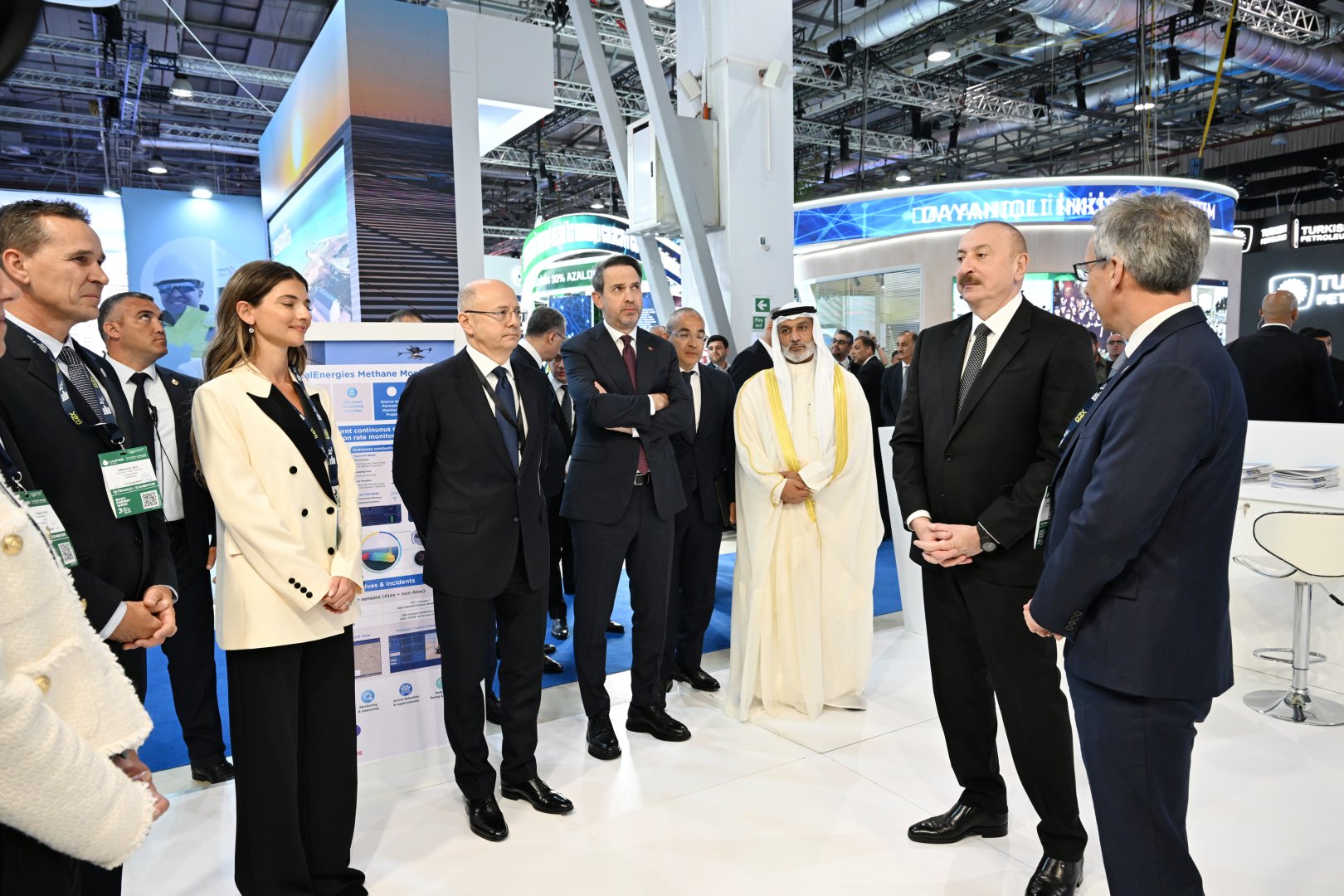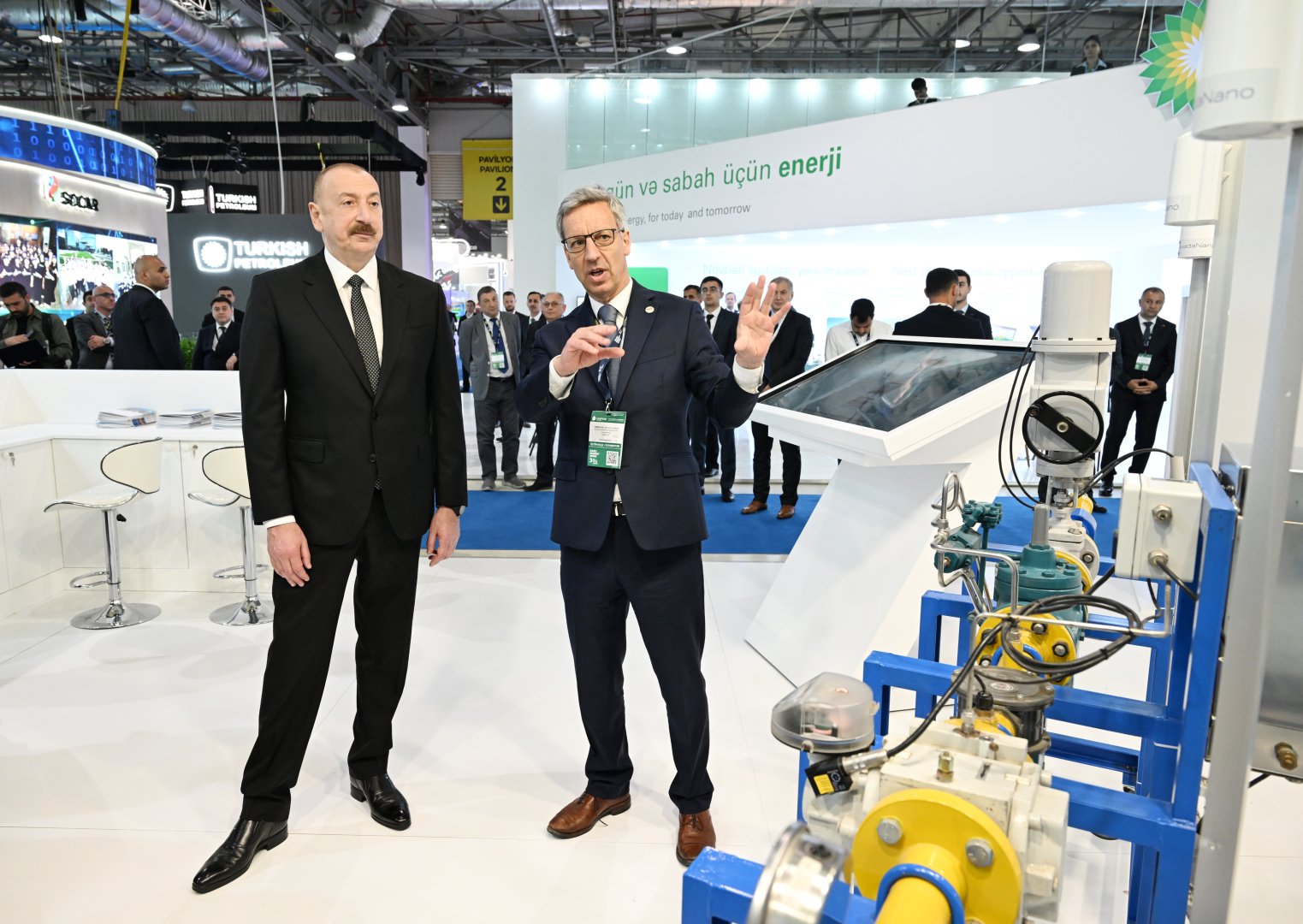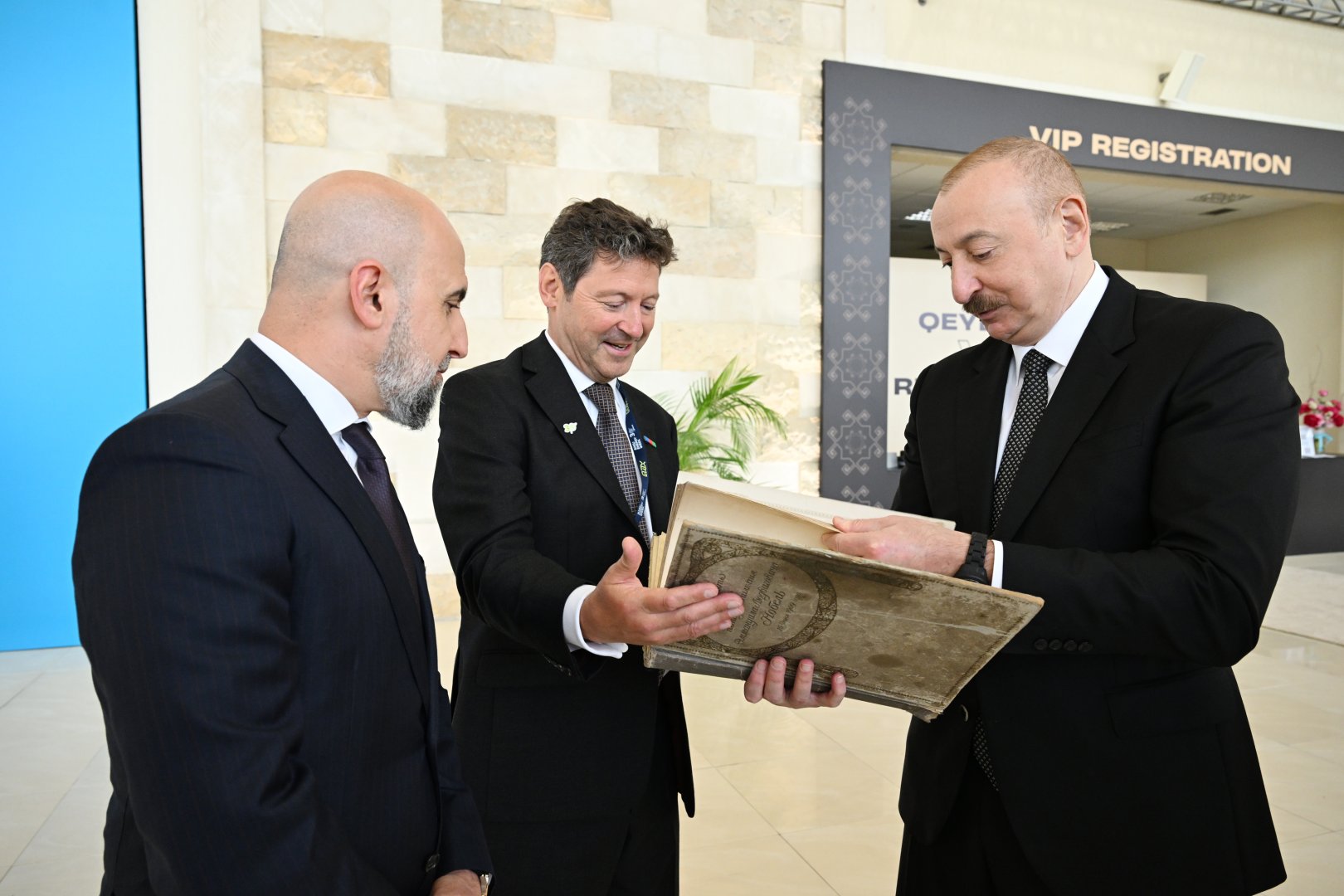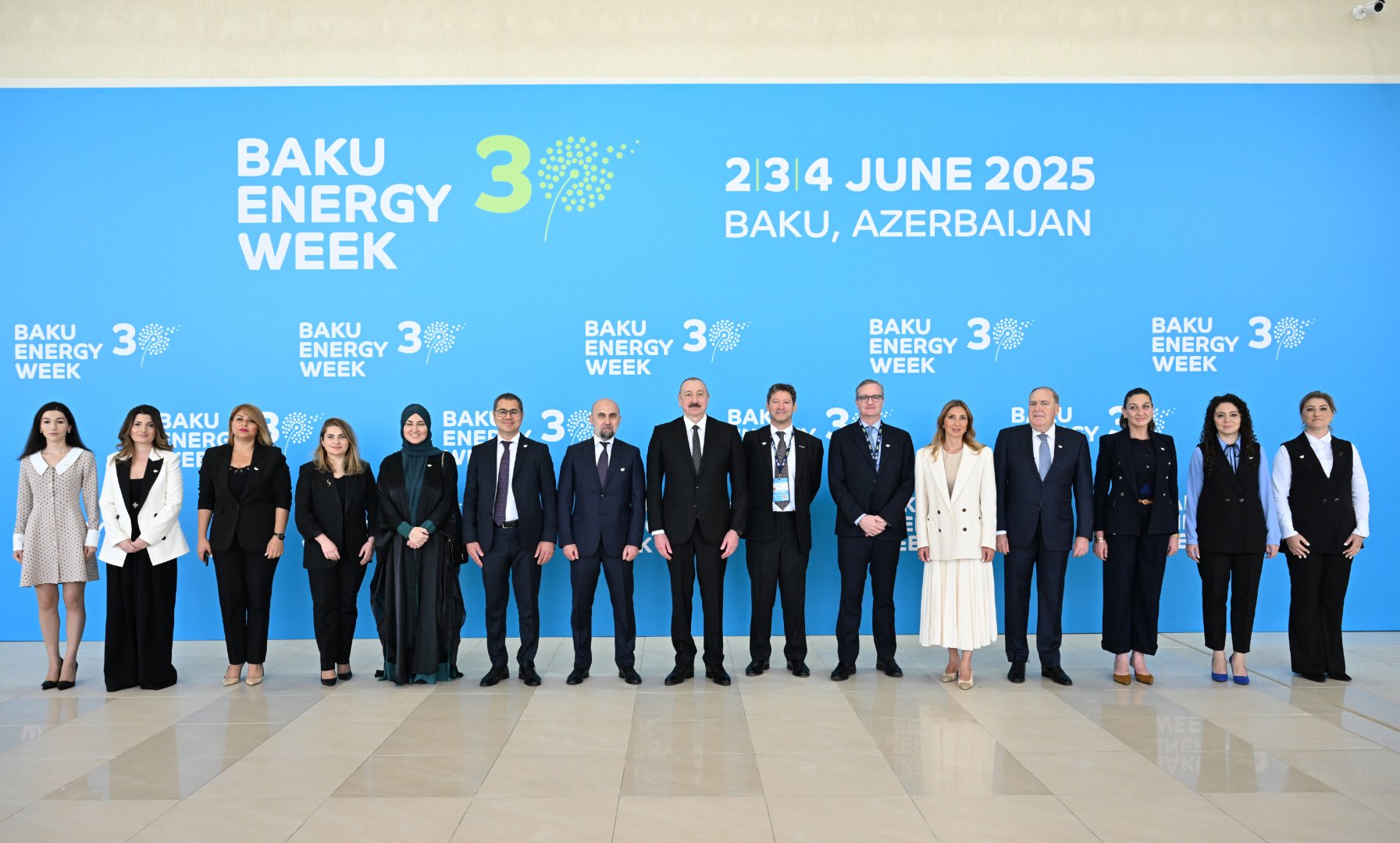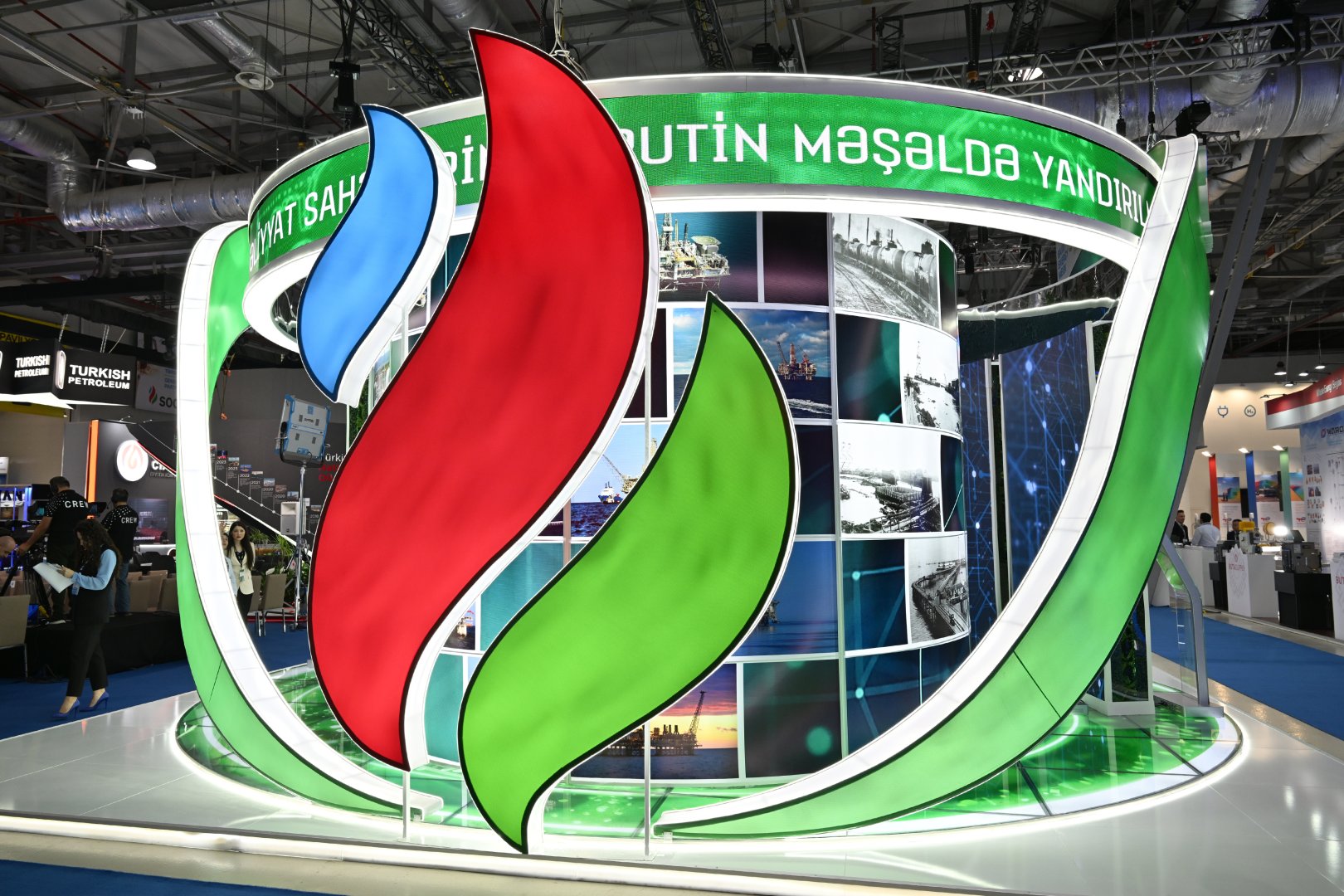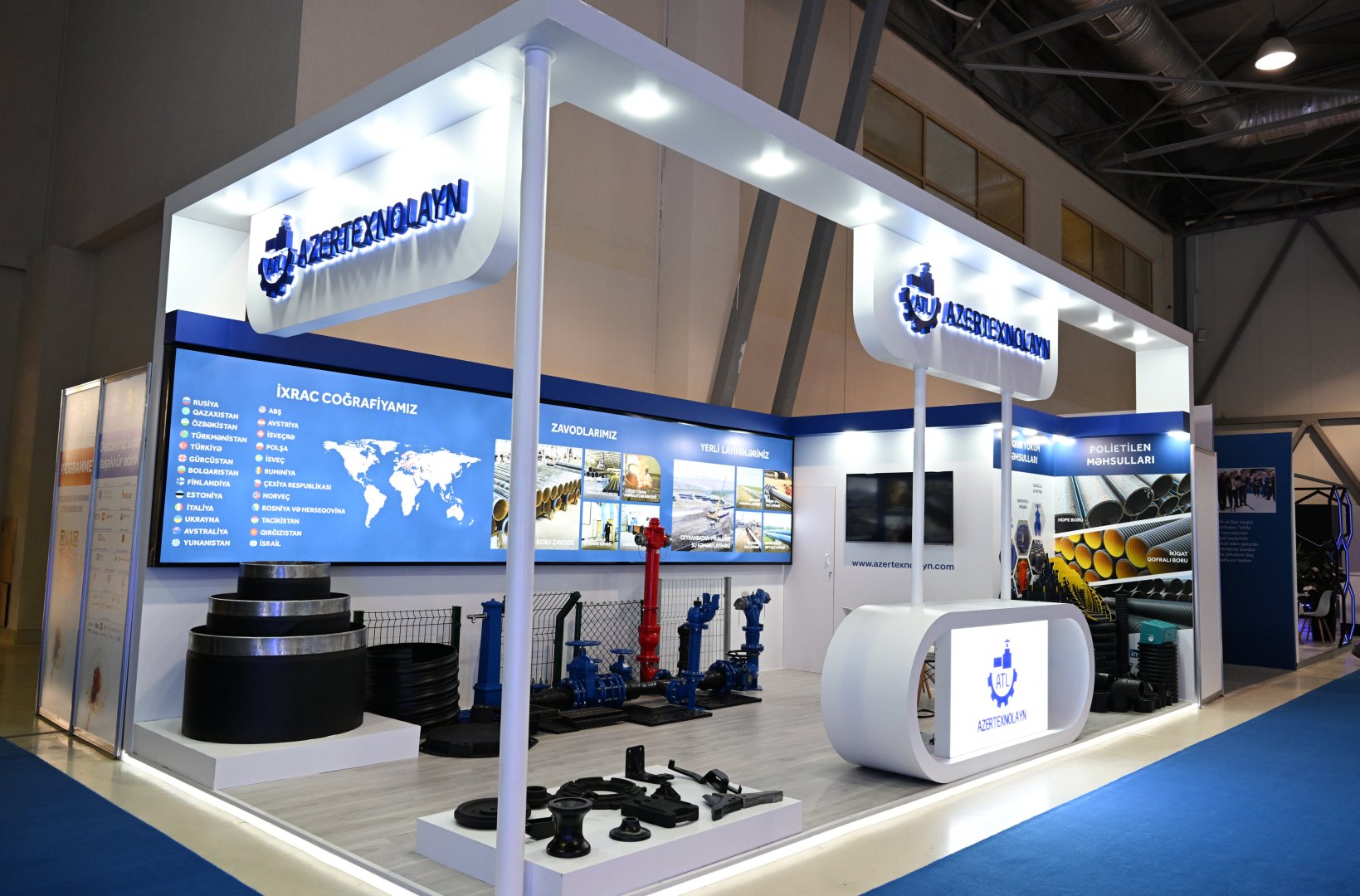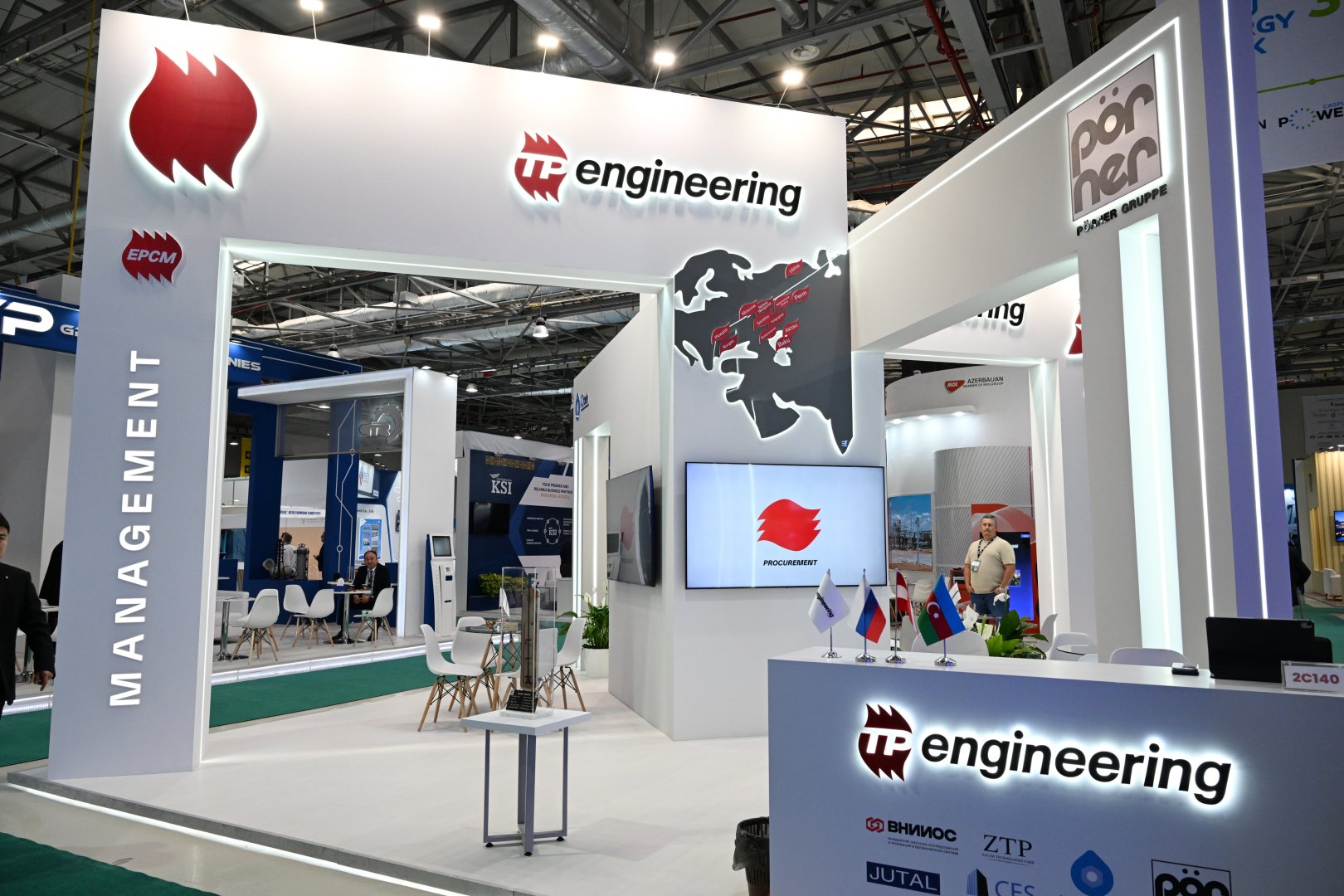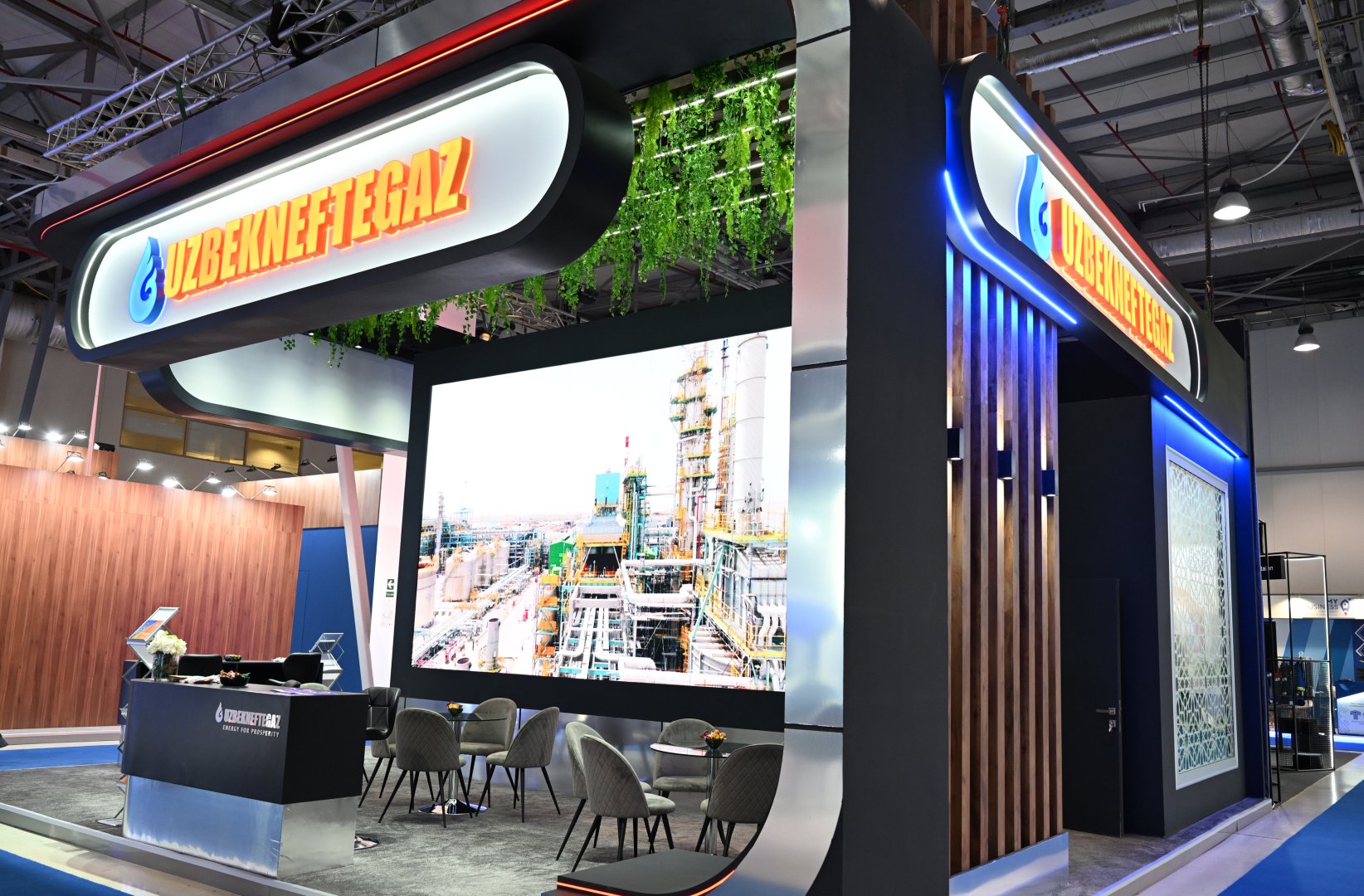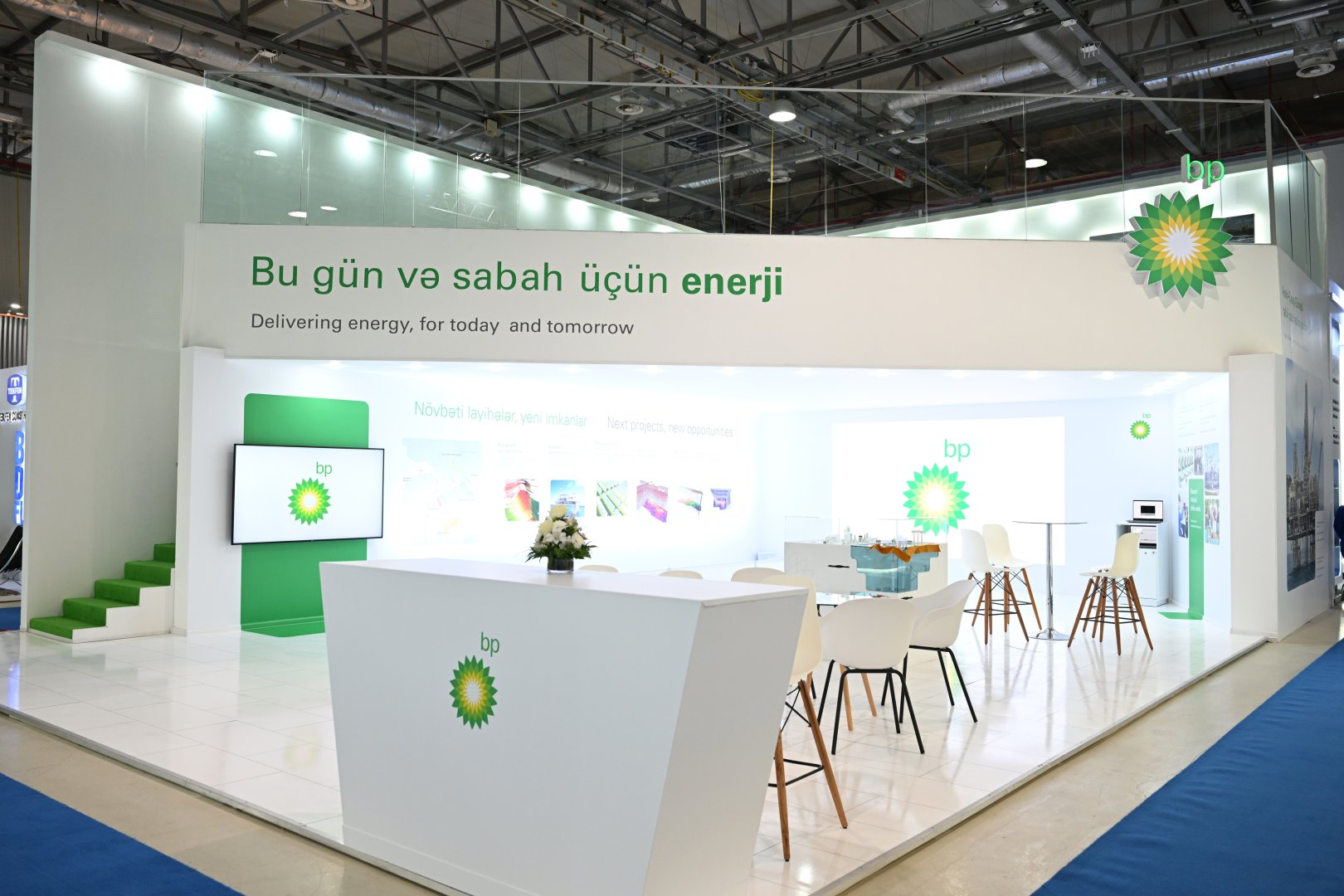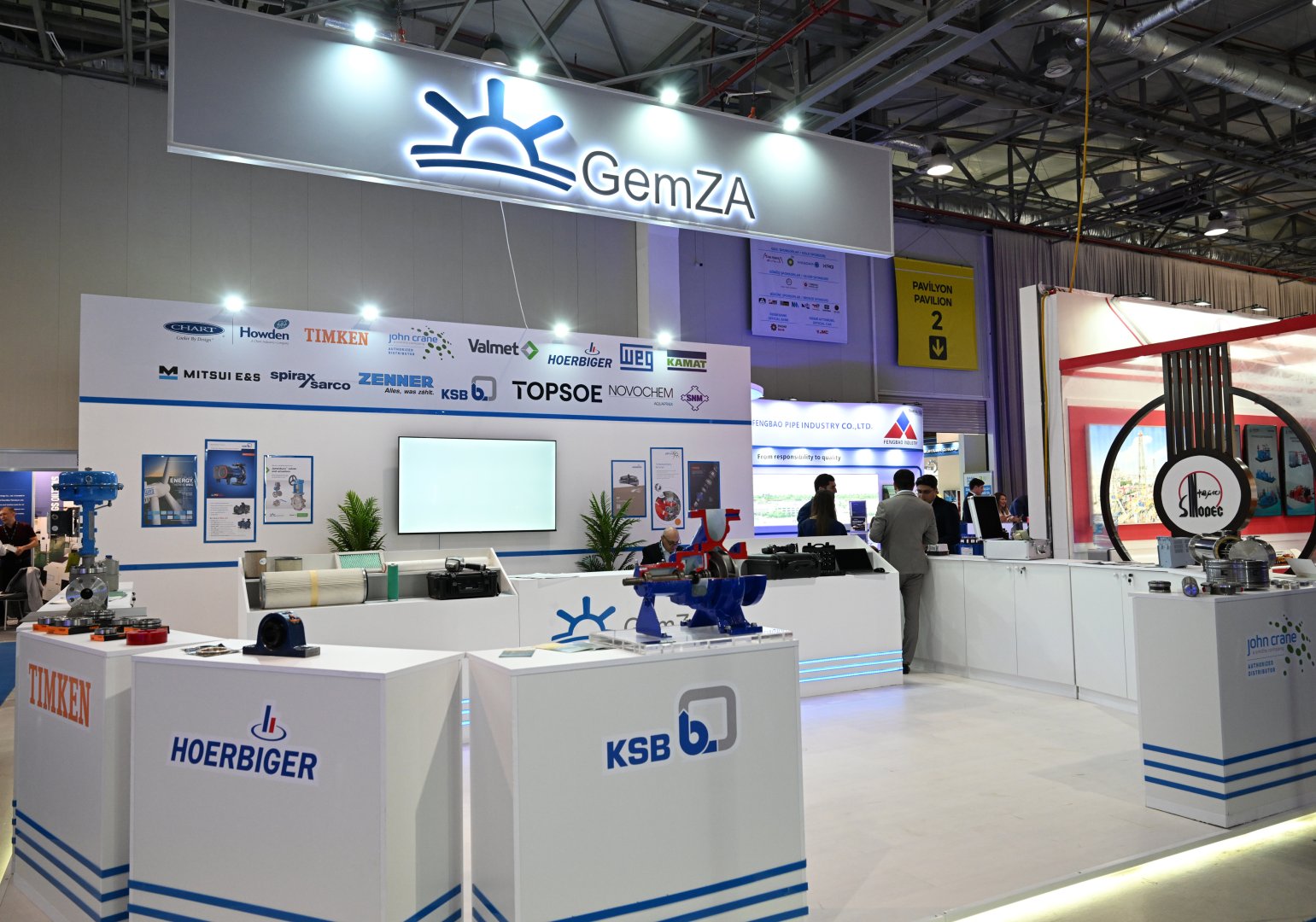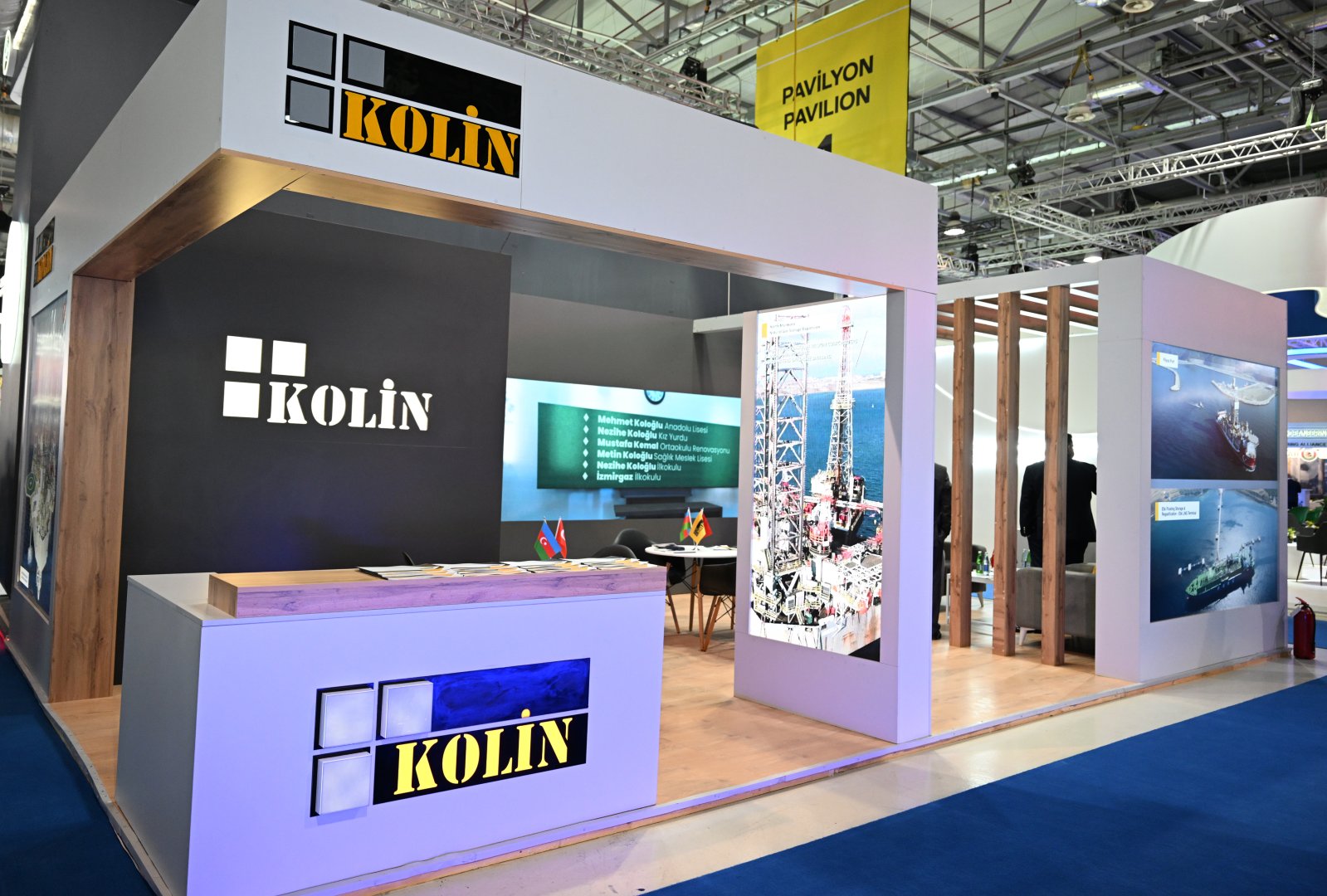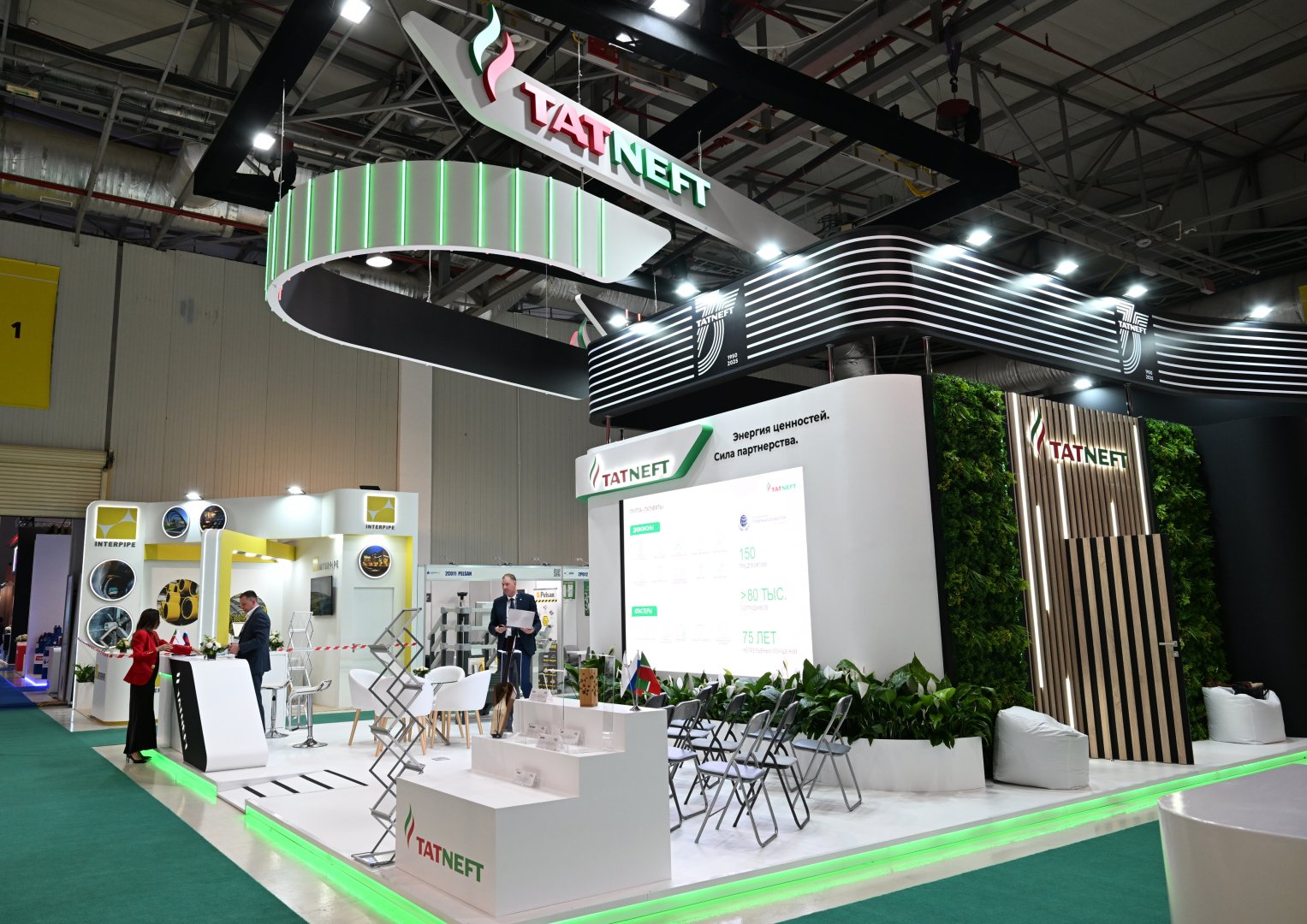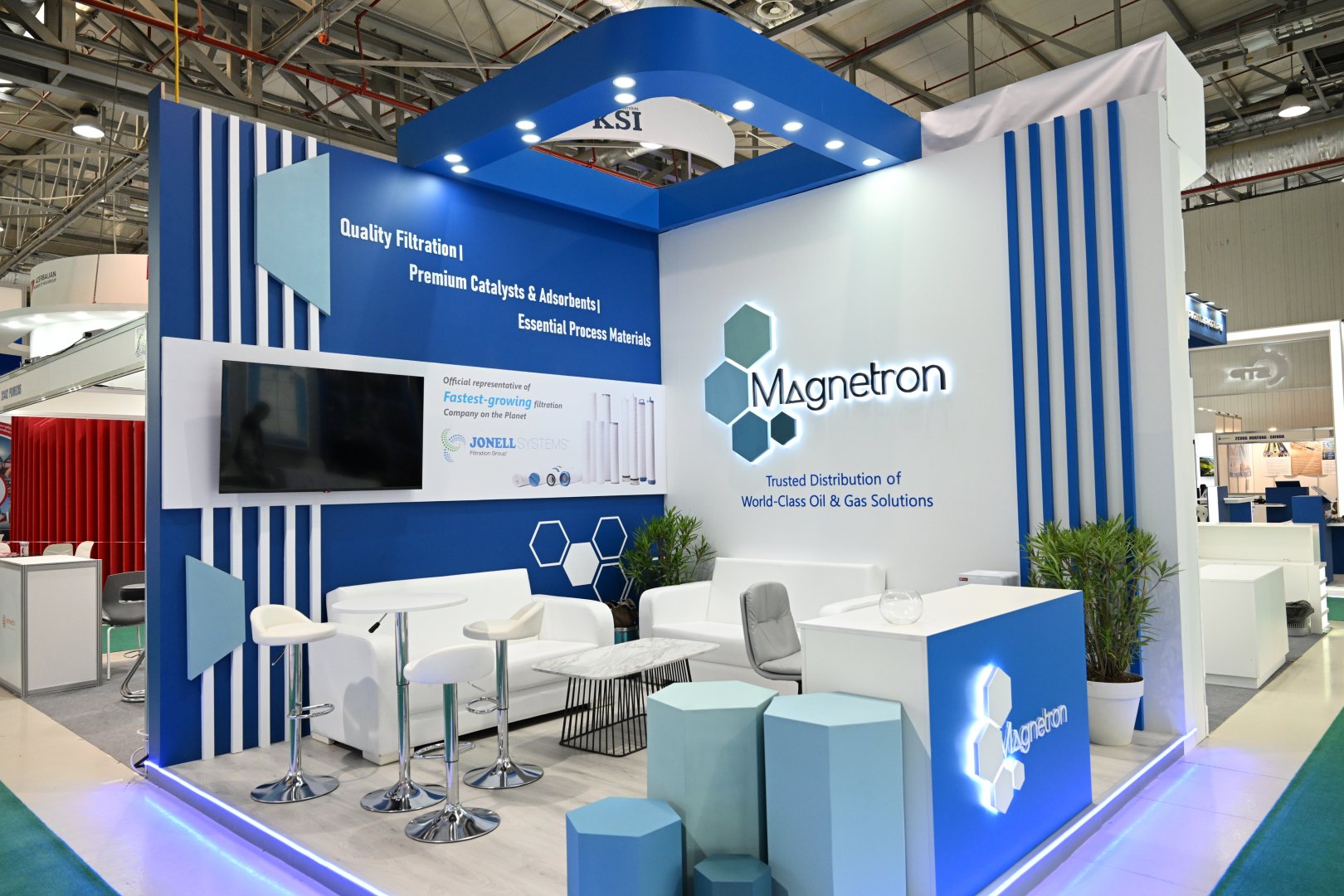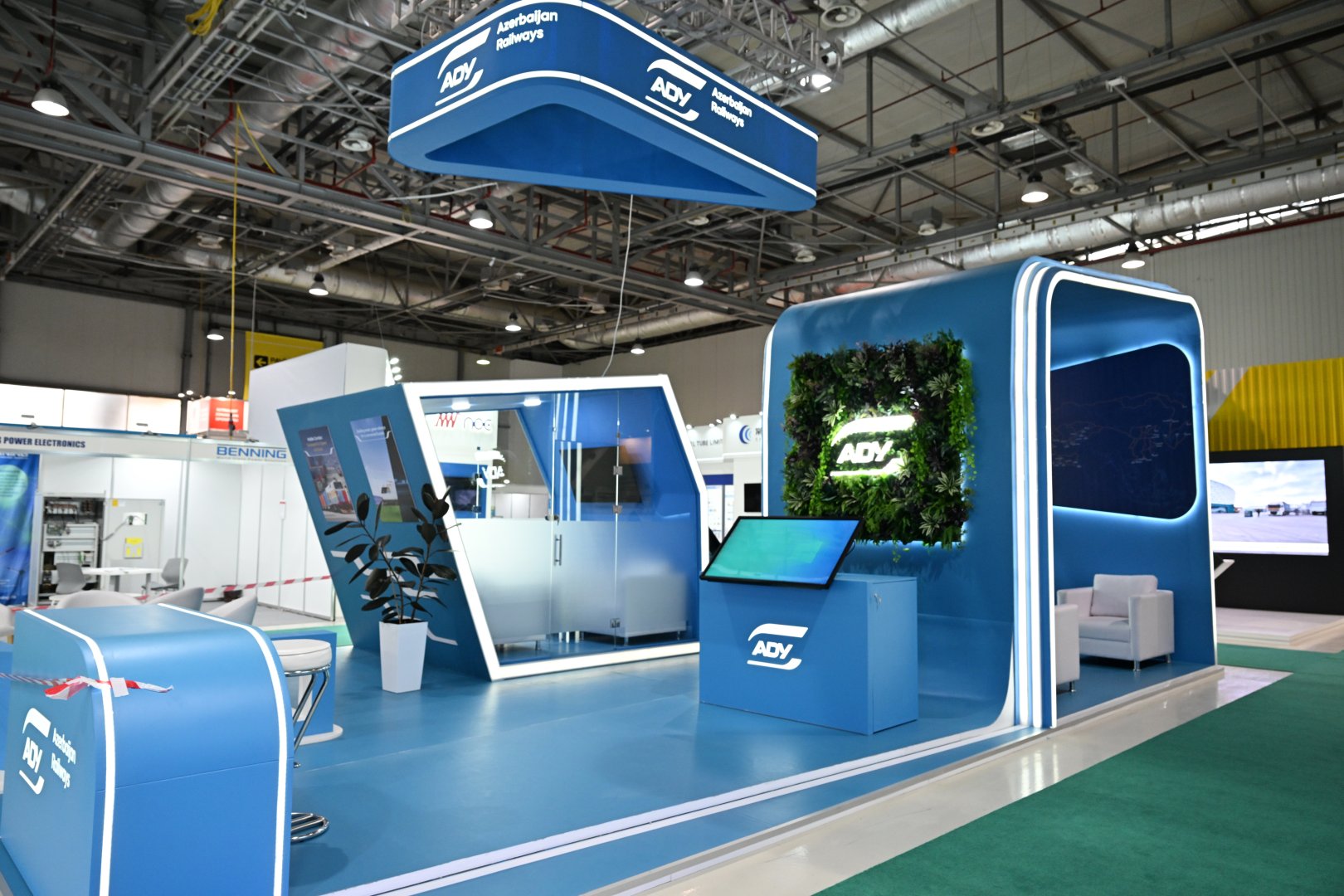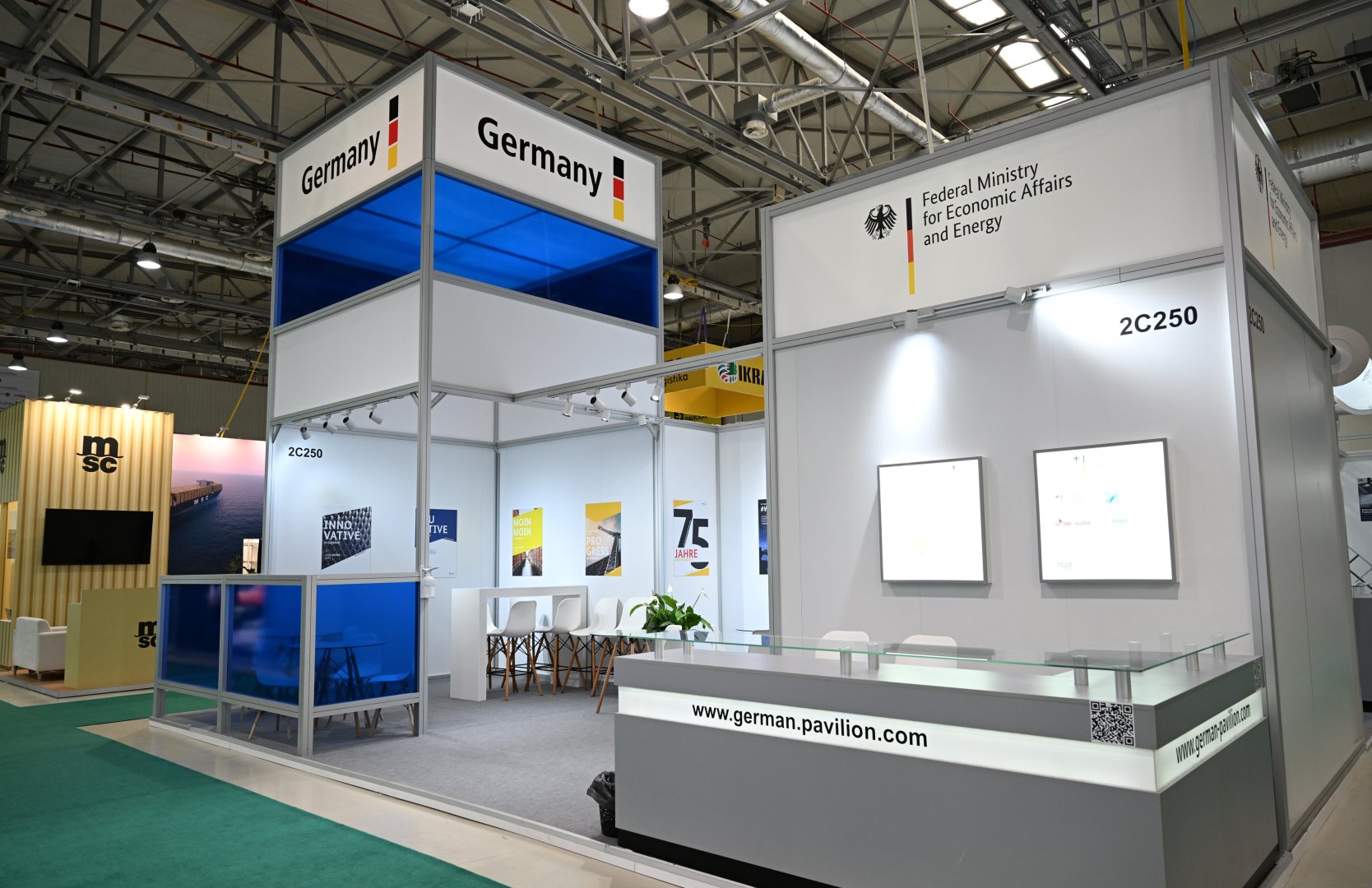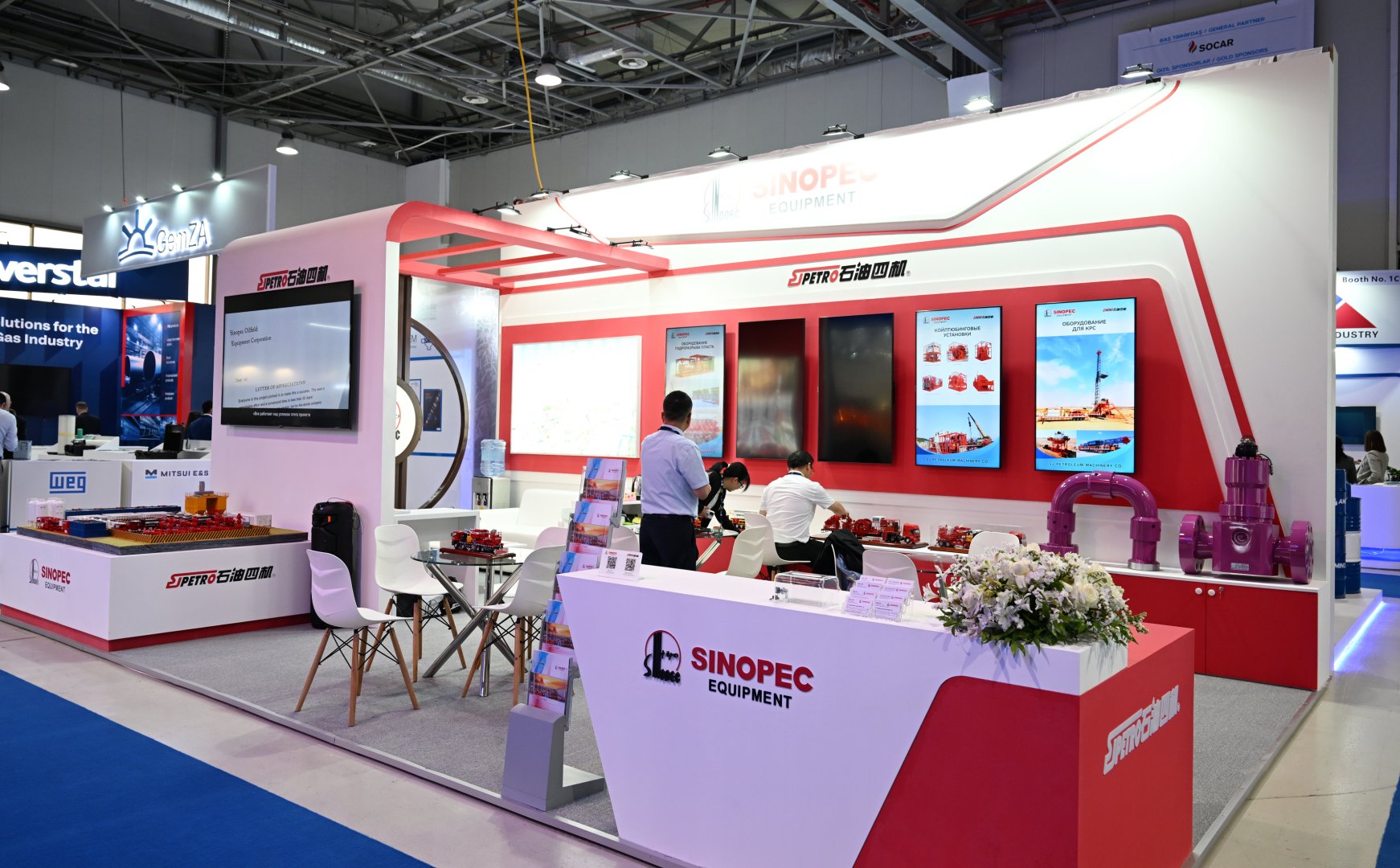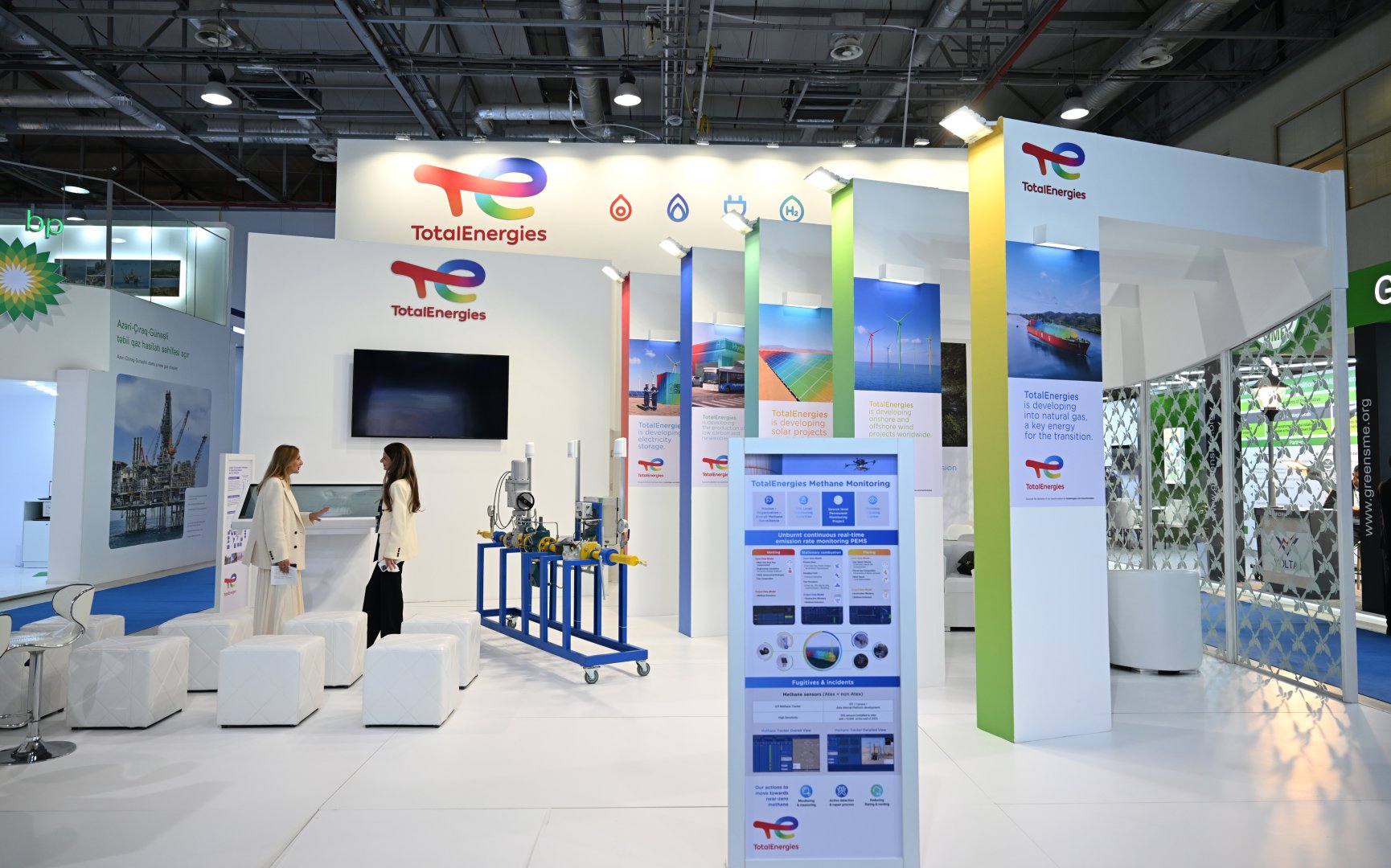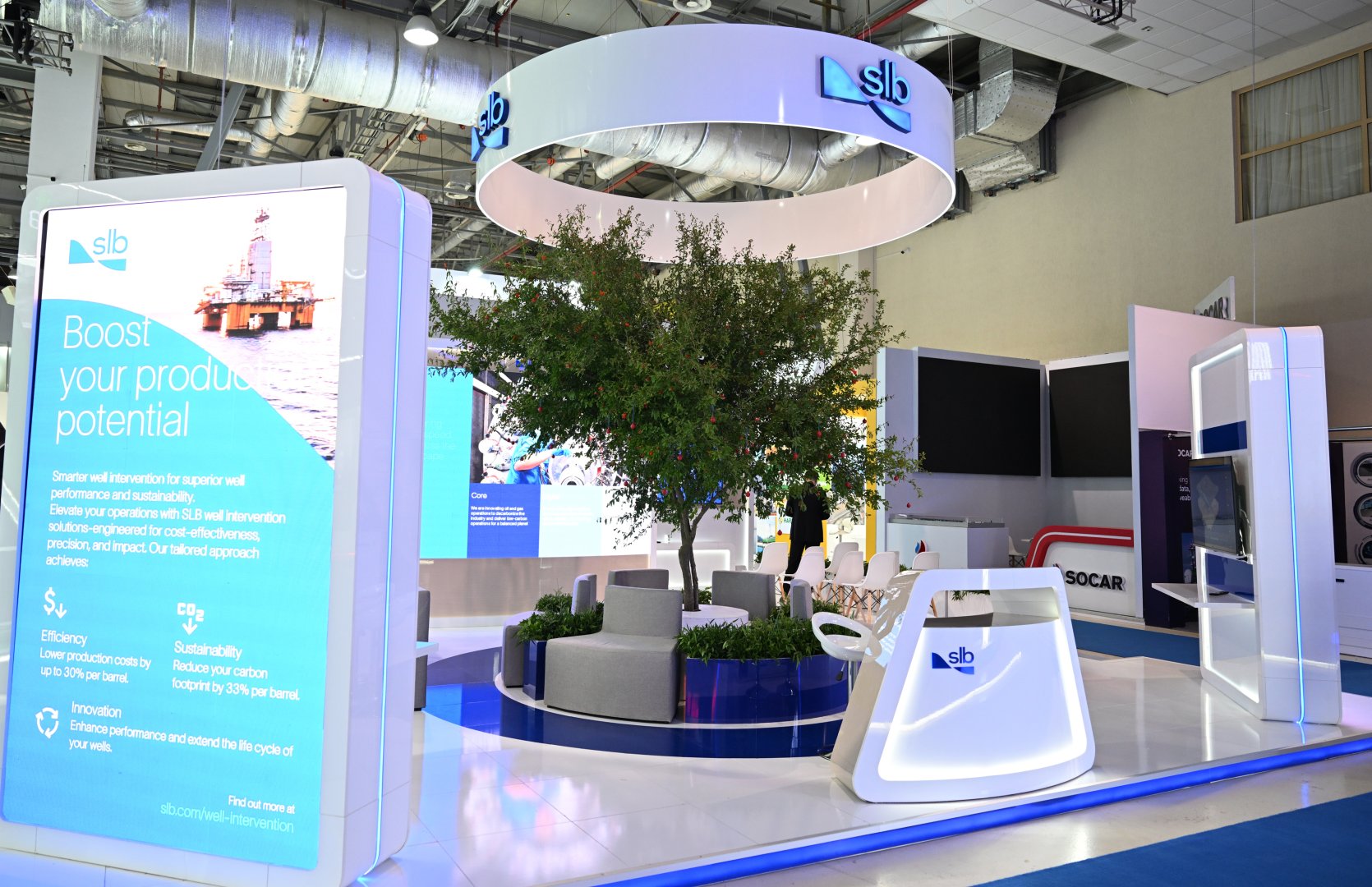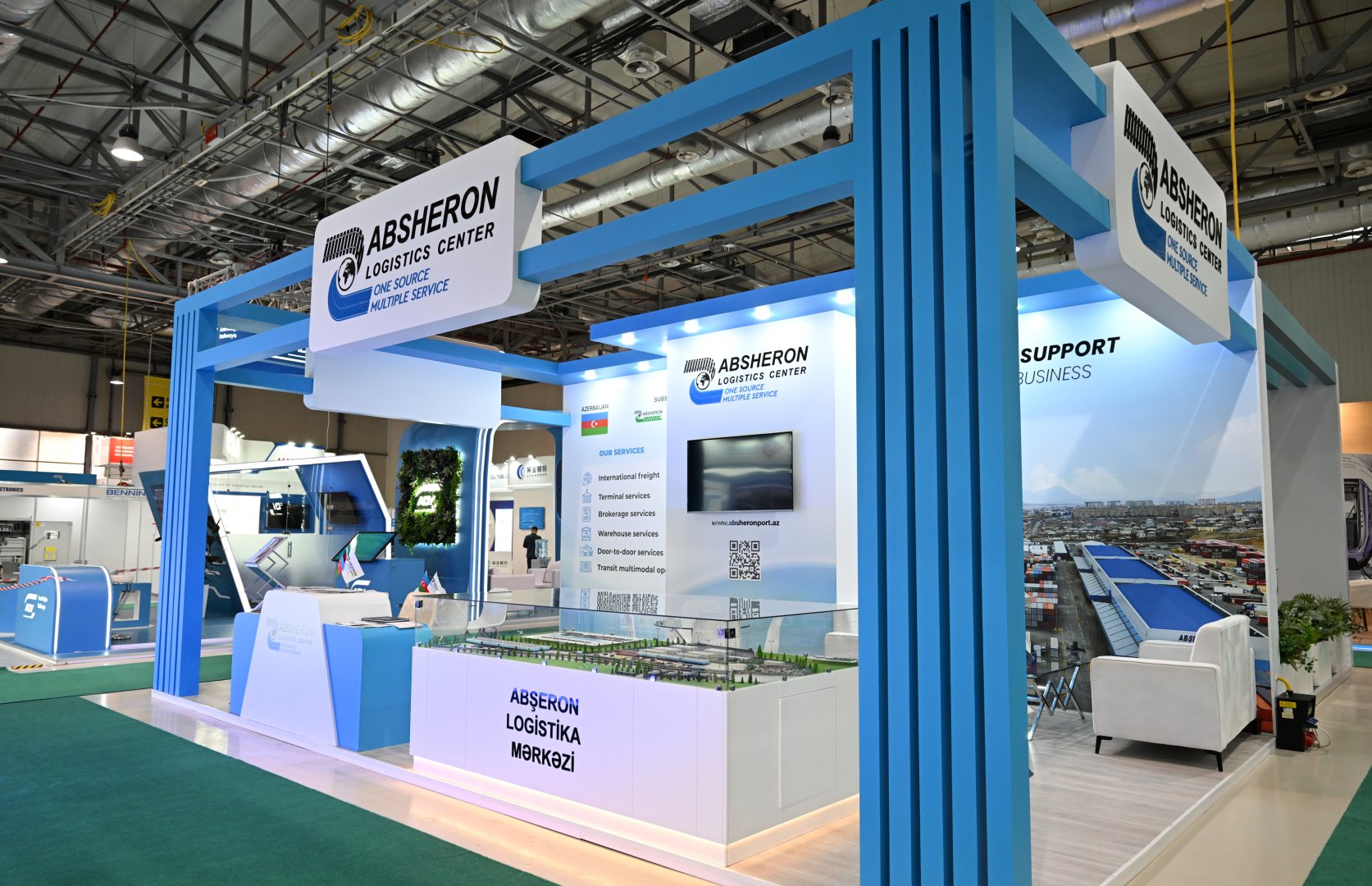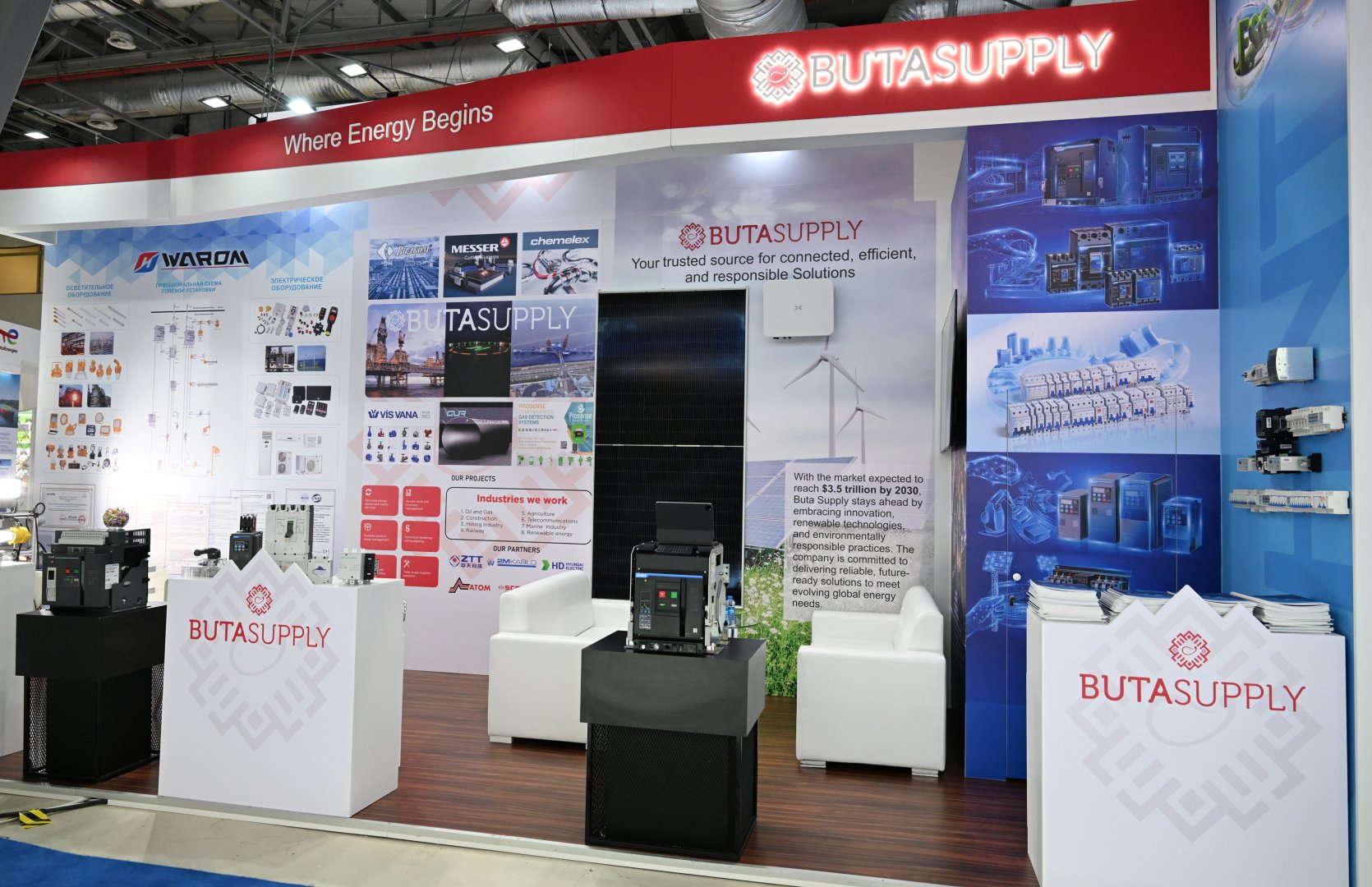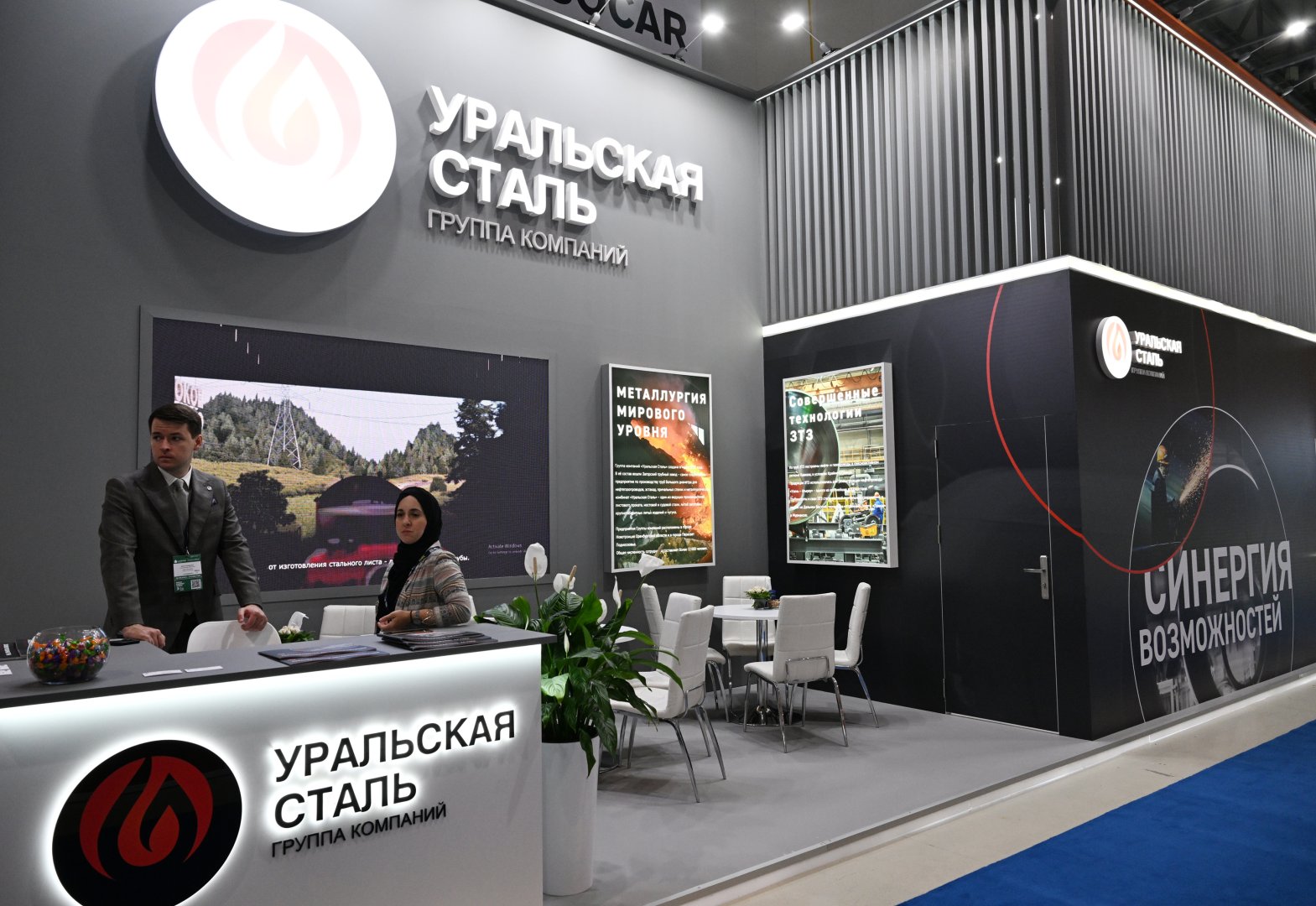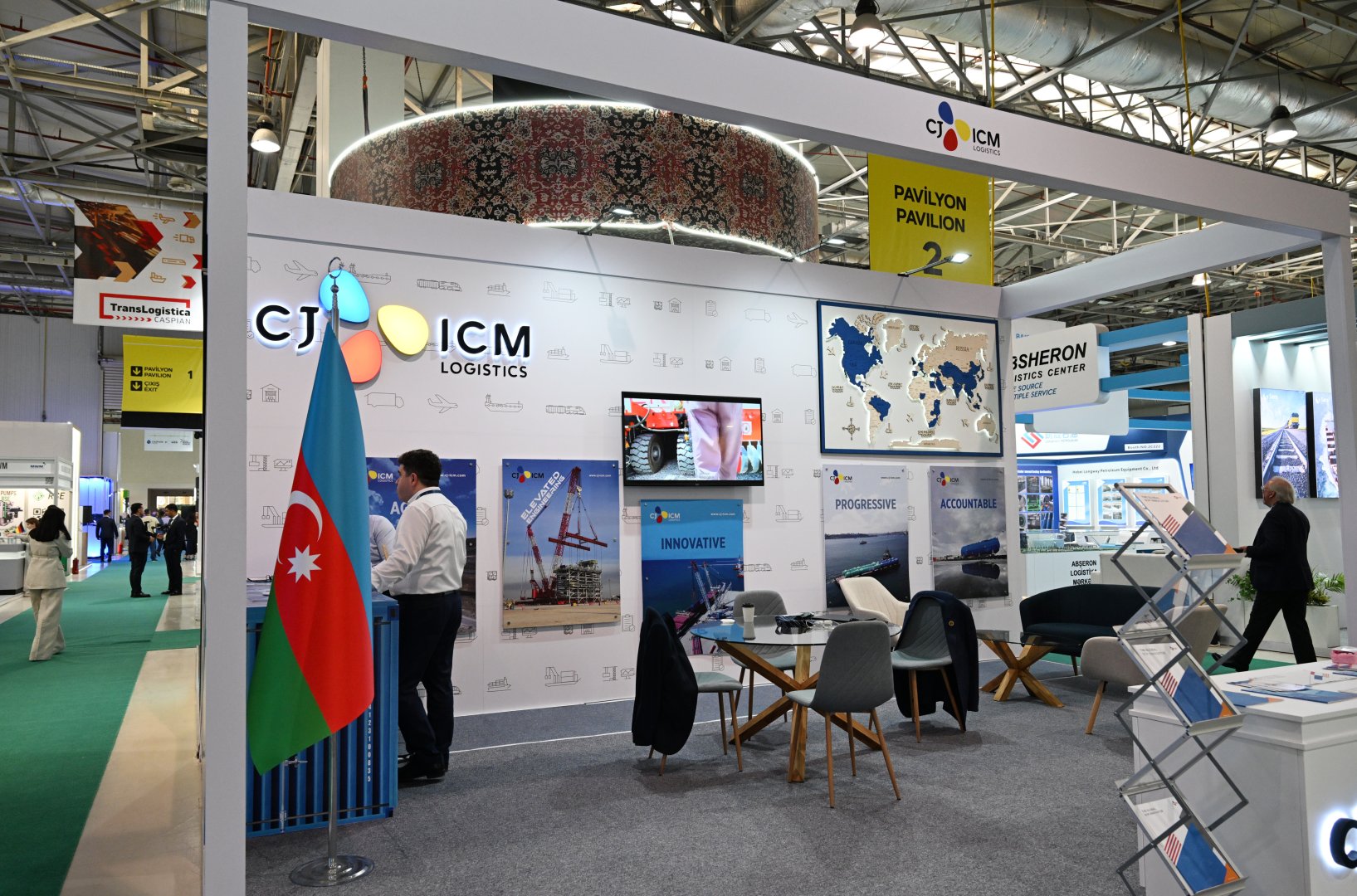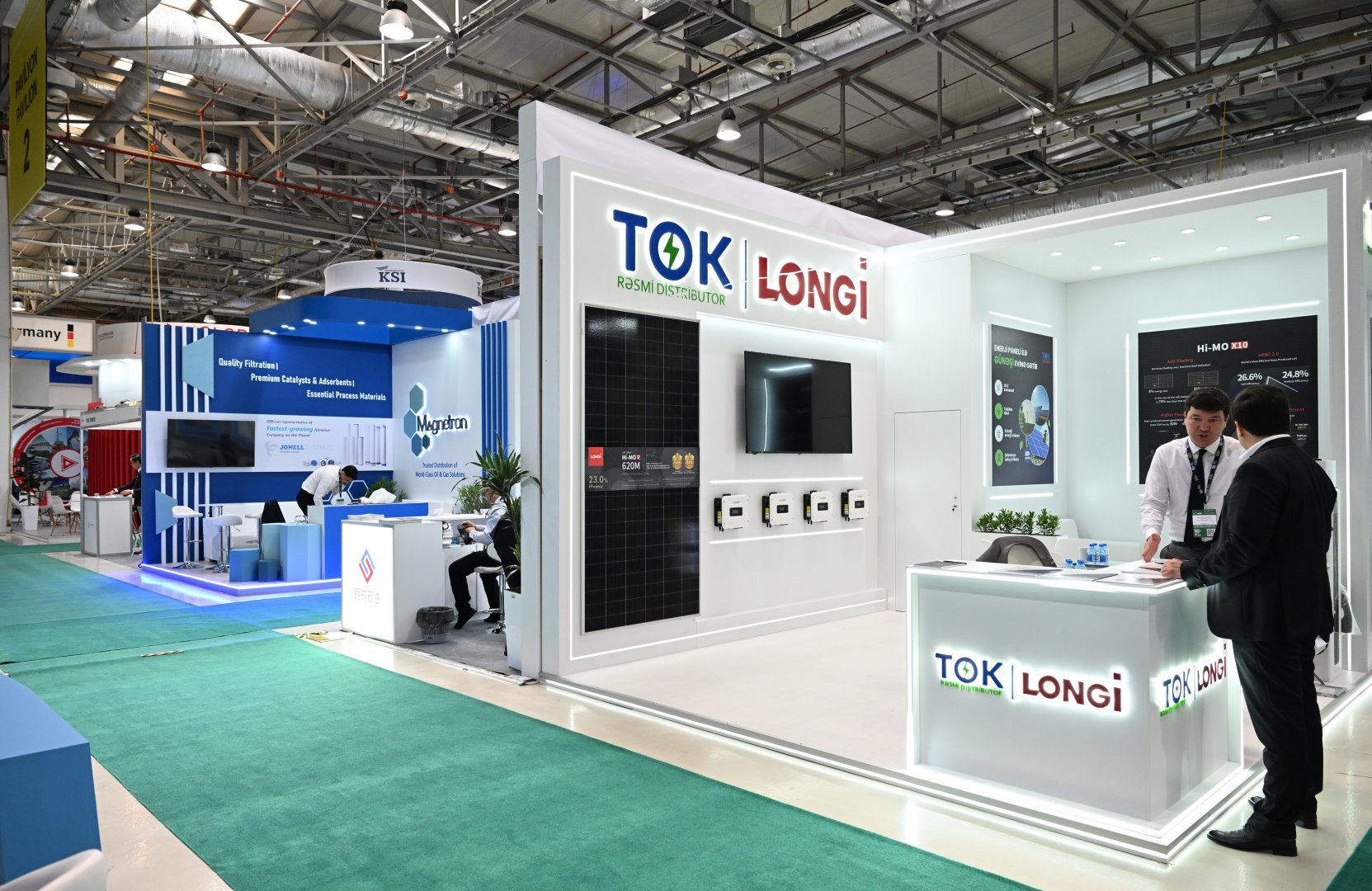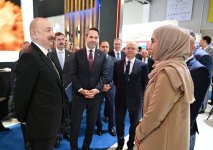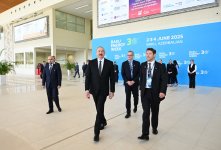BAKU, Azerbaijan, June 2. On June 2, President of the Republic of Azerbaijan Ilham Aliyev attended the official opening ceremony of the 30th Anniversary Caspian Oil and Gas Exhibition, 13th Caspian International Power and Green Energy Exhibition, and the 30th Anniversary Baku Energy Forum, held as part of the Baku Energy Week at the Baku Expo Center, Trend reports.
Addressing the event, Thomas Hurd, Board Advisor at the UK-based ICA Events Group, said:
- Your Excellency, esteemed Mr. President,
Distinguished guests, ladies and gentlemen,
On behalf of the organizing committee, it’s an honor and a privilege to welcome you to the 30th anniversary of the Baku Energy Week. And I must take this opportunity also to congratulate Azerbaijan on their fantastic victory last night.
We are grateful to His Excellency, Mr. Ilham Aliyev, President of the Republic of Azerbaijan, for his presence here today. It highlights the importance of this event for Azerbaijan's energy sector and the importance of this event for the international community as a whole. In 1994, under the leadership of Heydar Aliyev, Azerbaijan took its first bold step onto the global energy stage. The inaugural Caspian Oil and Gas Exhibition coincided with the signing of the historic Contract of the Century, laying the foundation for Azerbaijan's modern energy strategy and its dynamic role in global energy cooperation. Since then, Baku Energy Week has evolved into one of the most respected and influential platforms in the region, bringing together governments, global companies, and industry experts to shape the future of energy.
This year's anniversary edition welcomes over 200 companies from 30 countries, alongside new participants and national pavilions, reflecting growing international interest and confidence in Azerbaijan's energy potential.
I would like to sincerely thank the Ministry of Energy of the Republic of Azerbaijan, SOCAR, and all our valued partners and sponsors for their indispensable support in delivering this milestone event. Let me congratulate you all on this remarkable anniversary, and wish you a successful, productive, and inspiring week filled with valuable discussions, new collaborations, and exciting opportunities. Thank you very much.
I have the honor to invite His Excellency, President Ilham Aliyev, to the stage.
Then, President Ilham Aliyev delivered a speech.
Speech by President Ilham Aliyev
- Good morning, ladies and gentlemen.
I'd like, first of all, to greet all our guests. Thank you for being with us today. I also express gratitude to the organizers for the continuous support of Azerbaijan's energy agenda. As was already mentioned, back in 1994, when the first oil and gas exhibition was held, right after that, Azerbaijan signed a contract with a consortium of international oil companies, later called the Contract of the Century, which actually changed the whole geopolitical and geo-economic situation in the region.
That was due to the vision of President Heydar Aliyev, who clearly understood that without broad international cooperation, especially in the field of energy, which at that time was probably the only attractive part of our economy, Azerbaijan would not be able not only to overcome difficulties, but also to become a really independent country.
Because now, when we look back at that period, we see that the road towards independence actually started from that particular historical moment. At that time, Azerbaijan was considered by foreign investors as a very risky country due to objective reasons. The country was just emerging from the civil war. The economic situation was close to collapse. Inflation was at 1,000% with overwhelming poverty, and the occupation of our territories by Armenia, which led to the ethnic cleansing of hundreds of thousands of Azerbaijanis, created, as you can imagine, a very dark picture for our future. Today, when we look back, we see that our energy policy was the driving force for our economic and political success.
Today, Azerbaijan is a country with a stable political system and a developing economy. The share of oil and gas in our GDP is something more than 30%. Azerbaijan is implementing large-scale economic reforms, and our economy is self-sufficient. Our foreign debt is less than 7% of GDP, and our financial reserves exceed our foreign debt by 14 times. We managed to reduce poverty due to the fair distribution of national wealth. Today, the poverty level is around 5%.
We invested largely in human capital and education, and the level of literacy is close to 100%. Then, we created a new environment in the region.
Without access to the open seas, Azerbaijan today is considered to be one of the important transportation hubs of Eurasia, with our huge investments in transportation infrastructure. Also, our energy projects have completely changed the energy map of Eurasia.
Together with our partners, we built strategic pipelines to connect the Caspian Sea with the Black Sea and the Mediterranean. Of course, the crown of our pipelines is the Southern Gas Corridor, which stretches 3,500 kilometers from the Azerbaijani offshore fields to Italy.
Investing in energy security of many other countries, of course, increases the geopolitical importance of Azerbaijan. We all clearly understand that energy, oil and gas, will continue to play an important role in many countries' energy security.
When I was speaking at the Baku Energy Week last time, I informed the audience that we export natural gas to eight countries. Now I'd like to inform you that the number of countries to which we export our gas has reached 12. And this is not the end.
We are still in the process of negotiations and also making investments with some countries to expand our geography. With respect to the coverage of geography by pipeline gas, I think Azerbaijan is now one of the leading countries on a global scale.
So, all these are positive dynamics, and we see the positive impact of our energy development not only on Azerbaijan's own potential, but also on the neighborhood.
When energy resources are properly managed, and cooperation between investors, host country, transit countries, actually is as it is here, then you achieve success. So, it is a win-win situation, and we always looked very carefully at the balance of interest between producers, transit countries, and consumers. This, I think, is a very important factor for future energy cooperation.
Our natural gas export last year reached 25 billion cubic meters, and we are planning to increase our production based on the contracts already signed and on the process, which already is in the pipeline. If everything goes according to our plans, by 2030 we will increase gas exports to a level of 8 billion cubic meters. That will be available for the international market.
By that time – exactly by 2030 – we, again, based on already signed contracts and investment commitments, are planning to have 6.5 gigawatts of renewable energy installed capacity. That will be more than 35% of our total energy grid.
So, the green agenda of Azerbaijan is very ambitious. The country, which is rich in oil and gas, is investing together with foreign investors in green energy, which demonstrates our responsibility.
With all that green energy potential, we will definitely satisfy the growing needs for electricity in Azerbaijan, mainly through renewable sources, and that will save us another several billion cubic meters of gas, which will be available for export.
I can understand that as a President of COP29, maybe it's not appropriate now to talk much about oil and gas, but our agenda with respect to COP29 was very pragmatic. It was far from populism, far from false narratives. It was based on the pragmatic calculations of the countries’ demand for fossil fuels.
We see what happens in some countries when the balance between fossil fuels and green energy is not observed. It leads to blackouts and energy collapse, and it may lead to much more complicated scenarios. To keep the balance, and not to follow the trend that sometimes dictates your steps, I think, is the right policy.
So, in our case, we are increasing production of natural gas to satisfy the needs of countries, which are waiting for it, and at the same time, investing together with partners in our green energy projects.
The 8 bcm of natural gas, which we plan to have additionally by 2030, will be produced from five existing and new fields. It means that investors already operating in Azerbaijan, will increase their production. At the same time, new contracts, which have been signed or will be signed soon, will give this potential.
Last year, at Baku Energy Week, several contracts totaling 1,000 megawatts of green energy were signed. This time, several contracts of several hundred megawatts of green energy will also be signed. We are continuing on that path.
Talking about COP29, we duly consider it as a success. It was called the “Baku Breakthrough” because we managed to achieve many goals. I don't want to mention all of them, but the major achievements are the establishment of the Loss and Damage Fund, at the same time, the increase in financing for developing countries from 100 to 300 billion dollars, and also, after more than 10 years of negotiations, the carbon market became functional.
This is our legacy as a host country, as a responsible actor on the energy market, and as a country, which always puts realistic targets and is capable of bringing together different actors.
One of our roles at COP29 was to build bridges between Global South and Global North, and we managed to do it – to establish more trust between developed countries, which are the biggest polluters to the environment, and those countries, which suffer, and for them it is can existential threat.
We have a special financial package for Small Island Developing States (SIDS), which was announced at COP29, and we continue our efforts to help those needing our support.
I'd like once again to greet all our guests and wish Baku Energy Week success.
Thank you.
Wyatt Toehlke, Senior Advisor for European and Eurasian Affairs at the U.S. Department of State, said:
- Thank you, Mr. President Aliyev, ministers, distinguished guests.
I am honored to be here with you today to mark this momentous occasion—the 30th anniversary of Baku Energy Week. The United States and Azerbaijan have enjoyed a strong partnership in the energy sector going back decades. Just last year, we celebrated the 30th anniversary of the signing of the Contract of the Century, which became the foundation of our lasting bilateral energy relationship. And from the Contract of the Century to the Southern Gas Corridor, Azerbaijan has shown leadership and vision, establishing itself as a critical pillar of energy security in the region and beyond. We look forward to our continued partnership with Azerbaijan to advance our shared interests in unleashing energy abundance and ensuring our future energy security. I would now like to share a few words from President Trump:
“Dear Mr. President,
I want to extend my sincere congratulations to you and the people of Azerbaijan on the 30th anniversary of the International Caspian Oil and Gas Exhibition. This milestone is a testament to Azerbaijan's leadership in the region's energy sector and commitment to global energy security.
Over the past 30 years, our two nations, both blessed with energy abundance, have enjoyed a tremendously productive partnership in the hydrocarbon sector. We share the view that natural gas will play an essential role in meeting rising global energy demands in the coming decades, and we support the right of every nation to leverage its resources for its own prosperity.
The United States values its partnership with Azerbaijan and appreciates the regional energy stability that makes it possible. I look forward to our continued collaboration in this important sector. Together, we can work toward a future of greater energy independence, sustainability, and economic growth. Once again, congratulations on this momentous occasion.
Sincerely,
Donald Trump.”
Alparslan Bayraktar, Minister of Energy and Natural Resources of the Republic of Türkiye, read out President Recep Tayyip Erdoğan’s letter regarding the Baku Energy Week:
“- Distinguished participants,
Dear guests,
I greet you all with my most sincere feelings and affection.
As in previous years, I hope that the events being held within the framework of Baku Energy Week this year are successful for the two eternally brotherly countries—Türkiye and Azerbaijan—and for our region in particular.
Our close relations with dear Azerbaijan, as in all areas, continue strongly and resolutely in the energy sector. Together, we have secured many achievements in this field over the years. The global geopolitical developments experienced in recent times have once again confirmed the importance of Turkish-Azerbaijani cooperation in ensuring energy security.
This cooperation, crowned with infrastructure projects such as the Baku-Tbilisi-Ceyhan, Baku-Tbilisi-Erzurum, and TANAP pipelines, makes significant contributions not only to Türkiye and Azerbaijan but also to the energy security of the region and Europe.
The Iğdır-Nakhchivan pipeline, which we inaugurated in March, is the latest example of our successful energy cooperation. The launch of this line has further bolstered the energy security of both the Nakhchivan region and Türkiye.
Increasing electricity exchanges between Türkiye and Azerbaijan is another strategically important project. In this context, expanding the capacity of both the Türkiye–Nakhchivan and Türkiye–Georgia interconnectors is a renewed step we must take swiftly. We have signed a memorandum of understanding on cooperation in green electricity transmission and trade with the aim of establishing a new electricity interconnector line between Türkiye, Azerbaijan, Georgia, and Bulgaria.
We aim to complete this project—which will be another historic step for energy security and prosperity in our region—Inshallah, as soon as possible.
We also see great potential for new natural gas projects between our two countries. Azerbaijan’s strategic role in the global energy market, supplying significant volumes of gas to both Türkiye and Europe for many years, is of vital importance. Looking ahead, there is a significant opportunity to expand our cooperation in exporting Turkmen gas via Azerbaijan and Türkiye, which will benefit all of us. This project will contribute to both the diversification of supply routes and regional prosperity.
I wish success to all participants of Baku Energy Week, where these dynamic conditions and developments in the energy sector will be closely discussed. I thank all those who contributed to the organization of this event.
I sincerely greet my dear brother, President Ilham Aliyev—whom I had the pleasure of meeting in Lachin last week—and all other participants of this event.
Recep Tayyip Erdoğan, President of the Republic of Türkiye”
Minister Alparslan Bayraktar then delivered a speech:
- Mr. President Ilham Aliyev,
Dear ministers, distinguished participants,
It is a real honor and privilege for me to speak at the opening of Baku Energy Week, a very important platform shaping our region's energy future. I would also like to extend my sincere thanks to His Excellency Mr. President Ilham Aliyev and the Government of Azerbaijan for their leadership and warm hospitality at this event.
Geopolitical tensions, aging infrastructure, cyber threats, and volatility in the markets are changing the energy landscape. Energy security today means more than supply. It requires flexibility, resilience, and, of course, affordability. And how do we achieve all of them when infrastructure needs are rapidly expanding and maintaining system stability is more critical than ever? I think the answer is: we need to diversify our resources and build strong grids that have large storage capacities and high interconnectivity with neighboring markets. Dear participants, as Türkiye, our policy is shaped around three main objectives: security of supply, reducing import dependency, and, of course, affordability. To achieve all these, we are focusing on renewables, energy efficiency, nuclear energy, developing oil and gas, and also developing critical mineral resources.
Renewables' share is now over 60 percent of Türkiye's electricity generation. Last year in Baku, at COP29, we announced the target of quadrupling our existing solar and wind capacity to reach 120 gigawatts by the year 2035. As a good start, we added seven gigawatts of renewables to our mix last year. We are also scaling infrastructure to match the growing needs of our economy, including HVDC lines, battery storage, and launching our first nuclear power plant in Akkuyu, which will hopefully be operational next year.
On the oil and gas side, Turkish Petroleum is expanding into new geographies and new countries. In the meantime, we continue to invest in our domestic hydrocarbon production. Today in the Sakarya gas field, we produce 9.5 million cubic meters of gas daily, which will be doubled next year in 2026, and is expected to reach 40 million cubic meters per day by the year 2028.
Last but not least, we are aware of the role critical minerals will play, and Türkiye is actively investing in mining projects both domestically and internationally, including rare earth minerals projects.
Distinguished participants, the partnership between Türkiye and Azerbaijan stands as a model of strategic energy cooperation, built on deep-rooted ties of history, culture, and a shared vision. Today, we are taking further steps with the signing of a major agreement that will increase our oil and gas production in Azerbaijan. The Shafaq-Asiman Production Sharing Agreement will form another partnership between Turkish Petroleum, SOCAR, and BP.
As I conclude, I once again thank and express my sincere gratitude to Mr. President Ilham Aliyev and the Government of Azerbaijan for bringing us together once again today. The challenges we are facing in the energy sector are complex, but through cooperation and dialogue, I am confident that we can build a secure energy future. Thank you.
Addressing the event, Cristina Lobillo Borrero, Director of the Energy Platform Task Force, Directorate-General for Energy, European Commission, said:
- Your Excellency, President Aliyev,
Ministers, ambassadors, distinguished participants in this Baku Energy Week,
Allow me, on behalf of the European Commission, to extend our warmest congratulations to Azerbaijan for this Baku Energy Week and also for the successful organization of COP29.
We reinforce our ambition to triple renewables and double energy efficiency by 2030. And you help also to forge consensus on an inclusive transition considering national realities but guided by a common goal and responsibility. The energy transition must indeed be grounded in energy security and economic competitiveness. These are not just policy objectives. They are the backbone of economic and geopolitical stability. The events of recent years have taught us these lessons with urgency and clarity.
Russia's war of aggression against Ukraine has shown how energy can be weaponized. In the European Union, we are now beginning to write a new chapter for our energy system, one built on diversification, renewables, and reliable partnerships. Gas imports from Russia have dropped from 45% in 2021 to just 13% of our gas supplies now in the European Union.
Azerbaijan is a reliable partner in this new chapter. But the journey is not over. On 6th May, the European Commission unveiled our new REPowerEU roadmap, which lays out how we will phase out Russian energy sources entirely.
Azerbaijani gas through the Southern Gas Corridor, including the planned increase in the Trans-Adriatic Pipeline capacity by 2026, is a critical part of this effort. But our partnership is not only about gas. It's about building the energy system of tomorrow.
That means investing in renewable electricity and hydrogen and integrated energy systems. Azerbaijan has the potential and the aspiration to become a key producer of renewable energy. We welcome your plans on offshore wind and solar, and we stand ready to continue working together to underpin the massive renewable potential of Azerbaijan.
Our cooperation reflects this shift toward greater proximity. With Azerbaijan, we want to co-invest, co-develop, and co-deliver. And here, the European private sector is a powerful partner.
European companies are global leaders in clean technologies, from electrolyzers to smart grids, from wind turbines to storage. The European Union's new strategic approach to the Black Sea region, launched a few days ago, provides a blueprint for stronger cooperation on energy transition and energy connectivity. The Black Sea is a pivotal gateway linking our regions. Our strategic approach to the Black Sea aims to promote increased intra-regional and inter-regional connectivity as a key enabler to accelerate the integration of renewables and ensure energy system stability and resilience. So, let us turn our shared ambition into concrete results. Let us move forward, not just as buyers and sellers, but as partners for resilience, for prosperity, and for energy security.
Thank you very much again for your invitation, and let us all have a very productive Baku Energy Week.
Thank you.
Haitham Al Ghais, Secretary General of OPEC, said:
- Bismillah Ar-Rahman Ar-Raheem,
Your Excellency, President Ilham Aliyev,
Your Excellencies, distinguished guests, ladies and gentlemen,
A gift from God is how His Excellency, President Ilham Aliyev, described oil and gas resources. These are words and indeed a statement that will resonate in history for years and decades to come, because they are words that really matter and truly matter, not just for producers of oil or gas, but also for consumers around the world, the consumers who utilize petroleum and petroleum-derived products in a host of everyday ways and fashions.
I would like to thank you, President Aliyev, not only for these wise and pragmatic words that we heard last time at COP29 and this morning, but also for your great support and continued support for the declaration of cooperation between OPEC and its non-OPEC partners, widely known as OPEC Plus.
Your Excellency, you have shown great leadership over the years and have been a promoter to bring OPEC and non-OPEC together, and a strong advocate for the declaration of cooperation since it started, for those who don't know, back in December 2016. Thank you, Mister President. In this, of course, you have been supported by my dear friend, His Excellency, Mr. Parviz Shahbazov, Minister of Energy, who has been a steadfast supporter in his backing to ensure that the declaration continually works with diplomacy, with pragmatism, with tireless efforts, and consensus building amongst all.
Your Excellency, distinguished guests, ladies and gentlemen, I may bore you by repeating the message that petroleum and petroleum-derived products continue to shape this world we live in. They are vital in so many ways beyond imagination. In this regard, we need to remember that hydrocarbons still make up 80% of today's energy mix, just the same percentage as they did in the 1980s. Petroleum and petroleum-derived products provide energy for a wide variety of sectors and industries — again, beyond imagination. Let's imagine for a minute a world without petroleum and the related products. It would be a world where transportation would come to a halt, food production could be devastated, health services could be broken, and economic growth would grind to a halt. Today, the world continues to consume more oil year after year. These are the facts and the raw data. In fact, last year, the consumption of gas, coal, oil, and also renewables reached record levels globally. The world needs more from all energies, and I underline the word "all" energies given population expansion, urbanization, especially in the developing world, economic growth, and new energy-intensive industries such as artificial intelligence and data mining. And yes, our future energy needs to be one where we all reduce emissions.
There's no going back on that. But it also needs to be a future where we deliver on energy security and energy availability for all. This leads me to three key important points. Firstly, our energy future should not be ideologically driven. It is not a world like some would have us believe, where renewables and electric vehicles would simply overnight replace oil and gas. It is a world that needs consistency in messaging and not flip-flopping, as we have witnessed from some in the past years. In this regard, we need to be realistic and pragmatic about what each energy source can actually deliver and ensure that all the available technologies are utilized to help reduce emissions.
Secondly, we need to appreciate the needs of all peoples around the world, with billions in many parts of the world still playing energy catch-up. Future energy pathways must be holistic, inclusive, fair, and equitable, and be in accordance with the core UNFCCC principle of common but differentiated responsibilities and respective capabilities. This was underscored very clearly at COP29 in Baku last year, and as we move this year from COP29 to COP30 later in Brazil, we also need to remember that the core objective of the Paris Agreement is to reduce emissions and not to replace energy sources. Thirdly, we need investments, investments, and more investments. For oil alone, Your Excellencies, Ladies and Gentlemen, we see investment requirements of 17.4 trillion US dollars. That's nearly $650 billion per year from now to the year 2050, and it's absolutely vital that these investments in all energies and all technologies are made. Because this will help us chart appropriate future energy pathways for all nations and all peoples around the world.
Excellencies, distinguished guests, ladies and gentlemen, Azerbaijan has shown itself to be a leader when it comes to evolving future energy pathways. That's very evident. It has exhibited this clearly in its constructive engagements when it hosted COP29 last year, and in its continued support also for the dialogue between OPEC and non-OPEC producers. This is absolutely essential for sustaining the oil market and energy market stability. At OPEC, we look forward to continuing to work with Azerbaijan to help deliver a stable, secure, and sustainable energy future for all, a future that requires all efforts to maintain market stability, justice, and a future where we work together for the energies of the future.
Just as Azerbaijan has been the cradle of the modern oil industry, it is also the cradle of how an energy landscape can evolve — oil, gas, wind, solar, and much more. It is a path that OPEC and its member countries fully endorse. This past path is closely aligned with the key themes and objectives of the forthcoming OPEC international seminar, our flagship event, which will mark its ninth edition and will be held between the ninth and tenth of July in the Hofburg Palace in Vienna. We will be honored to count on the valuable presence of His Excellency Minister Shahbazov, along with many distinguished friends from Azerbaijan and from around the world.
With that, I'd like to conclude by saying it's a great honor, Mr. President, to be here at the opening. Thank you again for inviting OPEC to be here. We wish you all and the organizers of Baku Energy Week great success. Thank you very much.
Sophie Westlake, Head of the International Energy Joint Unit of the UK Foreign, Commonwealth & Development Office and the Department for Energy Security and Net Zero, said:
- Your Excellency, President Aliyev,
Ministers, distinguished guests, ladies and gentlemen,
It is a huge honor to be here speaking alongside such a distinguished panel. So, on behalf of the UK, I'd very much like to thank again the Azerbaijanis for this invitation. The United Kingdom is proud of the deep partnership between our countries, rooted in decades of energy collaboration. And this relationship has fostered not only prosperity for our nations, but also has contributed significantly to European and global energy security. Last November, our Prime Minister Keir Starmer attended COP29 in Baku and remarked upon Azerbaijan's leadership in addressing global climate change. Azerbaijan and the region have the potential to also now play a leading role in advancing a global and just energy transition, with exciting new renewables and interconnection projects coming to the fore, adding to the important role that Azerbaijan has always played in energy security. The United Kingdom stands with Azerbaijan in this journey.
Fossil fuels will continue to play a part in our energy mix for years to come, but achieving long-term energy and climate security requires the adoption of new approaches and technologies. We have committed in the UK to reaching net zero by 2050 and clean power by 2030. And we have also made a commitment, which was announced by my Prime Minister at COP29, to reduce emissions by 85% by 2035 on a 1990 baseline.
We became the first G7 country to phase out coal power, and we launched Great British Energy last year, which will champion our clean power capability and drive investment. Since July 2024, over £43 billion of private investment has been announced into clean energy sectors and renewables. Renewables are now producing more electricity most of the time than gas in the UK, and this is how we plan to drive down electricity prices and generate new jobs and growth.
I'm pleased to say that the UK and Azerbaijan have embarked on a new chapter in our energy cooperation through our re-established Azerbaijan Energy Working Group. We have set out an ambitious action plan that will enable us to take practical steps forward on offshore wind, electricity markets, grid infrastructure, and other areas, and it's only through lasting international partnerships that we can accelerate the energy transition, create mutual growth, and build a sustainable future.
I wish you all a fruitful Baku Energy Week on this important anniversary event, and we look forward to hearing more about all the ideas on energy cooperation. Many thanks.
This year, Baku Energy Week is hosting 267 companies from 39 countries. Baku Energy Week traces its origins to Caspian Oil & Gas, the first international specialized exhibition held in independent Azerbaijan. Initiated by National Leader Heydar Aliyev and further supported by President Ilham Aliyev, the event has evolved into one of the world’s most prestigious gatherings in the energy sector.
This year, 35% of the exhibitors are new companies. International interest in Azerbaijan’s oil, gas, and energy sectors continues to grow approximately 70% of the exhibitors are foreign companies, while 30% represent local enterprises. This once again demonstrates not only strong international cooperation, but also the active engagement of the local business community.
Leading industry companies that have traditionally participated in the event occupy 40% of the exhibition space. Many of them continue to support the sector’s development by participating as sponsors, as they have done in previous years.
Since its inception, the Caspian Oil & Gas exhibition has become a key meeting point for leading professionals in the oil, gas, and energy sectors — a venue where memorandums, cooperation agreements, and future partnership deals are regularly signed. Over the past 30 years, Baku Energy Week has made a significant contribution to the development of Azerbaijan’s oil, gas, and energy industries, attracting more than 9,000 companies from 80 countries and welcoming over 170,000 visitors.
At the 13th Caspian International Power and Green Energy Exhibition “Caspian Power,” international and local companies will present the latest developments and solutions in the field of energy and renewable resources. The exhibition will cover a wide range of sectors including solar, wind, and geothermal energy, thermal power, machinery and energy equipment, electric transport, energy-efficient technologies, and other related products, services, and new projects.
Later, President Ilham Aliyev familiarized himself with the exhibition.
The head of state first visited a stand of SOCAR, the State Oil Company of Azerbaijan. SOCAR plays a strategic role in delivering the country’s national resources to international markets and contributes significantly to the energy security of Azerbaijan and its strategic partners. The company continues its purposeful transformation from a national oil and gas entity into a global energy company, reinforcing its position in the energy sector through high-quality management, transparency, and modern approaches. SOCAR operates successfully across a wide range of sectors, including exploration and drilling, production, transportation, refining, manufacturing, marketing, retail fuel sales, gas distribution, and the development of renewable energy sources. The company promotes sustainable growth through digitalization, innovation, and transition to green energy. SOCAR also actively participates in combating climate change by prioritizing the implementation of environmentally friendly, low-carbon, and advanced technologies.
Afterwards, the head of state viewed the Germany’s national pavilion and stands of the following companies: bp Azerbaijan, Türkiye Petrolleri Anonim Ortaklığı” (TPAO), Italy’s Maıre, Budapest-based MOL Group, Russian Federation’s Tatneft, China’s Sinopec SJ Petroleum Machınery Co, Uzbekistan’s Uzbekneftegaz JSC, UAE’s Masdar, USA’s Schlumberger (SLB), Saudi Arabia’s ACWA Power, France’s TotalEnergies.

